
ApplianceChat.com
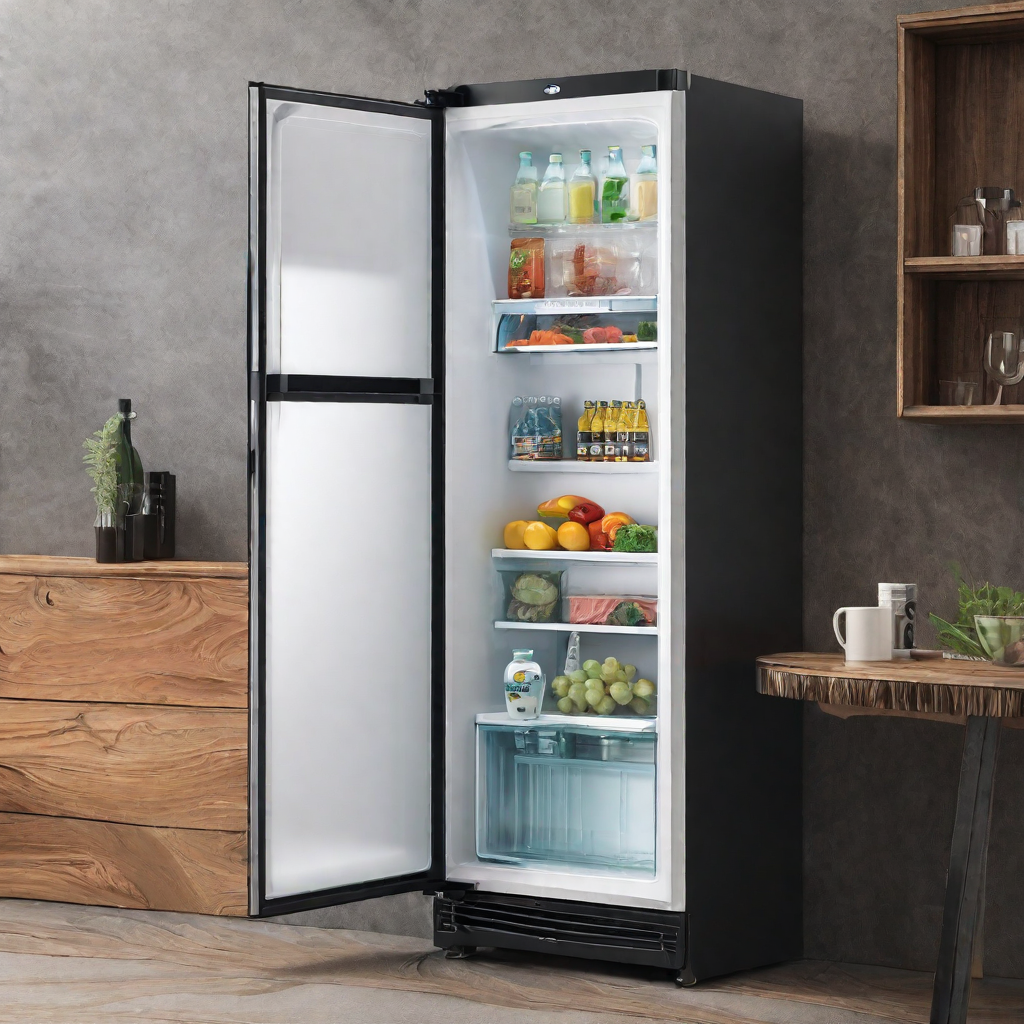

Refrigerator Tripping Circuit Breaker: 7 Common Reasons (Solved)
We understand the frustration that comes with a refrigerator constantly tripping the circuit breaker. It’s not just an inconvenience; it can also lead to spoilage of food and unnecessary repair costs.
In this article, we’ll delve into the common reasons behind your refrigerator’s electrical hiccups and provide some practical solutions to get your fridge back in top shape.
Refrigerator Tripping Circuit Breaker: 7 Common Reasons
Refrigerator tripping circuit breaker is commonly caused by overload circuit, faulty wiring, fridge compressor issues, overloaded or aging fridge.
Now we have answered the main question let’s dive into troubleshooting.
1. Overloading the Circuit:
One of the primary reasons your refrigerator might be tripping the circuit breaker is overloading. Refrigerators require a dedicated circuit to ensure they have a stable power supply. If your fridge shares a circuit with other high-wattage appliances or devices, it may exceed the circuit’s capacity, leading to tripping.
Possible Solution:
Check the other devices connected to the same circuit and consider redistributing them to different circuits. If possible, have a dedicated circuit installed for your refrigerator.
Connect with an Appliance Repair Technician Click here to use the chatbox to speak with one of our friendly technicians No in-home service calls. No appointments.
2. Faulty Wiring or Outlet:
Faulty wiring or an inadequate electrical outlet can also contribute to your refrigerator causing the circuit breaker to trip. Damaged wires or loose connections increase the risk of electrical shorts, disrupting the power supply.
Inspect the wiring and outlet that your refrigerator is plugged into. If you notice any signs of wear, tear, or loose connections, consult with a professional electrician to repair or replace the faulty components.
3. Compressor Issues:
The compressor is the heart of your refrigerator, responsible for maintaining the right temperature. If the compressor is faulty, it can draw excessive power, causing the circuit breaker to trip.
Related Articles:
- Main Components of a Refrigerator 101: (Beginners Guide)
- Refrigerator Compressors 101: Simple Answers
If you suspect an issue with the compressor, it’s advisable to seek the assistance of a qualified appliance repair technician. They can diagnose the problem, repair or replace the compressor, ensuring optimal performance.
4. Refrigerator Overload:
An overloaded refrigerator can also strain its components, leading to increased power consumption. This can trigger the circuit breaker to trip, acting as a safety measure to prevent electrical hazards.
Review the contents of your refrigerator and ensure it’s not packed to the brim. An organized and well-arranged fridge allows for proper air circulation, reducing the workload on the compressor.
5. Aging Appliances:
As appliances age, their components may wear out or become less efficient. An older refrigerator may experience issues that lead to increased power consumption and, subsequently, circuit breaker tripping.
Consider the age of your refrigerator. If it’s nearing the end of its lifespan, investing in a newer, energy-efficient model may be a cost-effective solution in the long run.
Final Thoughts
In summary, a refrigerator tripping the circuit breaker can be attributed to various factors, from electrical issues to appliance-related problems.
By identifying the root cause and implementing the suggested solutions, you can ensure your refrigerator operates efficiently, keeping your food fresh and your energy bills in check.
If problems persist, don’t hesitate to seek professional assistance to safeguard both your appliance and your home’s electrical system.
Related Articles
- Fridge Cleaning Hacks: Guide to Sparkling Fridge


Why Refrigerator Keeps Tripping gFCI Outlet
What to do when your refrigerator keeps tripping GFCI outlet (plug). Unless you catch it right away, the refrigerator tripping a GFCI can cause many problems. Not only will your food spoil if not caught in time, but it will keep happening if you don’t find out why it’s tripping in the first place.
There are different reasons why this may be happening. Today we’ll discuss common reasons and how to solve the issues.
What is a GFCI and Why are they used?
Table of Contents
A GFCI, or ground-fault circuit interrupter, outlet is used in areas of the home that are subjected to water. For example, you’ll commonly find them in bathrooms, kitchens, and garages.
This type of outlet exists to protect people from electrical shock, and should not be confused with a house fuse or breaker.

A fuse or breaker is designed to protect your home from an electrical fire . If the hot (electrified) wire accidentally touches a neutral wire there will be an increased amount of current through the circuit and eventually the fuse will blow before a fire starts.
Unlike the fuse, the GFCI is built-in to the outlet itself.
When an appliance is plugged into these outlets, the amount of power going through the device is monitored.
Let’s say a hair dryer is accidentally dropped into a sink of water, the GFCI will detect the interruption in current and cut all power off, possibly saving a life.
Why Refrigerator Keeps Tripping GFCI
When a refrigerator is plugged into a GFCI there are a few reasons it may keep tripping the outlet.
Nuisance Tripping
Most refrigerators with vapor compression have what are called inductive loads.
When an inductive load is switched off, it can produce electromagnetic interference (EMI). The interference can, and often will, trip a GFCI outlet.
Connect with an Appliance Repair Tech
Click here to use the chatbox to speak with one of our technicians. No in-home service calls. No appointments.
Also, if you’re dealing with a dedicated circuit that just operates the refrigerator in the kitchen, you can simply remove the GFCI outlet and replace with a standard outlet.
Faults Created by Icemaker or Defrost Heater
Some older model refrigerators aren’t equipped with icemakers or self-defrost functions. However, when they are, they commonly trip GFCI outlets.

Most people with these types of fridges suggest using a non-GFCI outlet.
However, if you have no other choice but to keep the GFCI, it’s best to disable these functions within the fridge.
Ground Fault
A ground fault can be caused by damaged wiring or old appliances allowing electricity to take an unplanned path to the ground.
Such shortcuts can move through conductive items such as metal, which can lead to an electrical shock when you touch them.
When a refrigerator plugged into a GFCI detects this issue, it will trip the GFCI to eliminate a potential hazard.
The important thing to keep in mind that removing the GFCI outlet will only hide the problem, not fix it.
When you notice that the outlet trips every several hours, your refrigerator may have a faulty timed defrost circuit in the freezer.
This is common due to melting ice getting into components.
There is no code-compliant way to fix this issue, other than determining what’s wrong with the fridge and fixing the correct part.
Other Items to Keep in Mind
- First, it’s important to note that refrigerators in general don’t get along with GCFI outlets. In fact, they’re not required to be attached to one if they are on a dedicated circuit that’s not shared with any other outlets .
- If your fridge has always been connected to a GFCI outlet and worked, you should begin by replacing the GFCI to see if it simply wore out over time.
- If the fridge in question is in the garage, remember that most garages don’t have dedicated receptacles or circuits for a fridge. If you need to solve this, it will require rewiring and one or more GFCI outlets.
Why Refrigerator Keeps Tripping Breaker
From overloaded circuits to improper grounding, there are several ways a refrigerator can cause breakers to be tripped.
Before running out and buying a new fridge, check these things .
Perhaps the most common reason for a tripped breaker is a circuit overload .
This simply means the circuit is receiving a higher demand for electricity that it can actually deliver.
When this occurs, you should unplug everything else from the circuit except the fridge. This will tell you if the refrigerator is the problem.
If the circuit continues to operate with only the fridge plugged in, keep investigating.
Short Circuit
A short circuit will occur when two wires inside an appliance or outlet touch each other, thus creating a surge of electricity causing the breaker to trip.
If the breaker tripped as soon as the fridge was plugged in, unplug this appliance and try plugging something else in.
If the second appliance you plugged in works, the short circuit is probably inside the fridge.
If nothing works with the outlet, there are most likely wires behind the receptacle cover causing the problem.
Just remember, the issue can also be inside the wall or the breaker box itself.
Why Refrigerator Trips GFCI on Generator
Much the same as a refrigerator can trip a GFCI outlet inside your home, it can do the same when connected to a generator.
Here are the common reasons this happens.
If your refrigerator has a ground fault, it will trip the GFCI on your generator every time.
To stop this from occurring you will need to locate the faulty part inside the fridge or freezer and replace it.
Faulty Generator
Regardless of how new the generator is, it could be faulty.
If your machine is still under warranty, it’s a great idea to try to exchange the current one for a replacement.
There are many people who have faced this same issue, and at the end of the day, it was the generator itself.
Electrical Leak
When the GFCI outlet senses electrical “leaks”, where the current is escaping the device and taking a different route to the ground, it will trip the outlet.
Leaks are commonly caused by dust, defective electrical appliances, water, or worn insulation.
Bond or Ground Jumper Issue
Most generators are made with a neutral ground jumper wire.
If you’re hooking the generator to your house this ground jumper will need to be removed to prevent nuisance tripping.
Since your house is already neutral bonded to the ground, the wire is unneeded.
However, if you ever disconnect the unit from the house and use for other purposes, you will have to re-connect the ground jumper.
Have you dealt with refrigerators tripping GFCIs or breakers before?
What was the problem, and how did you fix it? We’d love to hear your thoughts, comment now and let us know.
Reader Comments (13)
Hey just bought a fancy new Bosch refrigerator that draws 3.5 amps versus the old Kenmore that Drew 7.9 amps. Never a problem with the Kenmore tripping the adjacent GFCI outlet. Now, the brand new Bosch Tripps the adjacent GFCI every 3 to 4 minutes… I don’t understand why this is happening if the draw is significantly lower, Nay, HALF of what it was before? Any help is appreciated, thank you!
Hey just bought a fancy new Bosch refrigerator that draws 3.5 amps versus the old Kenmore that Drew 7.9 amps. Never a problem with the Kenmore tripping the Jason GFCI outlet. Now, the brand new Bosch Tripps the adjacent GFCI every 3 to 4 minutes… I don’t understand why this is happening if the draw is significantly lower, Nay, HALF of what it was before? Any help is appreciated, thank you!
My first time I thought I should have FGCI protect my fridge ,I replaced one a bout a week later were tripped like 3-4 time a week. After red this articles I removed it installed with a standard outlet one its been two days now without tripped.
I am glad for this article! We knew GFCIs don’t mix with fridges, but forgot what the wiring in our house was. Brand new LG fridge, boom GFCI keeps popping. So. Annoying. (Thank you building code idiots. Now they require GFCI stoves to be on GFCI by removing the cap on how big an outlet Amperage. Can you imagine, the dumb thing trips during a Thanksgiving turkey or a cake? Thank God it’s all pre-existing. And we aren’t moving.)
If I lived in CA, I would swap out the GFCI yourself. YouTube it for how to. Put it back before you move. Don’t say anything to anyone. You still have circuit breakers in your fuse box, which will trip.
I am not a lawyer. Not an insurance agent. Not an electrician (husband does it for us). We moved away from a highly regulated area to avoid this crap…oops I mean absolutely critical safety regs from a non-political group so we all are perfectly safe in our daily lives. 😉
Sadly, nothing we can do.
I just bought a new Fridge and I have the same problem as the person above this email. Where can I buy or find a snubber to solve the problem? Also, how can I install it?
“Thanks Jim”
Snubbers come in many forms, and are electro-slang for many kinds of filters.. Most would be internal to a device, so I think what they really refer is a low-pass Line Filter. That is, a device that filters high frequencies from the power both in/out of a device… ideally letting only 50/60hz AC through the 2 current conductors. Most don’t filter the ground (often the metal case) but just the hot & neutral, but a few do. Might wanna google Line Filters & Snubbers a bit. Most line-filters eliminate high freq noise to meet UL regs so devices don’t contaminate the power and screw up another device (conducted radio interference was the classic example).
Comment by John Cline might be fun for a DIY’er to give a try, but suspect the line-filter in microwaves are to meet UL regs for “conducted EMI” (block radio frequencies and up), not prevent nuisance tripping. IF it filters the ground path it may be a source of cheap parts. Would hope someone replies if they try it.
In the end, I suspect no easy fix like some box you insert between the fridge and outlet.
Sorry to say… until refrigerator manufacturers step-up and prevent leakage currents to ground (the main culprit) through better insulation and wire routing, it’s best to find a way to power the fridge on a separate branch circuit without the dang GFI.
Is your fridge outlet GFI the 1st in a string of protected outlets? If so lucky, move the GFI to the 2nd outlet. If not, where better than a garage to learn/practice wiring & drywall repair?
I was forced (by 2017 NEC code) to install all AFCI/GFI Dual-Function breakers in a complete rewire of a 120 year old house. Much nuisance tripping since. Laser printers also trip the new breakers. This breaker technology sounds fantastic and ‘maybe’ OK on new construction(?)… but certainly wasn’t ready for prime-time on retrofits. Thanks NEC.
my fridge started tripping the adjacent gfci receptacle in the kitchen when the defrost cycle started. I found the new hot water recirculating pump by the hot water heater was also on the same circuit (utility room next to upstairs bath). I unplugged the pump and the gfci stopped tripping.
every microwave has a snubber built in that can handle the load of a refrig . but won’t work if the refrig. motor locks up so it needs fuses or a breaker rated for the normal refrigerator load plus 150% all placed in a box between to refrigerator and the outlet plugged in, the code stops at the outlet.
Great article as always. I have an old fridge. It was in my house for years. Moved to garage and it tripped the GFCI receptacle. Plugged it in to a non-GFCI and it ran for months. Just moved it to my daughter’s rented house where all receptacles in her garage are GFCI and it trips them. I’ve googled “snubber” several ways to no luck. Did find lots of “experts” arguing. 🙂 I would like to buy one, but am not sure where to look or what it will even look like. A link, picture, hint, …..anything would be helpful. THANKS!
very helpfull
Hello, I have a new construction house here in California. In the garage I have the hot water heater plugged into a 110 outlet and want to plug my 2nd refrigerator into the garage. The garage is GCFI and the it trips every time I plug the refrigerator in. I have an electrician looking into it now but he doesn’t know how to bypass the code for California. Can someone help me with this?
What about if I just unground(Disconnect) the ground cable from mi fridge GFIC outlet and keep using it? will it work and stop tripping?
Comments are closed.

Home Efficiency Guide is an affiliate for companies including Amazon Associates and earns a commission on qualifying purchases.
Refrigerator Keeps Tripping Breaker: Troubleshooting Guide
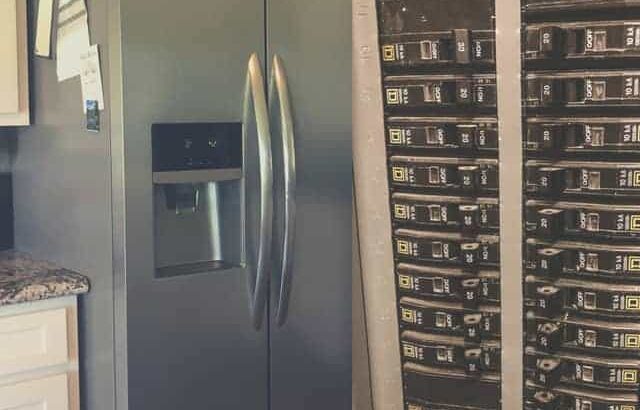
A refrigerator will lose power from a tripped breaker, sometimes for hours before you realize it. Obviously, a reoccurring problem like this needs attention.
Why a refrigerator keeps tripping a breaker? The primary causes of a refrigerator repeatedly tripping a breaker are:
- an overloaded circuit
- a short circuit
- a ground fault surge
All of these problems can cause fires and/or electrocution if not properly addressed.
This article will first outline the mechanics of circuit breakers, outlets, and refrigerator components. Next, we will discuss just what the main circuitry problems are telling you. And finally, we will walk you through a step-by-step troubleshooting guide and give solutions to the most common reasons your refrigerator is losing power.
Mechanical and Electrical Components
Let’s start our discussion with the mechanical and electrical components involved in circuit breakers, outlets, and basic refrigerator mechanisms that can be involved in circuit breaker tripping. I will start at the breaker box.
Circuit Breaker: Circuit breakers are attached to all of the wiring in a building or home and act as safeguards against power surges and other electrical issues.
Whether from constant, slow heating, or from a sudden power surge, the circuit is designed to break the current when it is overloaded.
Wiring Basics: Three electrical connections make up the standard appliance wiring that connects to your home’s electrical system. The hot wire carries the 120 volt current to your appliance and the neutral wire serves as the return path in the circuit. These run through the 2 thinner prongs on power cords.
The third prong connects the ground wire, which is simply attached to the metal casing of the appliance. This ground wire will take the 120 volts if the hot wire shorts, causing an extremely high current that trips the breaker.
The ground wire is incredibly important because, without it, the entire appliance can become one big shock hazard ( source ).
GFCI Outlet: A Ground Fault Circuit Interrupter works like an ultra-sensitive circuit breaker. The appliance is plugged into the outlet, and when even a few amps of surge are detected, the circuit within the outlet will trip.
These outlets are used in bathrooms and other areas where water is present for protection against electrocution. They protect someone from electric shock should a short circuit or ground fault occur.
Refrigerator Defrost Heater: The defrost heater is a resistance element located in the evaporator compartment to melt ice built up on the coils of the refrigerator. It is attached to a timer and thermostat that work to regulate the temperature and cycling of the defrost heater and compressor ( source ).
Refrigerator Compressor: The compressor works as both a motor and a pump, moving refrigerant throughout the system coils to cool the temperature in the fridge. It is the powerhouse of the appliance and the most expensive component to replace.
What Is Happening in My Circuitry to Cause Tripping?
It is important to have an understanding of what is happening in the circuitry. Circuit breakers trip to stop the flow of electricity and indicate that something is going wrong. Figuring out where the problem lies can save property and life.
- Overloaded Circuit: An overloaded circuit occurs when too many amps are running through the same wiring. Residential code allows 20 amps per circuit (source). If more amps attempt to flow through a circuit, this can cause overheating and power surges that damage wiring and appliances.
- Short Circuit: A short circuit occurs when the hot wire (wire with electricity flowing though it) contacts the neutral wire. This causes too much heat as electricity surges through the wires. You may notice a burning smell or burnt wiring.
- Ground Fault Surge: A ground fault surge occurs when the hot wire and the ground wire connect. This also causes overheating and can discolor the area around the outlet.
Pro Tip: You can use a circuit breaker finder (link to Amazon) to quickly identify which circuit breaker is powering the refrigerator.
Step-by-Step Troubleshooting Guide
Now that you have an idea of how the components work and basic circuitry issues, I want to walk through all the different reasons for a refrigerator tripping a circuit breaker and what to do about them.
I will start with the most obvious, simple fixes and work up to the more complicated problems.
- Check the GFCI outlet: If you have lost power to your refrigerator, and it is plugged into a GFCI outlet, the outlet may have tripped due to nuisance tripping. GFCI outlets are very sensitive and designed to trip at slight surges.
However, most fridge manufacturers do not recommend plugging into a GFCI outlet and they are not required for appliances ( source ).
Why? Refrigerators require a large amount of power to begin their cooling cycles—and very often trip GFCI outlets. See this video for more information:

If you do have a GFCI outlet and it has tripped, reset it. If the outlet now works, you can eliminate the GFCI outlet as the problem. Move the plug to a different, non-GFCI outlet. Moving to a different power source may be the end of your issues.
Note: GFCI outlet tripping should not also trip a circuit breaker in your breaker box . If that has happened, keep exploring. You have a bigger problem and should keep troubleshooting to the next step.
- Power cord inspection: This may seem like a no brainer, but damage to the refrigerator power cord can cause short circuits. Unplug the cord and inspect the length of the cord for worn insulation, crushed wiring, or indication of animal damage (such as rat chews). If you see any damage where the wires inside are exposed, the cord needs to be replaced. Many people suggest wrapping it with electrical tape but I don’t recommend this. If no damage, move to step 3.
- Inspect the prongs of the power cord: Are they rusty, loose, or broken? If so, you could have ground fault surges or faulty connections that are causing power surges. Replace the plug unit or the whole cord system. Power cord intact? Move to step 4.
- Check for an overloaded circuit: If multiple appliances are plugged into the same circuit, it could become overloaded, especially when the refrigerator compressor starts. Try plugging the refrigerator into another outlet, maybe even in another room to ensure it is attached to a different circuit. I’ve done this by running an extension cord to another room when troubleshooting. If the refrigerator is able to run its cycles with no tripping, you may need to figure out what other appliances are normally attached through this circuit and eliminate them. Refrigerators should be on a dedicated circuit when possible . I will tell you that I always place all appliances on their own circuit. Not only does this help prevent overload, but it also greatly reduces the number of potential causes when troubleshooting.
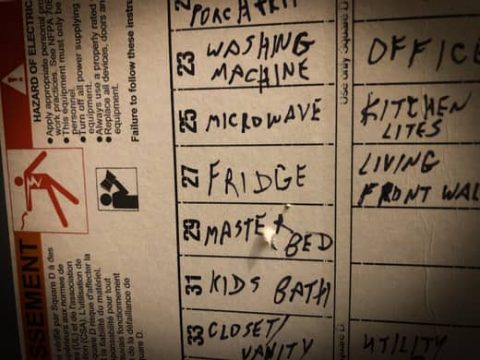
Make sure electrical power is disconnected before performing steps 5 and 6. If you aren’t knowledgable about electrical, hire a professional.
- Inspect Outlet: In addition to checking for an overloaded circuit, inspect the power outlet where you normally plug the fridge for damage. Remove the receptacle cover and look for loose or burnt wiring. If there is no visible damage, test wires with an ammeter. Faulty wiring in the outlet can cause short circuits and ground faults. Replace the outlet if necessary. Still no issues detected? Move to step 6.
- Breaker Box Inspection: If you have discovered no damage to the power cord or outlet, check the breaker box itself. Circuit breakers can wear out or suffer damage from water or pests. Inspect the breakers—does anything look corroded, cracked, or worn? If you suspect damage at the breaker box, replace the suspect circuit breaker or call an electrician. If all looks well at the box, return to the fridge itself.
- Check wiring on refrigerator unit: Unplug the fridge and pull away from the wall. Remove the rear paneling and inspect and test wires for loose or faulty connections. If nothing is obvious, move to step 8.
- Test defrost heater: The most common internal component to fail in a refrigerator is the defrost heater. Thankfully, it is a relatively inexpensive part to replace. To troubleshoot it, reset the timer (usually changed with a screwdriver) so that you can force the defrost cycle to begin. If the breaker trips shortly after the cycle begins, then the defrost heater is either water-damaged (a common problem), causing a ground fault, or short-circuiting from insulation damage. Replace the defrost heater, a reasonably simple DIY project. If the defrost heater seems to be functioning properly, move to step 9.
- Compressor Check: If nothing else has been pinpointed as the problem for the reoccurring circuit breaker trips, the compressor is probably at fault. When the compressor winding begins to fail, the extra power load normally needed to start winding doesn’t stop after a few seconds. The extra power overloads and trips the breaker. Refrigerator compressors are expensive fixes. You can call an appliance mechanic for repairs, but you are probably better off purchasing a new unit to replace what you have. Recommended Reading: What Appliances Are Worth Upgrading? Here’s The Math!
Circuit breaker tripping can be a an annoying problem, but it is also an indication of potentially dangerous electrical issues within your home. To protect your property and family, it is imperative to address the recurring problem.
If your refrigerator loses power from a circuit breaker trip, realize that most circuit breakers trip from overloaded circuits, short circuits, or ground fault surges . By investigating all of the components between the unit and the circuit breaker, you can usually pinpoint and solve the problem.
As a homeowner, I am constantly experimenting with making the structure of my house more energy-efficient, eliminating pests, and taking on DIY home improvement projects. Over the past two decades, my family has rehabbed houses and contracted new home builds and I’ve learned a lot along the way. I share my hard-learned lessons so that you can save time and money by not repeating my mistakes.
Leave a comment
You must be logged in to post a comment.
American Home Shield provides warranty coverage for your essential home appliances and systems. Compare all plans .
Fridge Keeps Tripping Breaker: 7 Easy Ways To Fix It Now

Do you know that dealing with a fridge that keeps tripping the breaker can be frustrating? My guess is you probably do. Not only does it pose a risk of spoiling your food, but it also requires constant resetting of the breaker, inconveniencing your daily routine.
However, several straightforward solutions can help you fix the issue and get your fridge to operate smoothly.
This article will examine seven effective ways to fix a fridge that keeps tripping the breaker . From addressing an overloaded circuit to tackling ground fault surges and cleaning dirty condenser coils, the practical solutions you’ll find in this article will guide you in troubleshooting and resolving the problem.
By implementing the fixes in this guide, you’ll finally enjoy a reliable and uninterrupted cooling experience again .
Why Does Your Fridge Keep Tripping the Breaker?
Table of Contents
Finding out that your fridge trips the breaker can be frustrating and inconvenient to resolve. But by understanding the potential causes of the problem, you’ll be able to troubleshoot and find the solution .
With that being said, there are several common reasons why a fridge keeps tripping the breaker, including :
1. Overloaded Circuit
An overloaded circuit is one of the most common reasons behind a fridge tripping the breaker.
When the electrical demand of a refrigerator, particularly during compressor cycles, exceeds the circuit’s capacity, it can cause the breaker to trip . This is more likely to occur if too many appliances simultaneously draw power from the same circuit.
2. Short Circuit
A short circuit is said to occur when there is an unintended connection between the neutral and hot wires, which results in a surge of electrical current . This can happen due to loose connections, faulty wirings, or wires touching each other.
A short circuit can trip the breaker and should be addressed promptly to prevent potential electrical hazards.
3. Ground Fault Surge
Much like the short circuit, a ground fault surge happens when the hot wire comes in contact with a ground wire or conductive surface. When that happens, it can result in an electrical surge capable of tripping the breaker.
Damaged insulations, wiring issues, and faulty outlets typically cause ground fault surges.
4. Faulty Components
Various faulty components within the fridge housing can cause the breaker to trip or continue tripping .
These faulty components could include a defective compressor, malfunctioning defrost heaters, worn-out compressor motor windings, faulty thermostats, and broken fridge fans . These components can draw excessive power or cause electrical imbalances capable of tripping the breaker.
5. Dirty Condenser Coils
The condenser coils in a fridge, typically located at the back or underneath the fridge, can accumulate dirt and dust over time.
When the coils in your fridge are dirty, they will no longer be able to properly and effectively dissipate heat, causing the compressor to work harder and potentially overload the circuit . Cleaning the condenser coils is necessary to prevent overheating and breaker tripping.
6. Damaged Power Cord
A frayed or damaged power cord can cause a short circuit which will, in turn, trip the breaker . Hence, inspecting the power cord for visible signs of damage, such as cuts or exposed wires, is essential.
If you discover any problem after inspection, a new power cord should be installed to ensure the refrigerator remains safe and operates continuously.
7. Outlet Problems
Do you know that faulty outlets, loose connections, or wiring in the electrical outlet where the refrigerator is plugged can trip the breaker? Well, now you do. And as such, checking the outlet and ensuring that the wiring and connections are done correctly will help identify and resolve the issue.
How to Fix a Fridge That Keeps Tripping the Breaker?
Before you’ll be able to fix a fridge that keeps tripping the breaker, you should be able to address the underlying cause. Here are some potential fixes :
If you have an overloaded circuit that keeps tripping the breaker, you can fix or resolve the issue by following these steps :
- Identify the appliances running on the same circuit : Take notice of the electrical devices connected to the circuit where the refrigerator is plugged in. Determine if multiple high-power appliances are connected to the same circuit, drawing power simultaneously.
- Reduce the number of electrical devices operating simultaneously : If the circuit is overloaded, then you can easily unload it by minimizing the use of other high-power appliances while the fridge is running. Stagger the operation of devices or spread them across different circuits.
- Consider redistributing appliances to different circuits or upgrading the electrical panel : If overloading is a recurring issue, you should consider redistributing the devices —you can place them in different circuits. Alternatively, you can consult a licensed electrician. The licensed electrician will access the electrical panel’s capacity and determine if an upgrade will be required to handle the increased load demand.
By managing the electrical load and ensuring that you have a balanced distribution of appliances, you can alleviate strain on the circuit and minimize the likelihood of the refrigerator tripping the breaker due to an overloaded circuit .
If you suspect that a short circuit is the cause of the refrigerator tripping the breaker, follow the steps outlined below to address the problem :
- Unplug the refrigerator and test another electrical appliance : To do this, safely and carefully disconnect the fridge from the power source and plug in another electrical appliance to the same outlet. If the breaker immediately trips off after plugging the electrical appliance, it indicates a short circuit in the wiring.
- Consult a licensed electrician to repair the wiring or replace damaged components : If a short circuit has been confirmed, looking for or hiring a professional is recommended . Contact a professional electrician who will help you check the wiring in your fridge, locate the short circuit, and repair it.
Handling a short circuit requires specialized knowledge and expertise to ensure safe and effective repairs. Rather than “DIY,” it is better to rely on a professional for electrical work to minimize the risks of electrical hazards and ensure that your fridge continues functioning properly .
To address a ground fault surge that is responsible for causing the fridge to trip the breaker, you can follow the steps outlined below :
- Inspect electric switches and outlets for signs of burnt or damaged wiring : Look at the electrical switches and outlets connected to the fridge’s circuit. Check for signs of damaged or burnt wirings, such as discoloration, melting, or loose connections. If you suspect a ground fault, it is vital to seek help from a professional.
- Contact a professional to resolve the issue : If you notice the signs of a ground fault or suspect faulty wiring, it is advisable to contact or hire a licensed electrician. Why is that important? Why can’t I do it myself? A licensed electrician has the expertise to accurately diagnose the problem and make the necessary repairs or replacements to rectify the ground surge.
- Install a ground fault circuit interrupter (GFCI) outlet or use a GFCI adapter : If you want to prevent ground fault surges from happening in the future, then consider installing a GFCI outlet specifically designed for detecting and preventing ground faults. Alternatively, if you don’t like installing a GFCI outlet , you can use a GFCI adapter plugged into an existing outlet. These devices can provide an extra layer of protection by immediately cutting off the power once a ground fault is detected.
You can resolve the issue by inspecting the outlets and switches with professional assistance. Also, when implementing GFCI protection, you can mitigate the risk of ground fault surges and prevent the fridge from tripping the breaker.
When dealing with faulty components in the refrigerator that cause the breaker to trip, you should seek assistance from a professional appliance repair technician. If you have faulty components in your fridge, follow the steps below to address the issue :
- Identify the faulty component : Determine the component within your fridge causing the problem. This could include a defective compressor, worn-out compressor motor windings, broken fridge fans, malfunctioning defrost heaters, or faulty thermostats.
- Seek assistance from a professional appliance repair technician : Contact or hire a professional appliance repair technician specializing in fridge repairs. These professionals have the expertise and tools to diagnose the specific faulty component accurately. Once the faulty component has been identified, the professional will be able to replace the faulty component with a new one to restore the proper fridge functioning.
Addressing faulty components requires specialized knowledge, expertise, and access to specific replacement parts. It is recommended to rely on the assistance of professionals for repairs to ensure the safety and efficiency of the fridge while preventing future breaker trips .
To address the issue of dirty condenser coils that can cause the refrigerator to trip the breaker, follow these steps :
- Regularly clean the condenser coils : It is essential to clean the coils of your fridge regularly to remove accumulated dirt and debris. This can be done using a vacuum cleaner with a brush attachment to brush off dirt gently. Alternatively, you can use a broom handle to remove larger debris carefully . Then, you can use a wet sponge or cloth to clean the coils for mild dirt. Ensure that the coils are completely dry before plugging them into the fridge.
- Ensure the condenser coils are free from obstructions : Aside from cleaning, it is essential to ensure that any object or furniture does not obstruct them. Proper airflow around the coils ensures adequate and efficient heat dissipation. Remove any item blocking the coils and maintain a clear space around them to promote optimal cooling performance.
By regularly cleaning the condenser coils and keeping them free from obstructions, you can prevent overheating, reduce the likelihood of the breaker tripping, and ensure the efficient operation of your refrigerator .
If you discover or notice a damaged or frayed power cord that can cause short circuits and result in the breaker tripping, follow these steps :
- Replace the damaged power cord : If it is visibly frayed, damaged, or has exposed wires, it is crucial to replace it with a new one to avoid potential electrical hazards. Consult an electrician or appliance technician for assistance if you need one. They can guide the appropriate replacement power cord for your refrigerator model and ensure safe installation.
- Seek professional assistance if necessary : If you are unsure about replacing the power cord or are uncomfortable working with electrical components, seek or hire a professional. An appliance technician or electrician has the expertise and knowledge to correctly carry out replacements and ensure the electrical components are secure.
Addressing a damaged power cord is essential for electrical safety and the proper functioning of the refrigerator . Replacing the damaged power cord with a new one can mitigate the risk of short circuits and prevent the breaker from tripping due to faulty wiring.
If you suspect that the issue causing your refrigerator to trip the breaker lies, follow these steps :
- Contact a professional electrician : It is recommended to contact a professional electrician to inspect and address any problems with the outlet. They have the expertise to diagnose and resolve electrical issues safely and effectively.
- Repair or replace the outlet : The electrician will assess the outlet and determine if it needs replacing. They will ensure that the wiring and connections are properly installed and functioning. Faulty wiring or loose connections can lead to breaker tripping, so addressing these issues is essential.
- Ensure proper wiring and connections : The electrician will ensure the outlet is wired correctly and securely. Loose or damaged wiring can cause electrical problems, including breaker tripping. By verifying the wiring and connections, they can prevent future issues and ensure the safe operation of your refrigerator.
It’s essential to entrust outlet repairs or replacements to a professional electrician to avoid potential safety hazards . They will have the expertise to handle electrical work and ensure the outlet properly works, reducing the risk of breaker tripping.
It is important to note that electrical work can be hazardous. If you are uncomfortable working with electricity or if the fixes mentioned above are beyond your expertise, it is best to seek the help of a qualified professional for safe and effective repairs .

Adrian is an ISCET licensed professional that has completed the National Appliance Service Technician Certification Exam and has the expertise to diagnose and repair any appliance. He is well-versed in the latest technologies and techniques and is always up-to-date on the latest industry standards.

Solve Fridge Tripping Circuit Breaker Issues: Prevention Tips Included
Is your fridge constantly playing games with your circuit breaker? Picture this: you’re all set to grab a chilled drink, but your fridge decides it needs a break, leaving you in the dark. Frustrating, right? You’re not alone in this electrifying experience.
Table of Contents
In this article, we’ve got your back! Discover why your fridge might be causing these power trips and how you can troubleshoot the issue like a pro. Say goodbye to those unexpected blackouts and hello to a smoothly running fridge. Let’s dive in and get your kitchen back to its cool and reliable self.
Understanding the Issue
When your fridge is tripping the circuit breaker , it can be frustrating and concerning. Understanding the possible reasons behind this issue can help you address it effectively.
- Overloading : Plugging too many devices into the same circuit can cause it to overload, leading to the circuit breaker tripping.
- Faulty Wiring : Issues with the electrical wiring in your home or near the fridge can also result in the circuit breaker tripping.
- Damaged Components : A malfunctioning fridge compressor, a faulty start relay, or a damaged power cord could be the culprits behind the circuit breaker trips.
- Age of the Appliance : An old fridge may draw more power than newer, energy-efficient models, potentially causing the circuit to overload.
To diagnose and resolve the issue, you may need to:
- Check the Circuit Load : Ensure that the fridge is not connected to an overloaded circuit.
- Inspect the Wiring : Look for any visible damage to the electrical wiring around the fridge.
- Examine Fridge Components : Assess the condition of the compressor, start relay, and power cord for any signs of damage.
- Consider Replacement : If your fridge is outdated and causing frequent circuit breaker trips, it might be time to invest in a more energy-efficient model.
By understanding the factors contributing to your fridge tripping the circuit breaker, you can take proactive steps to address the issue and enjoy a smoothly running appliance without unexpected blackouts.

Click here to preview your posts with PRO themes ››
Common Causes of Fridge Tripping Circuit Breaker
If you find yourself dealing with a fridge that keeps tripping the circuit breaker, there are a few common culprits to consider. Identifying these issues can help you address the problem more effectively:
- Overloading : Plugging too many appliances into the same circuit can lead to overloading, causing your fridge to trip the breaker.
- Faulty Wiring : Old or damaged wiring in your home can disrupt the flow of electricity to the fridge, triggering a breaker trip.
- Defective Components : Worn-out or faulty fridge components, such as the compressor or defrost timer, may be causing electrical issues.
- Age of the Appliance : Older fridges may draw more power as they age, increasing the likelihood of tripping the circuit breaker.
By understanding these common causes, you can start troubleshooting your fridge issues and hopefully prevent future interruptions.
How to Troubleshoot the Problem
When your fridge keeps tripping the circuit breaker, it can be frustrating. However, troubleshooting the issue doesn’t have to be a daunting task. By following these steps, you can identify and resolve the problem efficiently:
- Inspect the Power Cord : Ensure the fridge’s power cord is not damaged or frayed. If you notice any issues, replace the cord to prevent electrical hazards.
- Check the Outlet : Test the outlet by plugging in another device. If the other device doesn’t work, there may be an electrical issue with the outlet itself.
- Assess the Circuit Breaker : Reset the circuit breaker associated with the fridge. If it trips immediately after resetting, there may be a more significant problem.
- Review the Fridge’s Location : Ensure the fridge is not placed too close to the wall, restricting airflow. Poor ventilation can cause the appliance to work harder and potentially trip the breaker.
- Examine the Fridge’s Load : Avoid overloading the fridge with items. An overly packed fridge can strain the appliance, leading to electrical disruptions.
- Seek Professional Help : If you’ve tried these steps and the problem persists, it’s best to contact a certified technician to diagnose and repair any underlying issues.
By following these simple troubleshooting steps, you can address the issue of your fridge tripping the circuit breaker effectively. Remember, safety should always be a priority when dealing with electrical appliances.
Professional Help and Maintenance
If you’ve tried the previous steps and are still facing issues with your fridge tripping the circuit breaker, it’s time to consider seeking professional help . Here are some key points to guide you through this step:
- Contact a licensed electrician: Having a professional assess the electrical components of your fridge can help pinpoint any underlying issues causing the repeated tripping.
- Schedule regular maintenance: Refrigerators are complex appliances, and regular maintenance can prevent issues such as circuit breaker trips.
- Follow manufacturer’s recommendations: Check the owner’s manual for specific maintenance tasks or troubleshooting tips provided by the manufacturer.
Remember, safety is paramount when dealing with electrical appliances, so don’t hesitate to reach out for professional assistance .
Prevention Tips for Future Circuit Trips
- Check the Door Seal: Ensure that the door seal of your fridge is intact to prevent cool air from escaping and causing the compressor to overwork.
- Maintain Proper Ventilation: Keep sufficient space around the fridge to allow for proper ventilation , helping it operate efficiently and reducing the risk of overheating.
- Monitor Temperature Settings: Set the fridge and freezer temperatures at the recommended levels to avoid the unit from working harder than necessary.
- Regularly Defrost: If your fridge has a manual defrost feature, make sure to defrost it regularly to prevent ice build-up that can affect its performance.
- Inspect Power Source: Periodically check the power cord for any signs of damage and ensure it’s plugged into a dedicated outlet to avoid overloading the circuit.
- Limit Appliances on the Circuit: Avoid plugging multiple high-power devices into the same circuit as your fridge to prevent overloading and potential tripping.
- Consider a Surge Protector: Invest in a surge protector to safeguard your fridge from electrical surges that could lead to circuit trips.
You now have a range of troubleshooting steps and prevention tips to keep your fridge from tripping the circuit breaker. By implementing these suggestions, such as checking the door seal, maintaining proper ventilation, and scheduling regular maintenance visits, you can ensure your fridge operates smoothly. Remember to keep an eye on temperature settings, defrost regularly, and limit other appliances on the same circuit. With these strategies in place, you can enjoy a well-functioning fridge without the hassle of frequent circuit trips.
Frequently Asked Questions
Why does my fridge keep tripping the circuit breaker.
Your fridge may trip the circuit breaker due to overloading the circuit, a faulty power source, or a malfunctioning appliance component. Ensure proper ventilation, limit other appliances on the circuit, and check the door seal for issues.
How can I prevent my fridge from tripping the circuit breaker in the future?
Prevent future circuit trips by maintaining proper ventilation around the fridge, monitoring temperature settings, regularly defrosting, inspecting the power source for any faults, and considering a surge protector. Schedule licensed electrician visits every 2-3 years for a thorough inspection.
What are the recommended temperature settings for a fridge and freezer?
Set the fridge temperature between 37°F and 40°F to ensure food safety and freshness. For the freezer, keep the temperature at 0°F or lower for optimal performance and to prevent food spoilage.

Charlie Thomson
Charlie Thomson is Appliance Mastery's expert on laundry appliances. With a degree in mechanical engineering and over 8 years of experience in the appliance repair industry, Charlie is a go-to resource for homeowners who want to tackle common issues with their washing machines, dryers, and dishwashers.
Leave a Comment Cancel reply
Save my name, email, and website in this browser for the next time I comment.

Why Does Your Refrigerator Keep Tripping The Electricity?

Have you found that every hour or so you have the power go out in your kitchen? All you need to do is flip the circuit breaker, but after it keeps happening, things can get frustrating. This is a serious issue for all your appliances, but it can also be seen as a symptom. If your refrigerator is sufficiently full and energy efficient, it should run every hour or so. If you keep having the circuit breaker trip every hour or so, it means that the refrigerator is kicking on and when that happens, the circuit breaker trips. If this is happening, your refrigerator isn’t able to run its cooling cycle, so your food will be pretty warm as well.
Unfortunately, this isn’t just a problem that can affect your refrigerator. Certainly cold food is a priority, but if the breaker keeps tripping every hour, then it will interrupt every appliance in the kitchen, and it is hard on all of them to have the electricity cut every hour.
If you have deduced that the refrigerator is the problem, what is causing the issue and how can you fix it?
Before You Begin
The issue with your refrigerator is that it keeps shutting the electricity off, but that doesn’t mean you should get lax with the proper precautions before repair. You will want to only attempt the troubleshooting and disassembly with the refrigerator disconnected from the electricity. However, being able to plug the refrigerator on is a viable method of troubleshooting this particular issue. As such, you can keep the electricity to the kitchen on for your other appliances and for some of this testing. However, when you are disassembling your refrigerator to test the individual culprits, be sure to keep it unplugged for your own safety.
It is also worth noting that all causes of this issue are cause by an overload of electricity. This means that the circuit breaker tripped because your refrigerator was becoming a fire hazard. Ignoring the issue or trying to find other ways around it is not advised as it can be a threat to your safety.
The Compressor Relay is Faulty
If your refrigerator trips often, then it is likely due to the compressor. Every time your compressor turns on to run the cooling cycle, it will trip the breaker. When this happens, it is typically due to a grounding issue with the compressor that is causing the part to essentially become overloaded with electricity. Essentially, it means it is faulty and needs to be replaced. You can disconnect the electrical connections on the compressor and try plugging in the appliance to check or testing the compressor with a multimeter. It is worth noting that when your refrigerator is manifesting this issue, the compressor is usually the most likely suspect as it is a part that uses quite a bit of power already.
The Defrost Heater is Malfunctioning
If your refrigerator has a freezer, chances are good that in this day and age, it is a no-frost freezer. This means that it comes with a defrost heater. For units with a defrost heater, the heater will turn on, melt away frost, and drain away the liquid. Similar to a compressor, the defrost heater can trip the circuit breaker when it turns on if there is an overload.
You will want to open up the freezer, make sure it is dry, and test the defrost heater connections. In most cases, this can be easily confused with a compressor problem as they can run on a similar schedule. You can be more sure it is the defrost heater rather than the compressor by waiting for the compressor to kick on. It should turn on every 30 to 60 minutes. If the compressor is at fault, then the breaker will trip every time, rather than just sometimes. The defrost runs every 20 to 45 minutes, so it can be confusing as to which is causing the issue. However, unlike the defrost, you can clearly hear the compressor turn on. Furthermore, you can force it to run by leaving the door open. You can also test by simply unplugging the compressor or defrost heater from the circuit board.
There is an Issue With a Fan
The fan in your refrigerator is used to circulate the cold air produced in your freezer down into the fresh food section. Like the other issues, if the fan is overloading, it can cause the circuit breaker to trip. Furthermore, because it often runs with the compressor, it can be easily confused with compressor issues as well.
Unlike the compressor, the fan is typically overloaded not so much by an electrical issue. You should still test those issues, but if your fan is dirty, it can use more electricity and overload itself. This usually causes fan noise, which can be a solid indicator as well. Before you bust out the multimeter for this issue, you may want to try visually inspecting the fan to see if it is dirty.
The Thermostat is Malfunctioning
With all the other issues on this list, you will likely notice signs before they start tripping the breaker. The part in question will be loud or otherwise malfunction. However, if your refrigerator started overloading the breaker and you didn’t really notice any other symptoms, then the cause could be the thermostat. Admittedly, this is a pretty rare cause as the thermostat doesn’t use a lot of power. However, if it is the cause, then it is a straight up malfunction of the part. You will simply need to test it, and if faulty, replace it.
Any repair that has to deal with electrical issues will be a complicated one. If you haven’t been able to track down the culprit or don’t feel comfortable disassembling your refrigerator to check the issues, we can help. Sometimes, the best case is to leave the repair to the professionals. Contact us today to see what Appliance Express can do to get all your appliances fixed up fast.
Leave a Reply Cancel Reply
You must be logged in to post a comment.
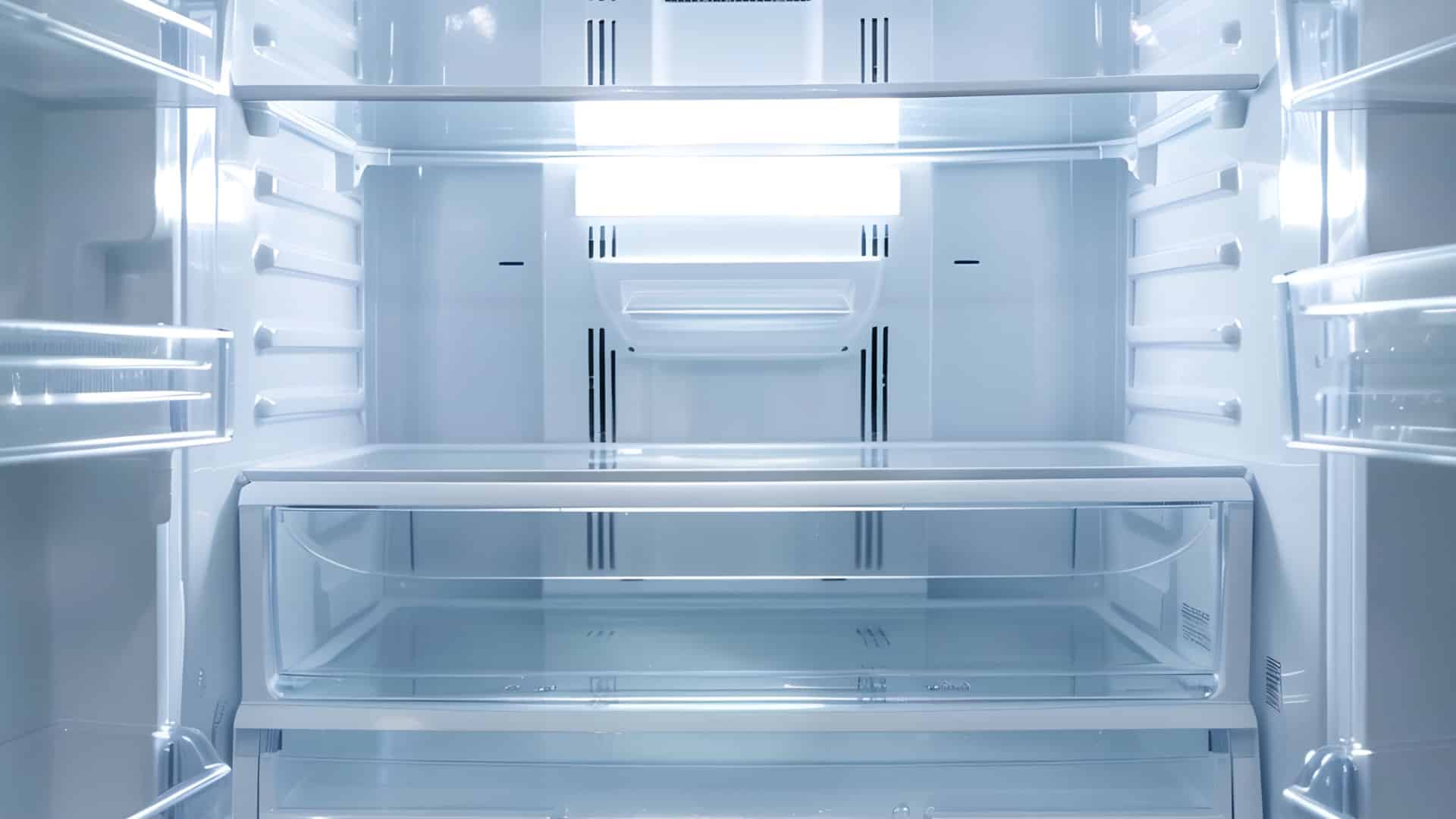
How to Clean Refrigerator Coils (in 5 Steps)

Bosch Oven Not Heating? Here’s Why
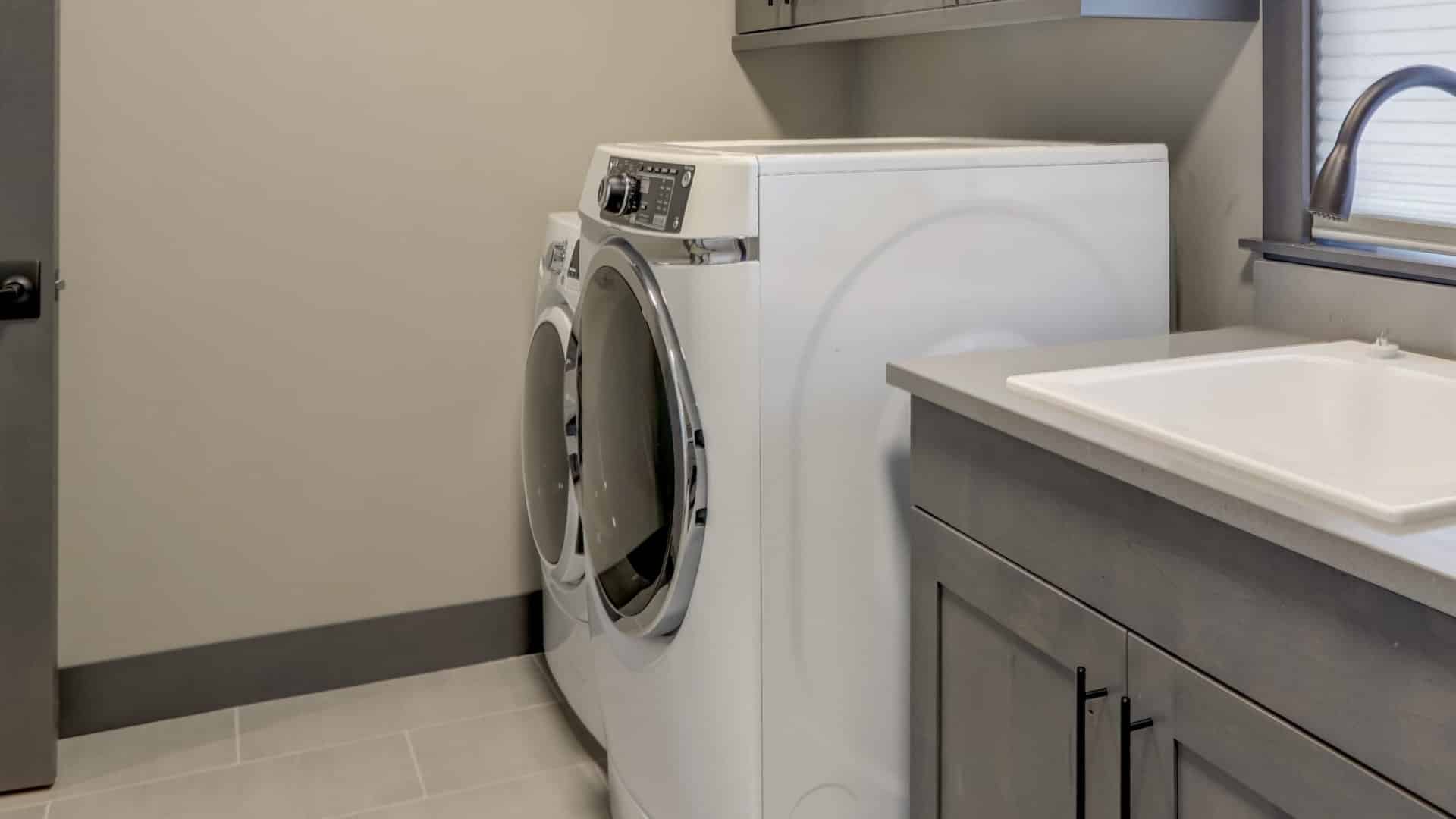
The 10 Best Washer and Dryer Brands in 2024
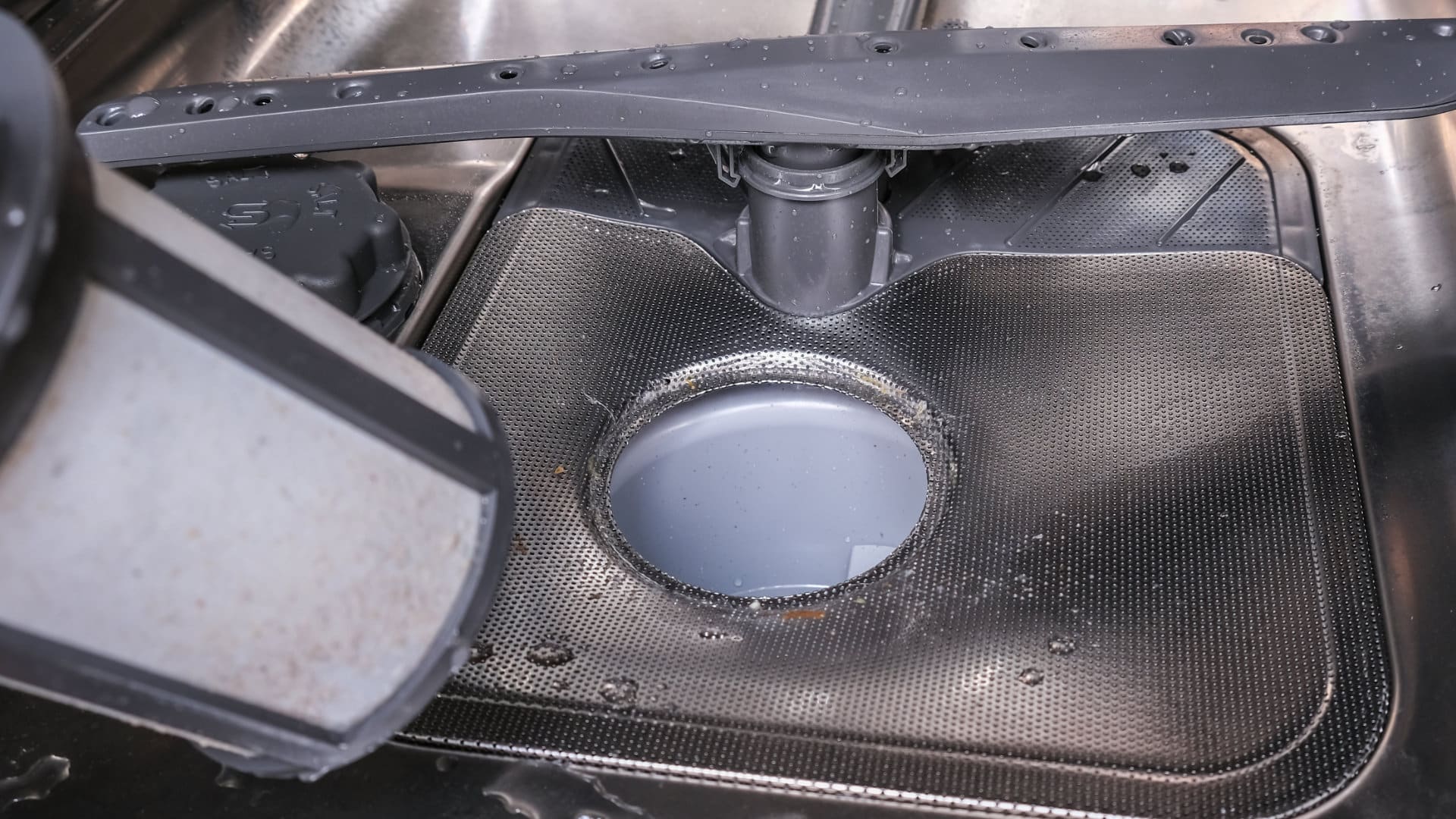
How Many Gallons of Water Does a Dishwasher Use?
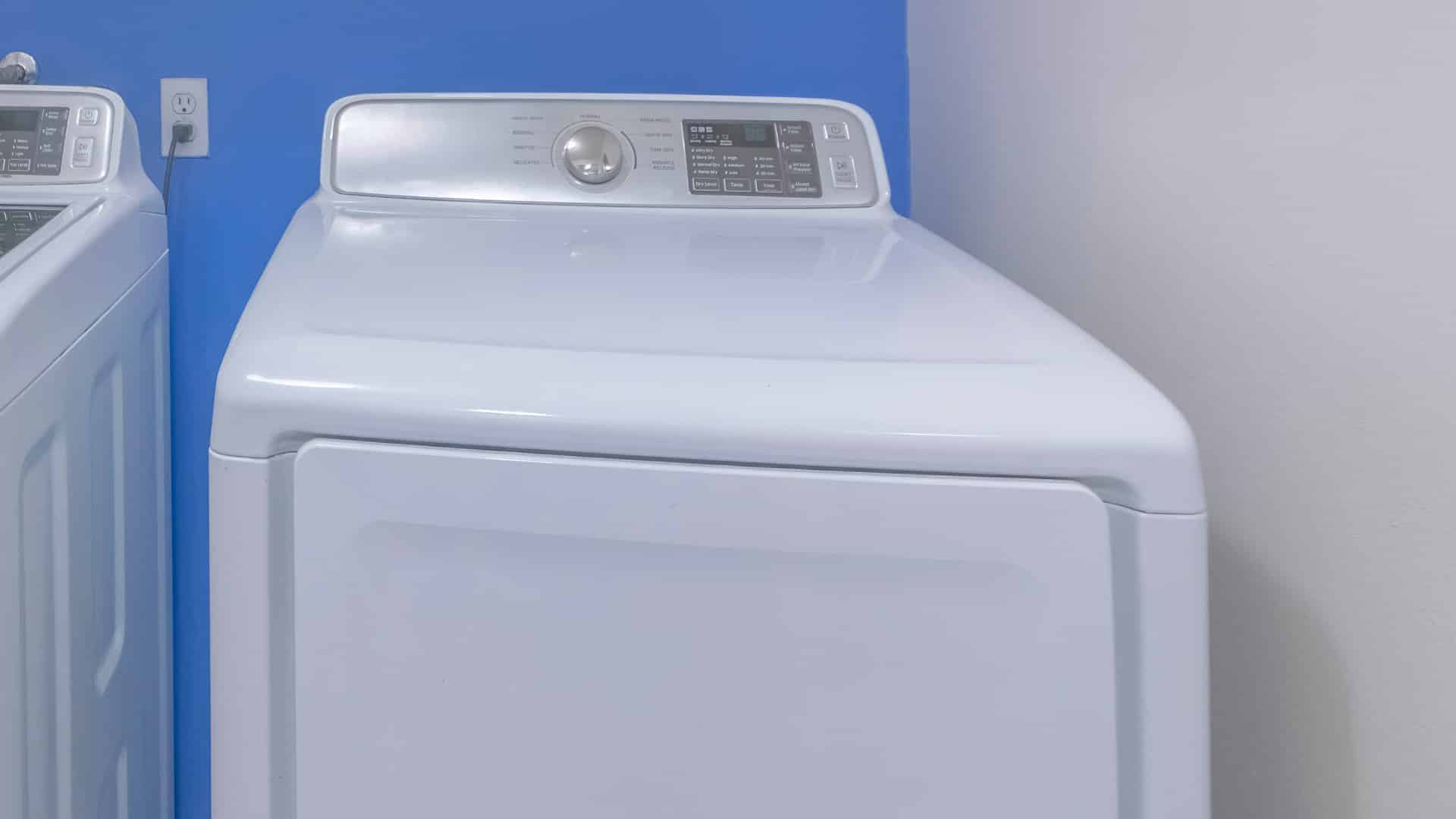
Dryer Making Grinding Noise? Here’s Why
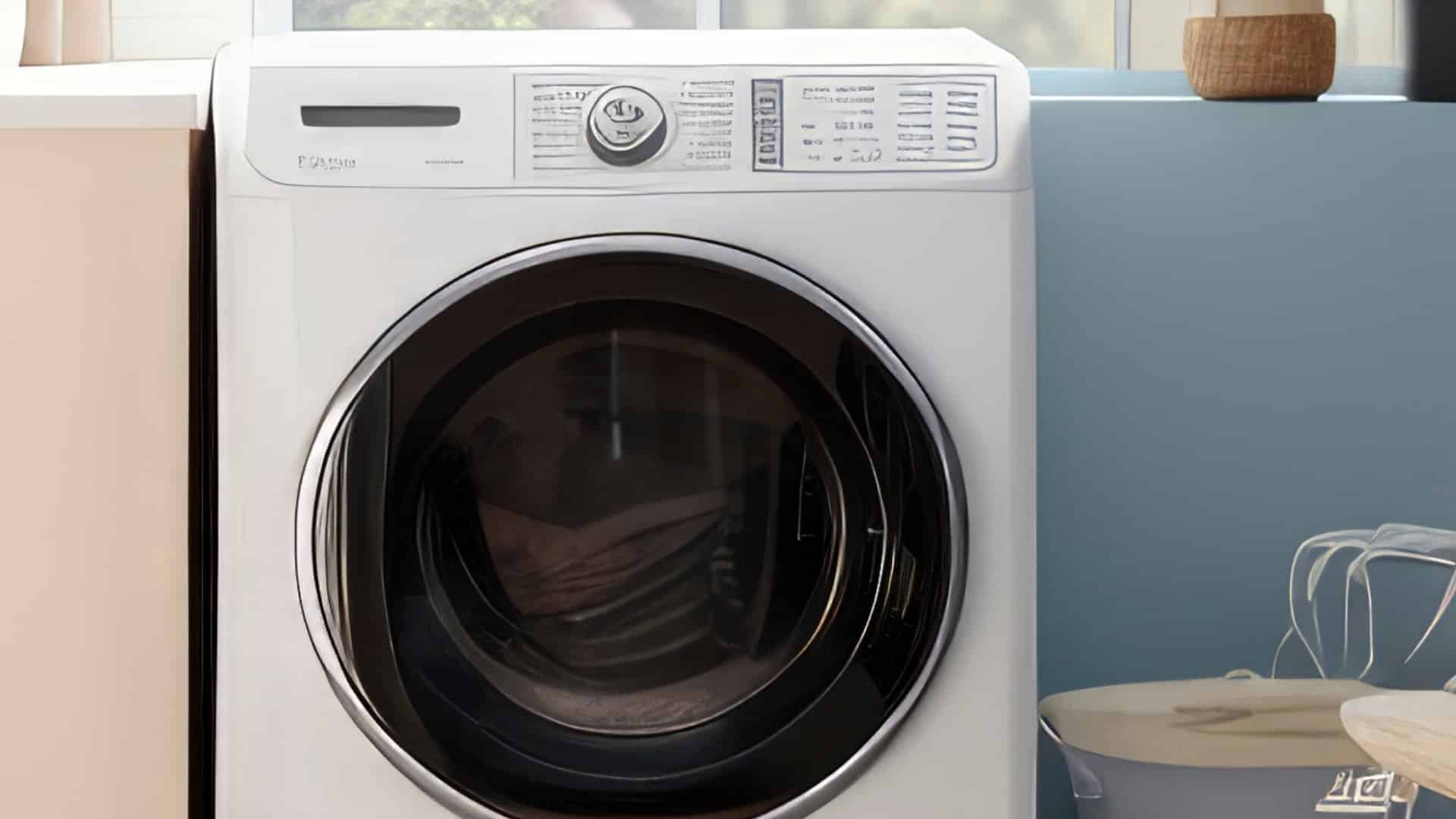
Maytag Washer Error Codes Explained
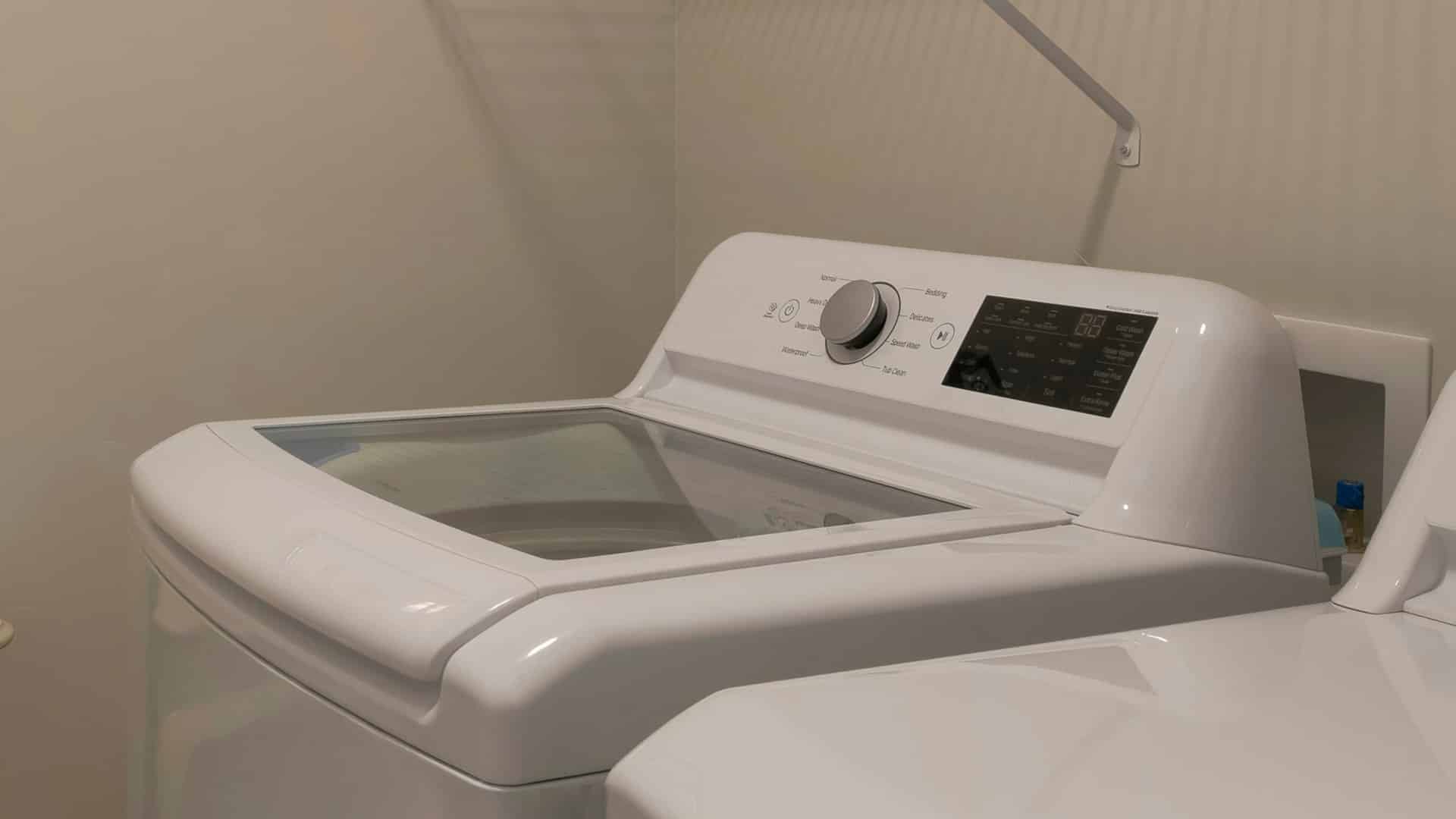
GE Washer Not Spinning? Here’s The Fix!
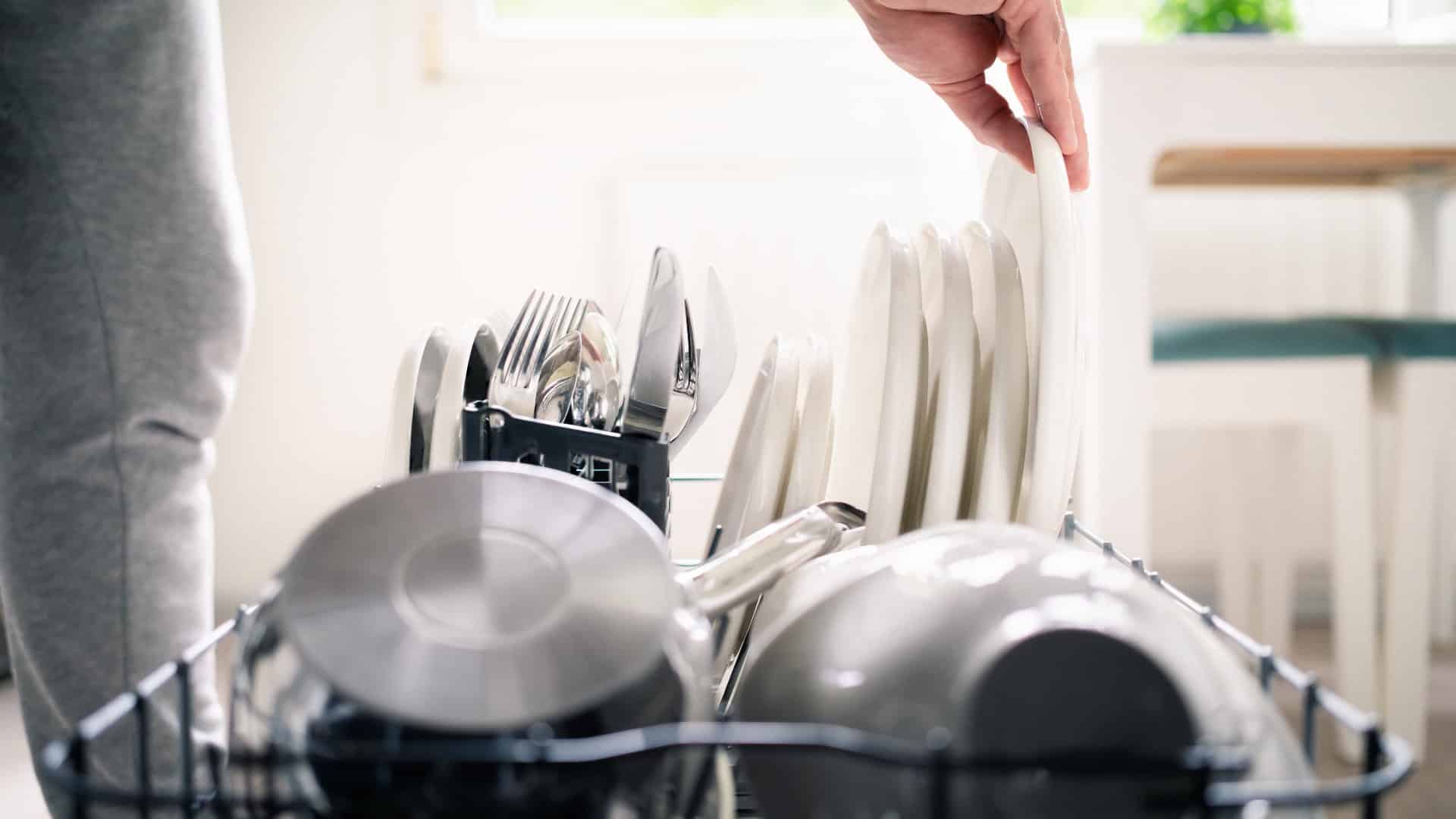
How to Restore Power to Your GE Dishwasher
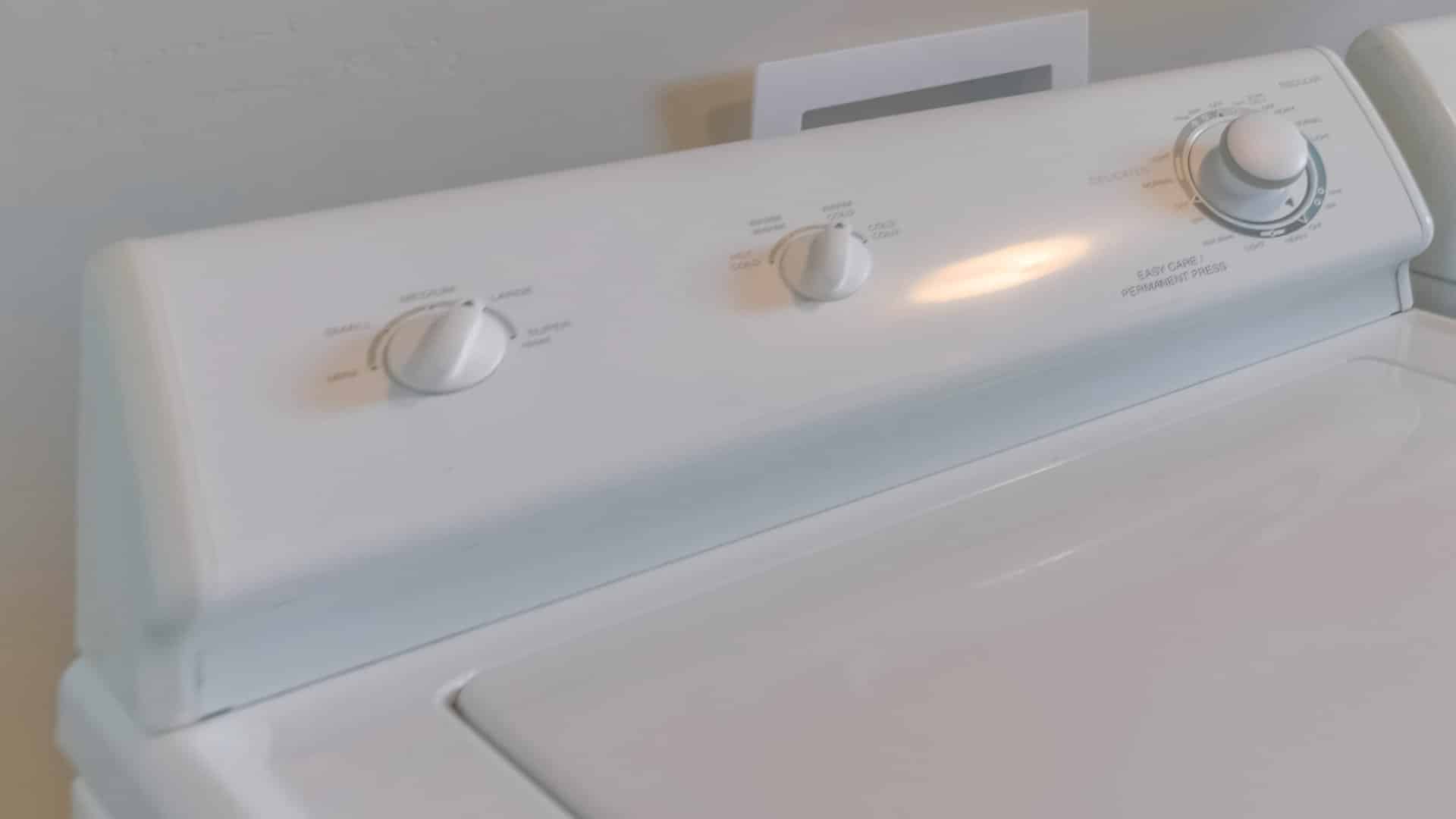
How To Reset Your GE Washer Top Loader
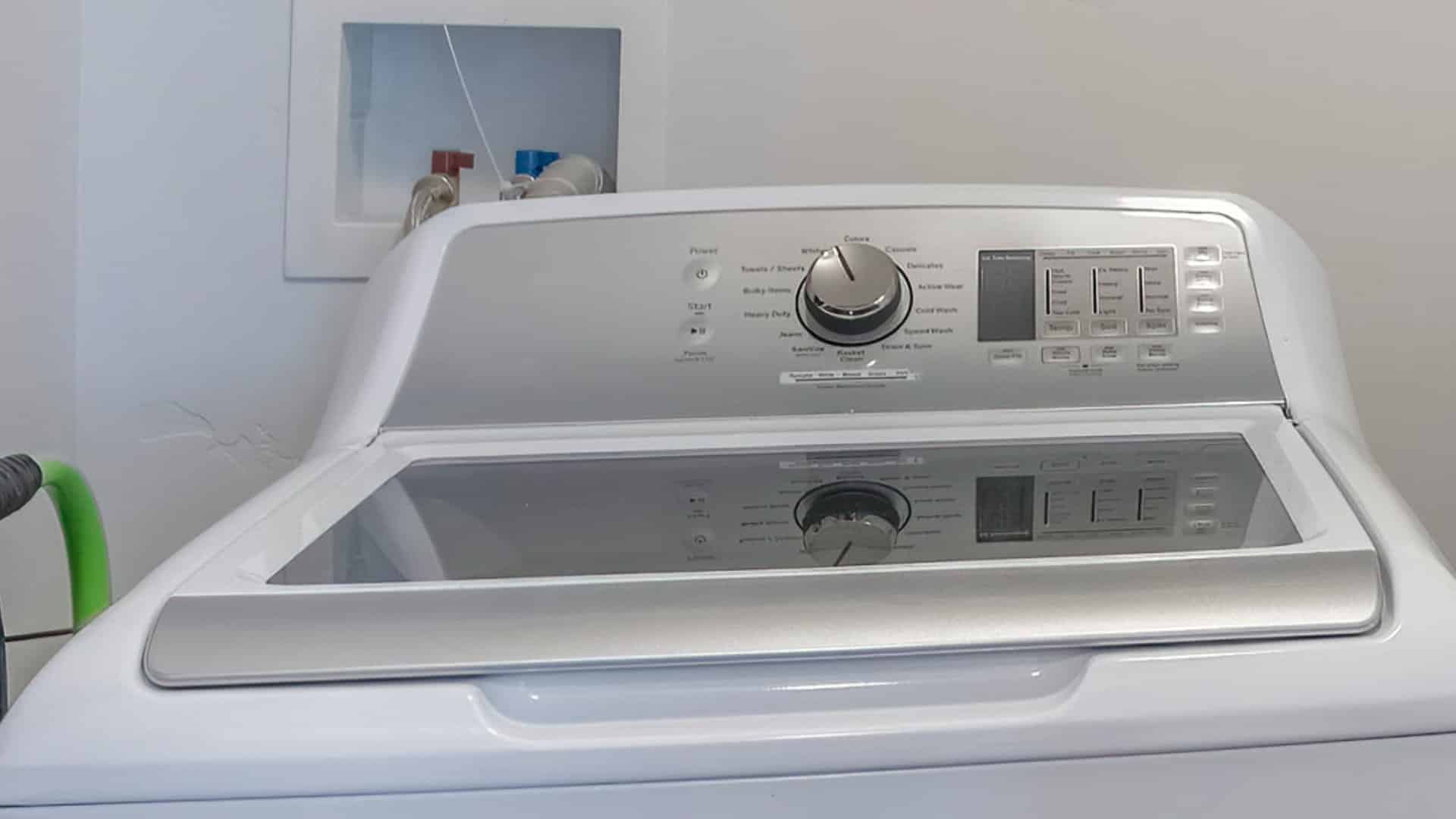
Understanding Whirlpool Washer Error Codes
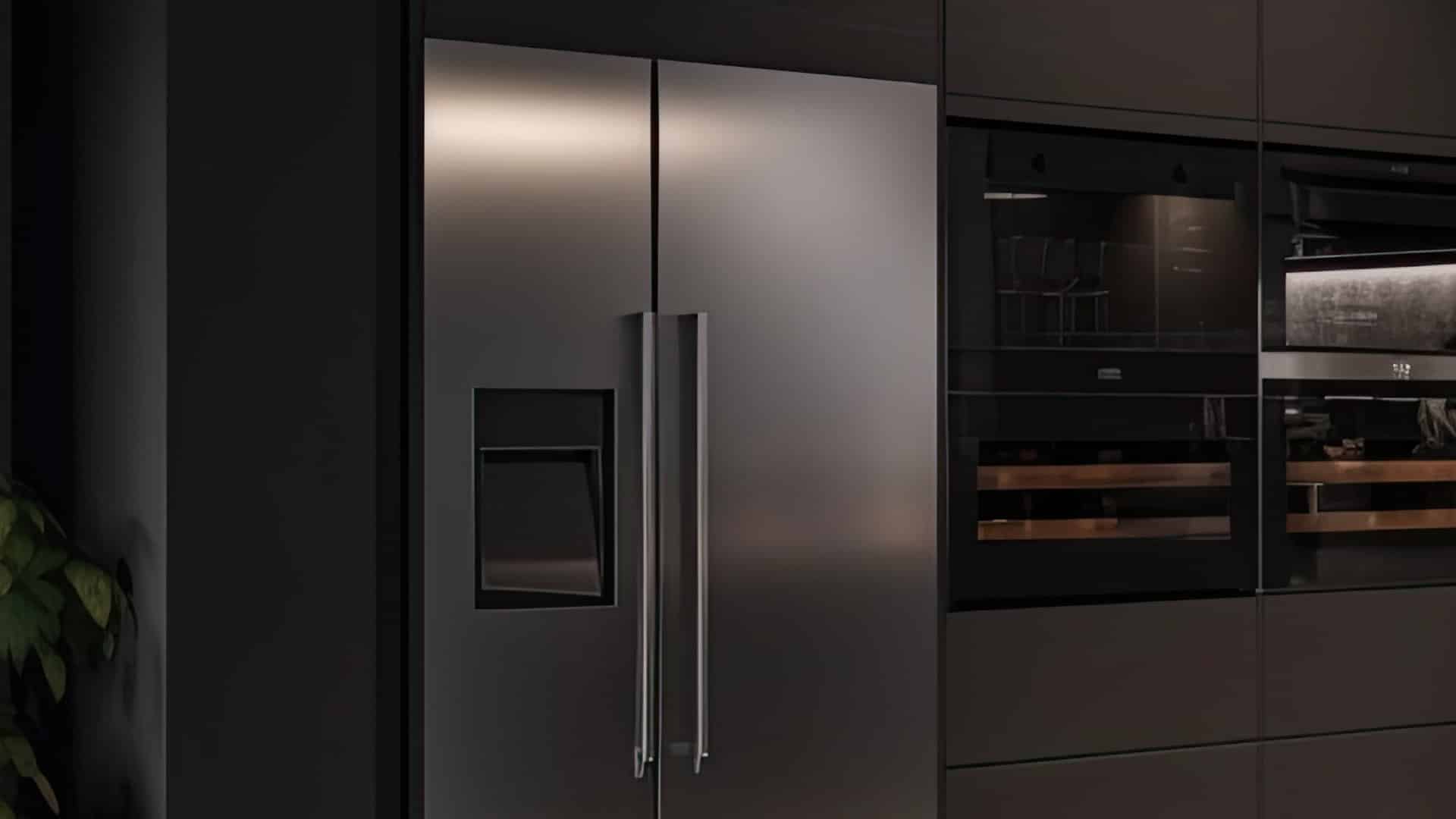
JennAir Ice Maker Not Working? Here’s What to Do
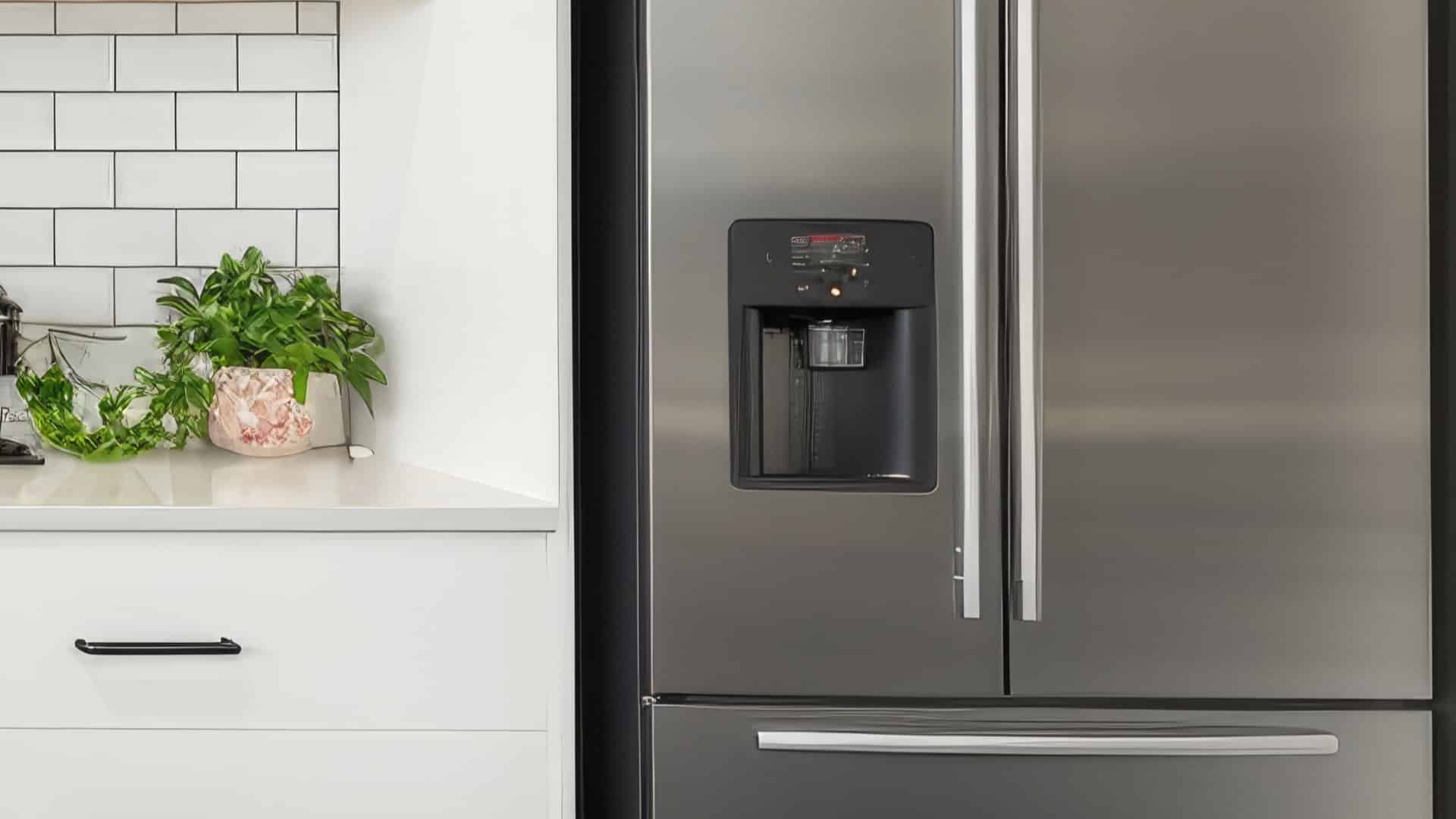
What to Do If Your LG Fridge Isn’t Cooling

Propane vs. Natural Gas Stove: What’s Best?

How Hot Does a Dryer Get?
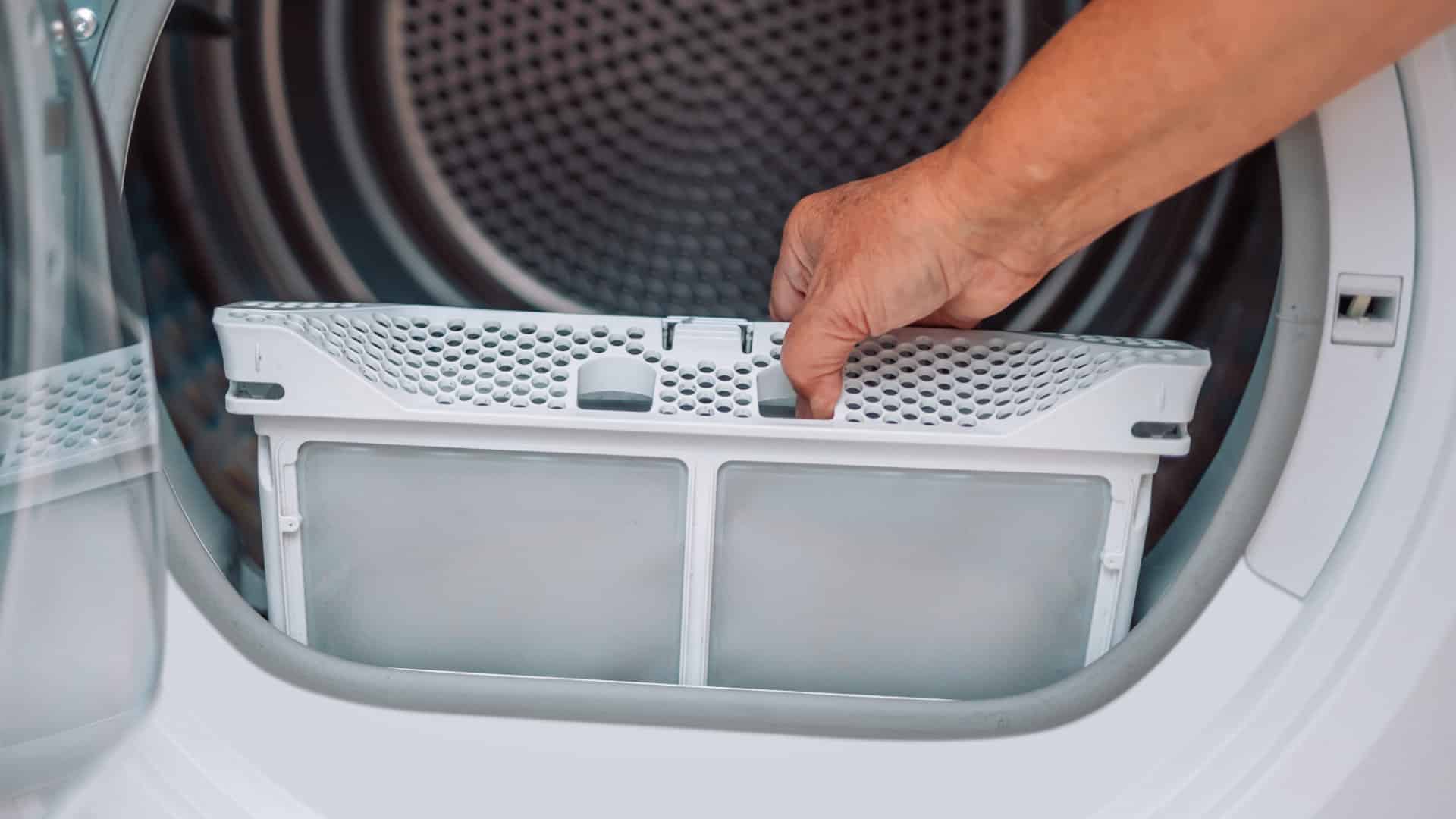
LG Dryer Flow Sense: Everything You Need to Know
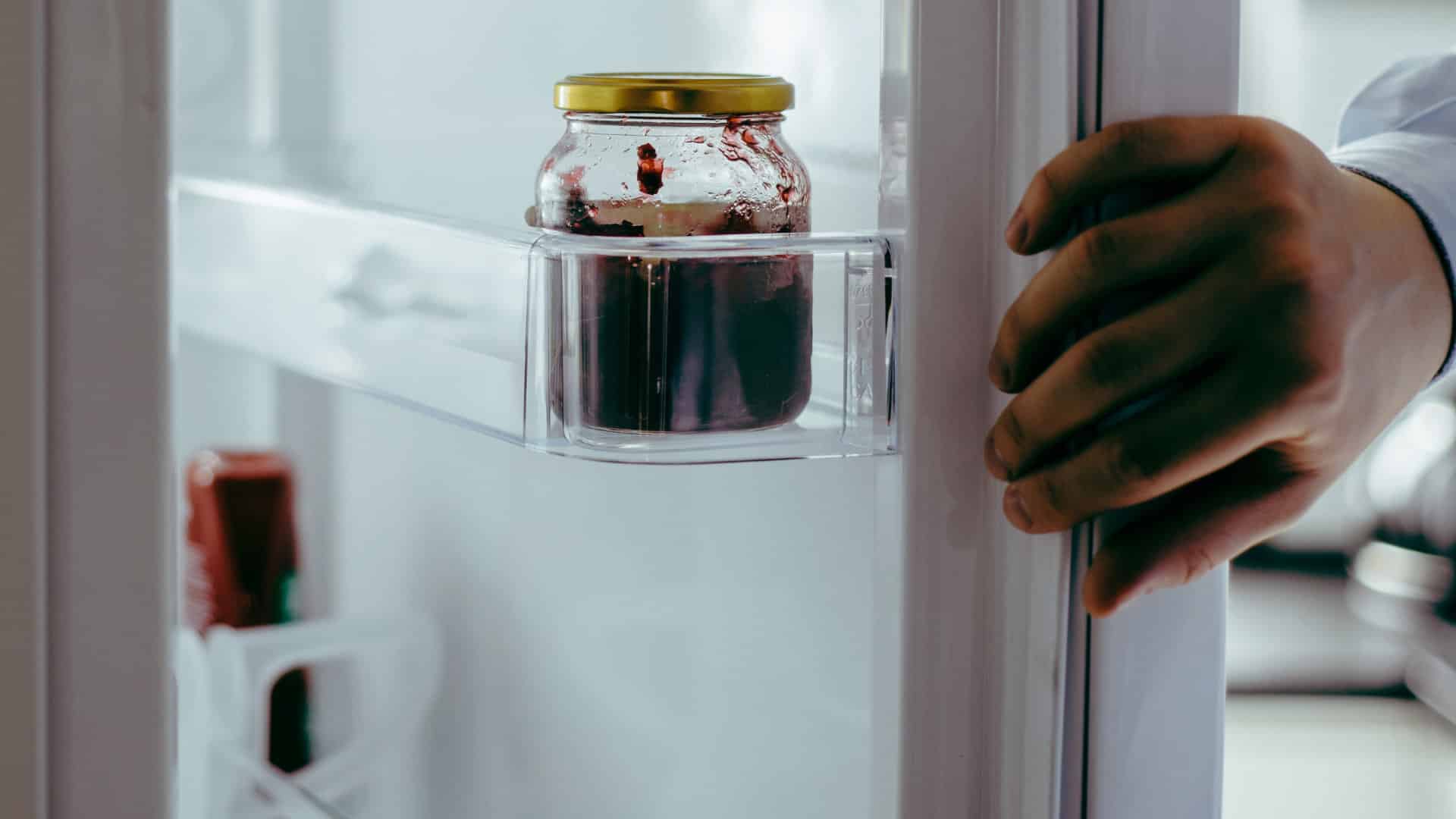
What to Do When Your Freezer Is Not Freezing but the Fridge Is Cold
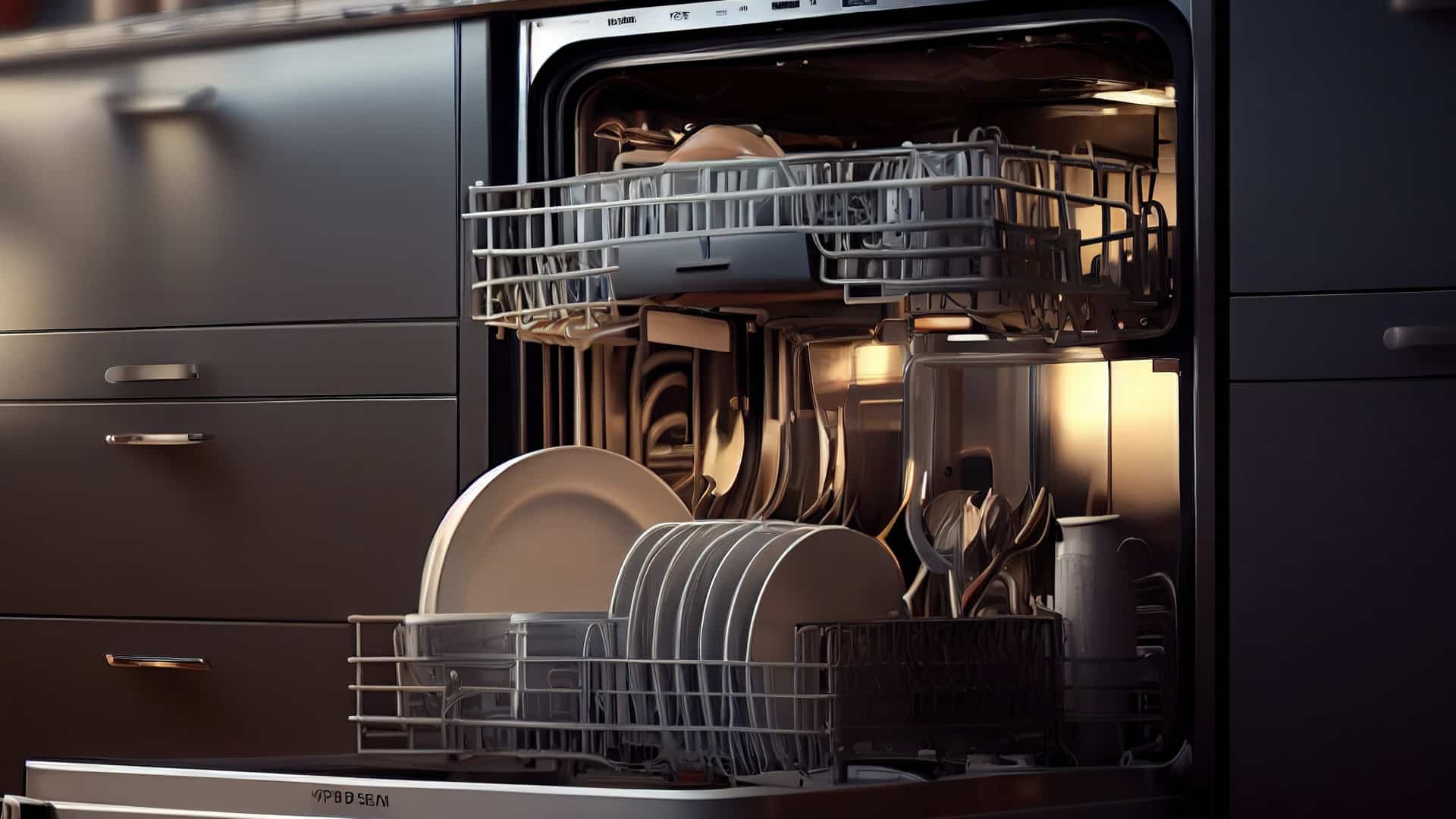

How to Solve Maytag Dishwasher Showing Error F9E1
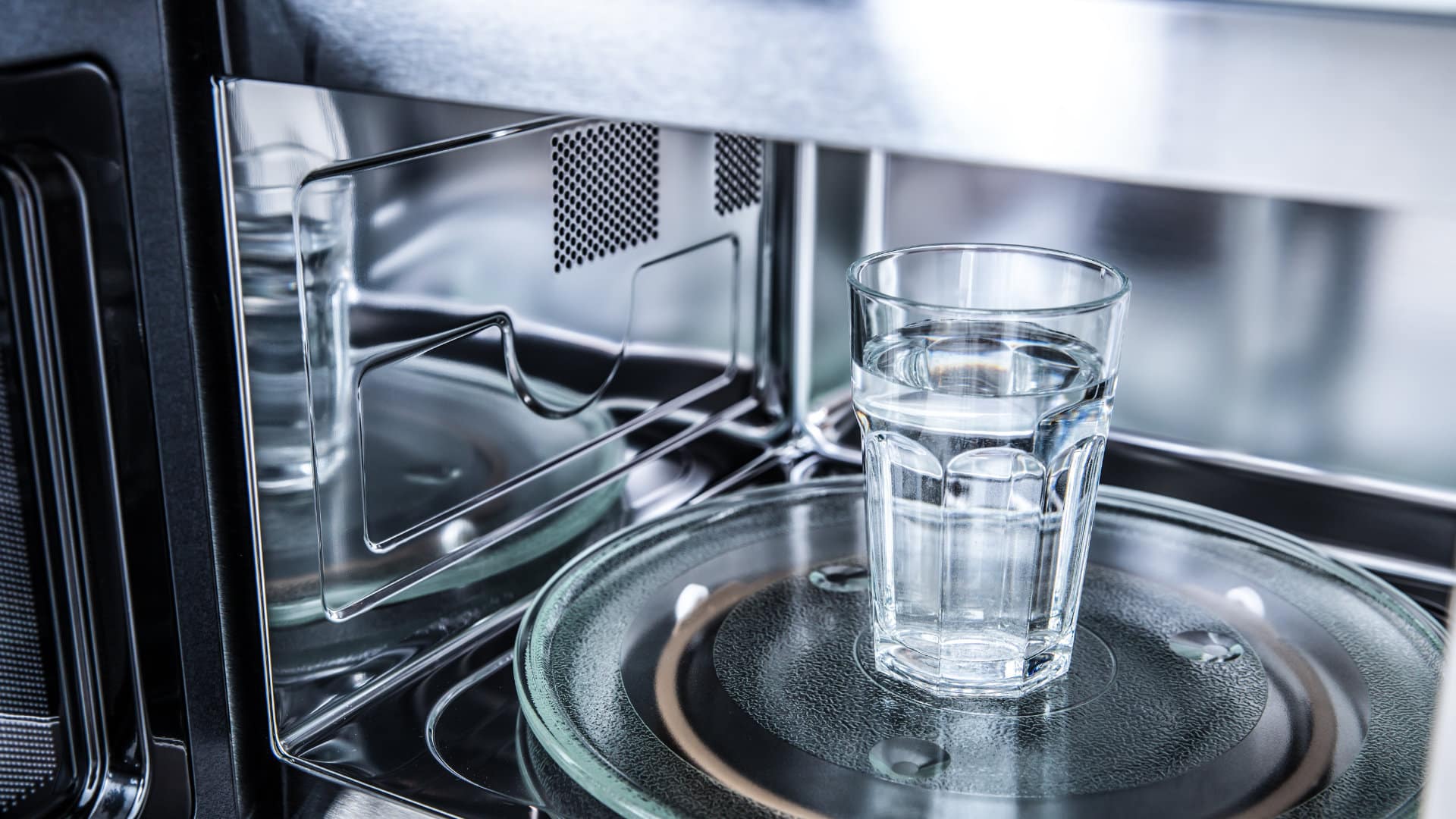
When Is a Microwave Unsafe to Use? (Warning Signs to Look For)
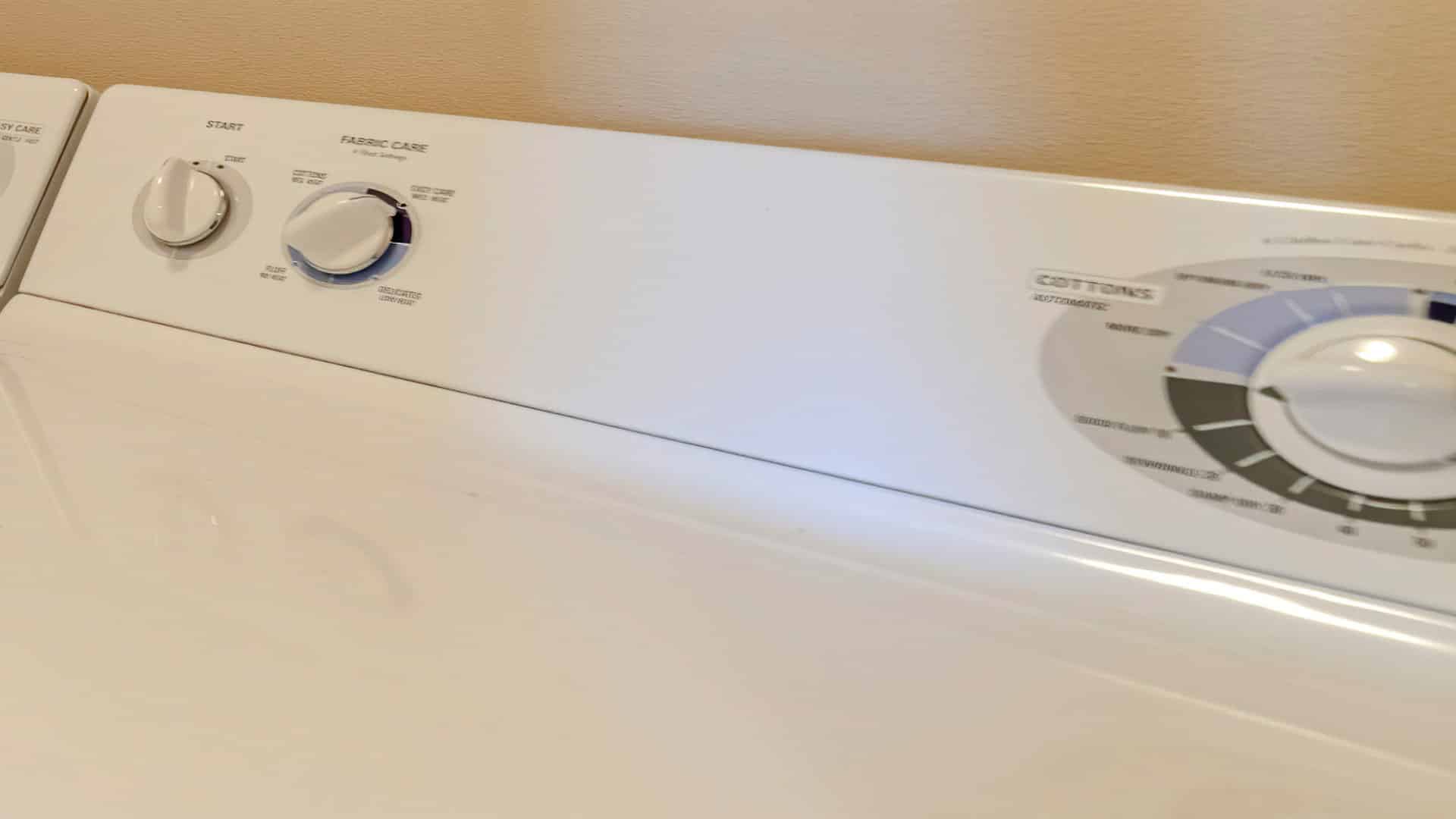
How to Fix a Squeaky Dryer (Step-by-Step)
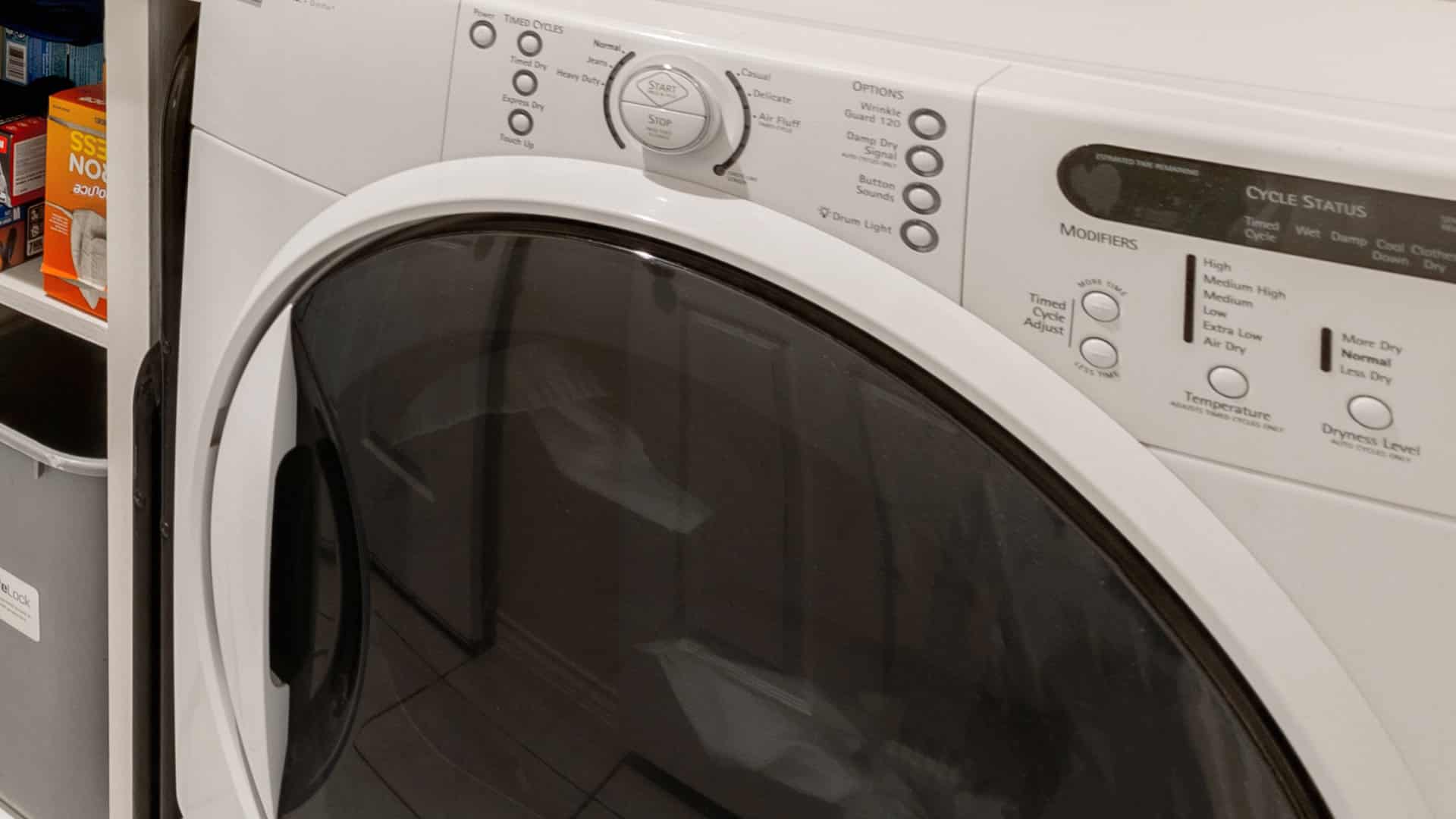
How To Remove Ink From Your Dryer
- Schedule Service
- Call (512) 819-0670
- Appliance Parts
- Customer Reviews
- Meet Our Team
- Pay My Bill
- News and Tips
- Leave a Review
Why Your Fridge Keeps Tripping Your Breaker
Home → Residential → Why Your Fridge Keeps Tripping Your Breaker
It’s not uncommon to hear clients wonder aloud, “Why is my refrigerator tripping the circuit?” If it’s a new fridge, you’re probably wondering why you’re having this problem. The fact is that many electrical trips don’t come from your wiring. They are a result of the demands that the fridge puts on your electrical systems. Unfortunately, there’s no single answer to the question. There are a lot of different ways that a refrigerator can cause a circuit breaker to trip. A tripped breaker isn’t a bad thing (unless it leads to everything in your fridge spoiling). Breakers are designed to trip to make sure surges and overloads don’t damage your appliances. Here, we’ll look at the most common reasons for a fridge to trip a breaker.
Overloaded Circuits
Overloaded circuits sometimes happen when you have high power-demand appliances plugged into your electrical systems. Electrical overloads happen when the number of devices plugged into a circuit exceeds the recommended load for it. Residential codes allow for a maximum of twenty (20) amps to be running through a circuit as the rated amount. Suppose your fridge is plugged into a circuit with other high-demand electrical devices (freezers, air condition units, etc.). In that case, you could lead to an overload on the circuit without even knowing you’re doing so. When that happens, the breaker will trip to ensure that no damage occurs to the other appliances you have plugged in.
Short Circuits
You’ve probably encountered short circuits before in at least one of your household appliances. Short circuits tend to occur when a neutral wire touches a ground wire, leading to electricity bypassing the rest of the circuit completely. Troubleshooting this sort of problem is relatively simple. If the breaker tripped immediately after plugging in the fridge, then you should consider unplugging it, resetting the breaker, and plugging in a second appliance. If the second appliance works, the short circuit is inside the refrigerator. If the second appliance doesn’t work, you’ll have to examine the outlet itself. If you can’t find a problem with the outlet wiring, it may exist within the breaker box. Isolation of the issue gives you a chance to fix it (or, even better, call a professional ).
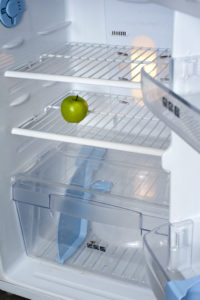
Old Wires and Insulation
If you have an aging home, then the fault may lie with your insulation or wiring. Materials of the house’s electrical system are likely to become worn out with time. Insulation in older homes starts to flake and crumble, leaving wires exposed. Aside from being a very present fire hazard, this breakdown of materials can wreak havoc with your appliances, not just your fridge. Prints on the refrigerator cord also age and may bend. The breaker box’s metal and plastic components are also of extreme concern, becoming loose and potentially leading to faults over time.
Why is My Refrigerator Tripping the Circuit?
As we explored, the issue may stem from any number of factors. You can probably pinpoint the problem yourself, but fixing it is another matter entirely. Electrical systems can be dangerous, especially to non-specialists. It doesn’t take many amps to render a person unconscious. On the contrary, it could happen with something as simple as an in-home electrical outlet with a short circuit. If you’re having this breaker problem, always call the professionals. LiveWire has been serving the community for years, and we would be glad to take a look at your breaker box and house wiring. Call us today to schedule a visit !
- Charlotte Electrician
- Electrical Services
- Huntersville
- Residential
- Tips & Tricks
- Types of Lights
- Uncategorized
Recent Posts
- Dangers of Aluminum Wiring in Your House
- What Does An Electrical Fire Smell Like?
- Preventing Electrical Fire
- What to Look for When Choosing an Electrician in Charlotte NC
- Professional Electricians in Charlotte, NC
Request Service Today
- Job / Request / Info *

Owned & operated by Bobby Lynn, LiveWire Electrical has been serving the greater Charlotte, NC area for over 18 years. Proudly licensed (28517-U), bonded, and insured! Call today for a free quote! (704) 289-7792
Are you in need of a professional electrician that is Licensed, Bonded & Insured? Get in touch with LiveWire Electrical today!
Our Location
Service Areas
Other links.
Map & Directions
Visit our Blog
FEATURED REVIEW OF LIVEWIRE ELECTRICAL BY DAN P. ON GOOGLE

Galvin Power is reader-supported. When you buy via our links, we may earn a commission at no cost to you. Learn more
Why Does Your Refrigerator Keep Tripping the Breaker? 3 Reasons
Written by Edwin Jones / Fact checked by Andrew Wright
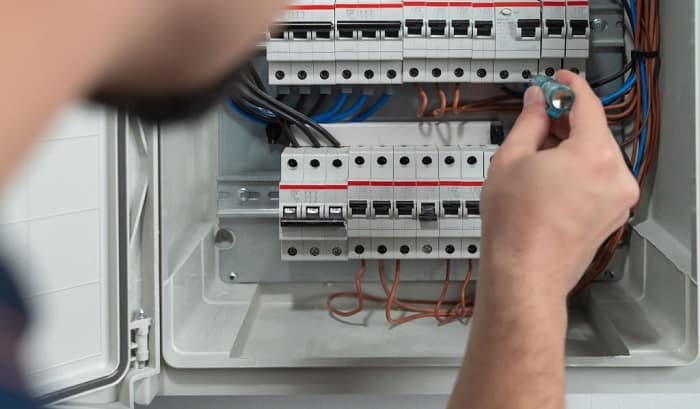
A refrigerator is an indispensable appliance in modern households. The importance of refrigerators cannot be understated as, without them, our food products will surely perish and rot easily.
Due to its vital duties in households, refrigerators tend to consume much electricity.
Issues such as when your refrigerator trips breaker when plugged in, or even freezer tripping breaker are prevalent in the homes of people who are not electrically savvy.
Why does your refrigerator keep tripping the breaker? If you’re unaware, some of the reasons why your refrigerator keeps tripping breakers are the following: busted internal mechanism of the fridge, bad circuitry, and an aging breaker.
Hence, if your refrigerator breaker keeps tripping, then this article guide might be for you. Read more below to find out the reason why your cooling appliance might constantly be tripping your circuit breakers.
Table of Contents
1. Overloaded Circuit
2. short circuit, 3. ground fault surging, 1. faulty compressor, 2. defrost heater issues, 3. broken fridge fan, 4. broken thermostat, primary causes why a refrigerator keeps tripping circuit breaker (circuit-related).
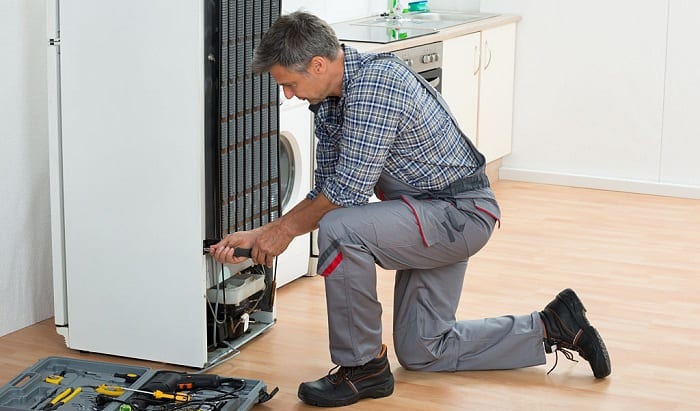
Before delving into and investigating whether the tripping problem is due to the internal mechanisms of the refrigerator, we should first check prominent circuitry issues.
You see, unchecked circuit line problems can lead to electrical fire and electrocution, hence the reason why we should first check our refrigeration circuitry — to prevent the escalation of electrical-related accidents.
To outline, I have listed below the leading circuitry-based reasons as to why your fridge breaker might constantly be tripping.
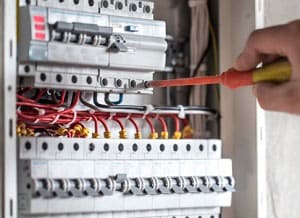
An overloaded circuit happens when an appliance draws a significant electrical load through a lower-rated line. The inability of the circuit line to handle the electrical load demand by an electricity-hungry appliance places undue stress on the circuit, which could result in constant breaker tripping.
In the case of fridges, you should check whether the refrigerator itself is the reason for the constant tripping by disconnecting all other appliances within the circuit line one by one. If the line still continues to trip despite other appliances being unplugged, then you may need to conduct a further in-depth investigation.
Simply speaking, a short circuit happens when a “hot” wire comes into contact with a “neutral” wire, creating an electric surge. Heat is then produced, which could melt the insulation of these wires, exacerbating the issue, which could eventually lead to fire.
In the case of fridges, if you plugged in the refrigerator directly just before the breaker tripped, disconnect it and plug in a different electrical appliance. If the second appliance works without any issues, then the cause of the short circuit could most likely be from the fridge itself. Learn more details how to fix short circuits here .
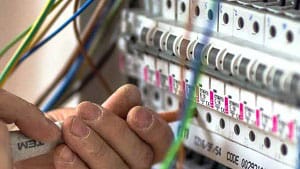
A ground fault surging is quite similar to a short circuit, the only difference being with how the electrical issue is generated. For this type of electrical circuit issue, the “hot” wire contacts with the ground wire of a circuit or the breaker box , creating a tremendous electric surge.
Check your electric switches for any discoloration to determine whether a ground fault is your line’s problem. Any burnt markings near “hot” and neutral wires are a telltale sign of ground fault surging.
Common Refrigerator Problems that Cause a Breaker to Trip

Now that we’ve sorted that out, we can now head onto the common refrigerator mechanical issues that may cause constant breaker trippings.
I advise that you do carefully inspect the refrigerator’s mechanisms to prevent any damage to the fridge’s parts.
The refrigerator’s compressor is mainly responsible for receiving low-pressure gas from the evaporator, directly converting it to high-pressure gas through mechanical compression.
Hence, if there is an earthing problem with the compressor, the fridge may constantly trip the circuit breaker. When this happens, you must examine the circuit lines to check whether it is indeed an earthing problem with the compressor.
To check the compressor, you may unplug the compressor’s power hookups. If the breaker no longer trips when you plug in the refrigerator, then the tripping problem may be due to a faulty compressor.
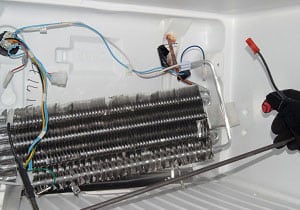
For the sake of brevity, a refrigerator’s defrost heater’s duty is to prevent the accumulation of heavy ice inside the fridge.
The most common issue for defrosters is grounding or earth leakage. To check for this specific issue, you can disconnect the defroster from the main electrical components of the refrigerator.
If the tripping stops when the defroster is disconnected, then this part may be mainly responsible as to why the fridge keeps tripping circuit breaker.
Moreover, you can also check this part by resetting the defrost timer, forcing the defrosting cycle to begin. If you notice that the breaker begins tripping when the defroster starts to perform the cycle, then the latter may be compromised by being water-damaged (a common problem) or shorting through damaged insulation.
The fridge’s fan helps distribute the produced cold air throughout the refrigerator. It is an important mechanism, and also among the common problematic internal components due to its constant movement.
Like with the defrosting heater, the fan may be experiencing earth leakage. Moreover, you can also choose to either clean or replace the fan if you think that this is the reason why your fridge constantly trips the circuit breaker.
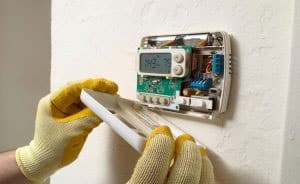
Though it is rare for a thermostat to break, this part remains to be a mechanism of interest when it comes to tripping breakers.
As you see, the thermostat is solely responsible for dictating the amount of power the fridge will gather from the circuit line. If the thermostat is faulty and is set at a high rating, then it may overload the circuit, causing a tripped breaker.
To determine whether it is the thermostat causing the issue, you can check by conducting a temperature test within the unit.
A constant headache, the question of “why does your refrigerator keep tripping the breaker?” remains an important question for us homeowners.
Evidently, we all don’t want our important appliances — specifically, our refrigeration unit — to trip our breakers due to unknown reasons constantly. In this case, I have written this article to help you further understand the reason as to why your fridge constantly trips breakers.
If you have any questions or you just want to add something to our discussion, then accordingly do so in the comment section below.

I am Edwin Jones, in charge of designing content for Galvinpower. I aspire to use my experiences in marketing to create reliable and necessary information to help our readers. It has been fun to work with Andrew and apply his incredible knowledge to our content.
Why Does My Fridge Keep Tripping the Breaker?
- Refrigerator Repair
- Refrigerator Keeps Running
- Fridge Freezing Up at the Back
- Refrigerator Is Freezing Over
- Refrigerator Blowing Warm Air
- Refrigerator Turn On and Off
- Refrigerator is Freezing Over
- Fridge Light Is Not Working
- Refrigerator is Not Cooling
- Dispenser Issues in Fridge
- Refrigerator is Not Making Noise
- Fridge is Not Cooling But Light is On
- Fridge is Making Humming Noise
- Mold in Refrigerator
If you’ve ever experienced the frustration of your fridge fridge keeps tripping breaker, you’re not alone. Many homeowners and tenants encounter this issue, and it can be quite perplexing. A tripping breaker not only disrupts the proper functioning of your refrigerator but also raises concerns about electrical safety.
Common Causes of Refrigerator Circuit Breaker Trips
There are some common causes behind the problem of a fridge tripping breaker:
- Overloaded Circuits;
- Short Circuits;
- Old Wires and Insulation;
- Faulty GFCI;
- Damaged Power Cord;
- Damaged Outlet;
- Issues in the Breaker Box;
- Faulty Compressor;
Overloaded Circuits
If your refrigerator keeps tripping the breaker, it can be attributed to an overloaded circuit. Overloading happens when multiple electrical appliances are connected to a single circuit, surpassing its power capacity. Refrigerators are known to be high-power devices, and if they share a circuit with other energy-intensive equipment like microwaves or dishwashers, the circuit can become overwhelmed. This excessive power demand triggers the breaker to trip, serving as a protective measure.
To avoid this issue, it’s crucial to distribute the electrical load evenly among different circuits. Consider connecting your refrigerator to a dedicated circuit that can handle its power requirements without overburdening it. If you notice that your fridge is sharing a circuit with other energy-consuming appliances, it’s advisable to reorganize and redistribute them accordingly.
By ensuring that your refrigerator has its own circuit or is connected with compatible devices, you can prevent overloading and subsequent breaker trips. This simple adjustment will help maintain a stable electrical supply, allowing your fridge to operate smoothly without causing disruptions or safety concerns. Remember, proper circuit management is key to avoiding potential hazards and ensuring the reliable performance of your appliances.
Short Circuits
A short circuit is another frequent culprit behind a fridge that keeps tripping breaker. It happens when there is a direct and unintended connection between the hot wire and either the neutral wire or the ground wire. This connection bypasses the normal electrical resistance, leading to a sudden surge of current and prompting the circuit breaker to trip as a safety precaution. Short circuits can occur due to various factors, such as damaged wires, loose connections, or faulty electrical components within the refrigerator.
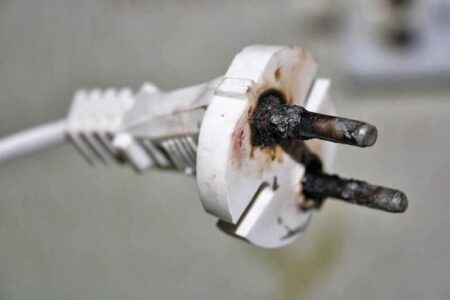
If you suspect a short circuit as the cause of your refrigerator tripping the breaker, it’s essential to take immediate action. Start by unplugging the fridge and examining the power cord for any visible signs of damage or frayed wires. Carefully inspect the outlet as well to ensure it is not damaged or worn. If you discover any issues, it is recommended to replace the power cord or repair the outlet before reconnecting the refrigerator. In cases where the short circuit is not apparent from a visual inspection, it is advisable to seek the assistance of a qualified electrician. They have the expertise to diagnose and resolve complex electrical problems, ensuring the safety and proper functioning of your refrigerator. Remember, addressing short circuits promptly is crucial to prevent potential electrical hazards and damage to your appliance.
Old Wires and Insulation
Outdated wiring and insulation can be another underlying cause of your refrigerator tripping the breaker. As electrical systems age, the wiring can deteriorate, resulting in exposed or frayed wires. Moreover, worn-out insulation may no longer offer sufficient protection, heightening the likelihood of electrical faults and circuit breaker trips. If your home has older electrical wiring, it’s crucial to have it evaluated by a professional electrician to ensure its safety and proper functioning.
During an inspection, the electrician will assess the condition of the wiring, checking for any signs of wear, damage, or outdated components. They may recommend rewiring or upgrading the electrical system to meet current safety standards. By addressing old wiring and insulation issues, you can mitigate the risk of electrical malfunctions, reduce the frequency of breaker trips, and safeguard your refrigerator’s performance.
It’s important to remember that working with electrical systems can be hazardous, so it’s best to leave any repairs or upgrades to qualified professionals. They have the necessary knowledge and experience to handle electrical projects safely and effectively. By investing in updated wiring and insulation, you not only enhance the reliability of your refrigerator but also improve the overall electrical safety of your home.
Faulty GFCI
A Ground Fault Circuit Interrupter (GFCI) plays a crucial role in safeguarding against electrical shocks. If your refrigerator is plugged into a GFCI outlet and you experience frequent breaker trips, a faulty GFCI could be the root cause. Over time, GFCIs can wear out or become overly sensitive to even minor electrical imbalances, leading them to trip unnecessarily. When this happens, it is important to address the issue promptly to ensure the safe operation of your refrigerator.
Replacing a faulty GFCI outlet is a recommended course of action. You can find GFCIs at most hardware stores, and they are designed to be easy to install. However, if you are unsure about the process or would prefer assistance, consulting with a professional electrician is a wise choice. They possess the expertise to accurately diagnose the problem and install a new GFCI outlet if necessary.
Remember, GFCIs are vital for electrical safety, so it’s essential to address any issues promptly. By ensuring the proper functioning of your GFCI outlet, you not only protect yourself and your family from potential electrical hazards but also maintain the reliable performance of your refrigerator.
Damaged Power Cord
A damaged power cord is another potential cause of refrigerator circuit breaker problems. When the power cord becomes frayed, cut, or otherwise compromised, it poses electrical hazards and can result in intermittent connections. These unstable connections can cause power fluctuations, triggering the circuit breaker to trip as a safety measure. To prevent this issue, it’s important to regularly inspect the power cord of your refrigerator and promptly address any signs of damage.
During your inspection, carefully examine the power cord for any visible signs of wear and tear, such as frayed or exposed wires. If you notice any damage, it’s crucial to replace the power cord to ensure the safe and reliable operation of your refrigerator.
When replacing a power cord, it’s essential to use a cord that matches the manufacturer’s specifications and guidelines. You can typically find suitable replacement cords at appliance stores or by contacting the refrigerator’s manufacturer directly. If you are uncertain about the replacement process or prefer assistance, consulting with a qualified technician or an electrician is advisable.
By maintaining a well-functioning power cord, you can reduce the risk of breaker trips and ensure the efficient and safe performance of your refrigerator.
Damaged Outlet
Sometimes, the problem behind your refrigerator tripping the breaker may stem from the outlet itself. A damaged outlet with loose or deteriorating connections can lead to an unstable electrical supply to your refrigerator. This instability can cause frequent breaker trips, disrupting the proper functioning of your appliance. If you suspect that the outlet is at fault, it is important to address the issue promptly.
Firstly, ensure your safety by turning off the power to the outlet at the breaker box. Then, carefully inspect the outlet for any visible signs of damage, such as loose or corroded wires, or cracks in the outlet plate. If you notice any problems, it is highly recommended to contact a qualified electrician to evaluate and repair the outlet.
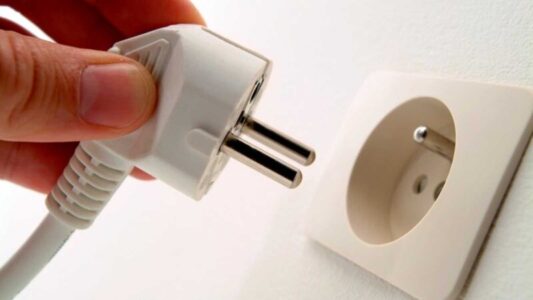
An electrician will have the expertise to identify and rectify any issues with the outlet, ensuring a secure and reliable electrical connection for your refrigerator. They may need to replace the outlet entirely or address any wiring or connection problems. Remember, tampering with electrical outlets can be dangerous and should only be done by a trained professional. Prioritizing safety and seeking professional assistance will help prevent further problems and ensure the smooth operation of your refrigerator.
Issues in the Breaker Box
If you’re experiencing frequent breaker trips with your refrigerator, it’s essential to consider the condition of your breaker box. Loose connections, faulty breakers, or an outdated electrical panel can all contribute to this recurring issue. To address these problems and ensure the proper functioning of your refrigerator, it’s advisable to consult a professional electrician.
An electrician will thoroughly inspect your breaker box to identify any loose or damaged connections. They will also assess the performance of the breakers within the box, checking for signs of wear or malfunction. In some cases, an outdated electrical panel may be the root cause of the problem. In such situations, the electrician may recommend upgrading the panel to a more modern and reliable version.
By addressing these issues within the breaker box, the electrician can help prevent frequent breaker trips and ensure a stable electrical supply to your refrigerator. They will recommend appropriate solutions based on their assessment, which may include replacing faulty breakers, tightening loose connections, or upgrading the electrical panel.
Remember, working with the breaker box requires specialized knowledge and expertise. It’s crucial to leave this task to a professional electrician to guarantee your safety and avoid further electrical complications. They will handle the necessary repairs or upgrades to keep your refrigerator running smoothly without tripping the breaker.
Faulty Compressor
The compressor plays a crucial role in the cooling system of your refrigerator. However, if it experiences faults or malfunctions, it can lead to excessive power consumption and overload the circuit, resulting in the breaker tripping. When faced with such issues, it is important to address the problem promptly.
If you suspect a problem with the compressor, it is advisable to seek the assistance of a refrigerator technician. These professionals possess the necessary expertise to diagnose and resolve compressor-related problems. They can accurately assess the condition of the compressor, identify any faults, and recommend the appropriate course of action.
In some cases, the compressor may require repair or replacement. This task should be carried out by qualified technicians who specialize in refrigerator repairs. They have the knowledge and tools to handle compressor issues safely and effectively.
If your refrigerator is still under warranty, contacting the manufacturer’s support can also be a viable option. They can provide guidance and direct you to authorized service centers that can handle compressor-related problems.
By addressing compressor issues promptly and seeking professional help, you can ensure the optimal performance of your refrigerator and prevent further refrigerator breaker keeps tripping. Remember to consult experts in the field to receive accurate diagnosis and appropriate solutions for any compressor-related problems.
What to Do When Your Refrigerator Continues to Trip the Breaker
Dealing with a fridge that keeps tripping the breaker can be frustrating, but there are steps you can take to address the issue:
Disconnect other appliances. If your refrigerator shares a circuit with other high-power appliances, consider unplugging or redistributing them to reduce the load on the circuit.
Plug into a different outlet. Try connecting your fridge to a different outlet on a separate circuit to determine if the issue persists. This step can help identify whether the problem lies with the appliance or the electrical supply.
Check for electrical issues. Inspect the power cord, outlet, and breaker box for any visible signs of damage or loose connections. If you notice any problems, consult a qualified electrician for repairs.
Consult a professional. If the breaker continues to trip even after troubleshooting, it’s best to seek assistance from a refrigerator technician or an electrician experienced in appliance electrical systems. They can diagnose the problem accurately and provide appropriate solutions.
Preventive Measures to Avoid Your Fridge Tripping the Circuit Breaker
Taking proactive steps to prevent your fridge from tripping the circuit breaker can save you time, money, and the hassle of dealing with frequent breaker trips. Here are some preventive measures you can implement:
Be mindful of the electrical load on the circuit where your refrigerator is connected. Avoid connecting other high-power appliances to the same circuit to prevent overloading.
Ensure that your refrigerator’s temperature settings are appropriate for efficient operation. Extremely low or high settings can cause the compressor to work harder, potentially leading to fridge compressor tripping.
Regularly check the door seal and gaskets for any signs of wear or damage. Air leaks can disrupt the cooling process, forcing the compressor to run longer and draw more power.
Keep the air vents at the back or underneath the refrigerator clean and free from obstructions. Proper airflow is essential for efficient cooling and can prevent unnecessary strain on the compressor.
Ensure the defrost drain is clear and free from blockages. A clogged defrost drain can lead to ice buildup and cooling issues, potentially causing the breaker to trip.
Inspect the insulation around electrical wiring and components in your refrigerator. Worn-out or damaged insulation can increase the risk of electrical faults and trips.
By implementing these preventive measures and addressing any underlying electrical issues promptly, you can minimize the chances of your fridge tripping the circuit breaker and ensure its smooth and safe operation.
When a fridge breaker keeps tripping it can be a frustrating and concerning issue. Understanding the common causes, troubleshooting steps, and preventive measures can help you resolve the problem effectively. If you’re unsure or uncomfortable with electrical repairs, it’s always best to seek professional assistance from qualified technicians or electricians. Remember, prioritizing electrical safety is crucial to safeguarding your home and appliances.
Little Household Additions For Long-Lasting Happiness
- Cookware & Bakeware
- Food Storage Solutions
- Kitchen Furniture & Decor
- Kitchen Gadgets & Utensils
- Kitchen Renovation Ideas
- Small Kitchen Appliances
- Bathroom Accessories
- Bathroom Fixtures
- Bathroom Furniture
- Bedroom Furniture
- Kitchen Furniture
- Living Room Furniture
- Office Furniture
- Outdoor Furniture
- Interior Design Trends
- Space-Saving Solutions
- Garden Tools & Equipment
- Home DIY & Maintenance
- Landscaping Ideas
- Outdoor Entertaining
- Outdoor Lighting
- Outdoor Recreation & Activities
- Outdoor Structures
- Patio & Deck Designs
- Pet & Wildlife Care
- Plant Care & Gardening Tips
- Pool & Spa Care
- Seasonal & Event Decor
- Energy-Efficient Appliances
- Home Entertainment Systems
- Home Office Tech
- Latest Tech Trends in Home Improvement
- Security & Surveillance
- Smart Home Devices
- DIY Projects & Ideas
- Flooring & Tiling
- Home Renovation Guides
- Painting & Decorating
- Plumbing & Electrical
- Tools & Equipment
- Appliance Maintenance & Repair
- Bathroom Appliances
- Cleaning Appliances
- Heating & Cooling
- Home Automation Appliances
- Kitchen Appliances
- Laundry Appliances
- Lighting Appliances
- Other Appliances
- Air Quality & Filtration
- Ergonomic Home Solutions
- Family & Pet-Friendly Home Design
- Healthy Home Cooking
- Home Fitness Equipment
- Mindfulness & Relaxation Spaces
- Building Materials
- Construction Techniques
- Electrical and Plumbing Systems
- Hand & Power Tools
- Professional Contractor Advice
- Safety Gear & Equipment
- Worksite Management
- Energy-Saving Tips
- Home Insulation & Ventilation
- Solar Power Solutions
- Child & Elderly Safety at Home
- Emergency Preparedness
- Home Maintenance Checklists
- Pest Control Solutions
- Safety Equipment & Products
- Seasonal Home Care
- Budgeting & Planning Guides
- Buying Guides
- How-To Guides
- Maintenance & Care Guides
- Product Reviews
- Style & Inspiration Guides
- Bathroom Storage Ideas
- Closet & Wardrobe Organization
- Decluttering Tips & Tricks
- Garage Storage Solutions
- Kitchen Organizing Tools
- Living Room Organization
- Office & Desk Organizers
- Eco-Friendly Products
- Home Hacks & Tips
- Personalized Home Decor
- Seasonal & Holiday Decor
- Specialized Home Improvement Topics
- Unique Home Solutions
- How to Store
Home > Articles > How To Fix Refrigerator Tripping Breaker
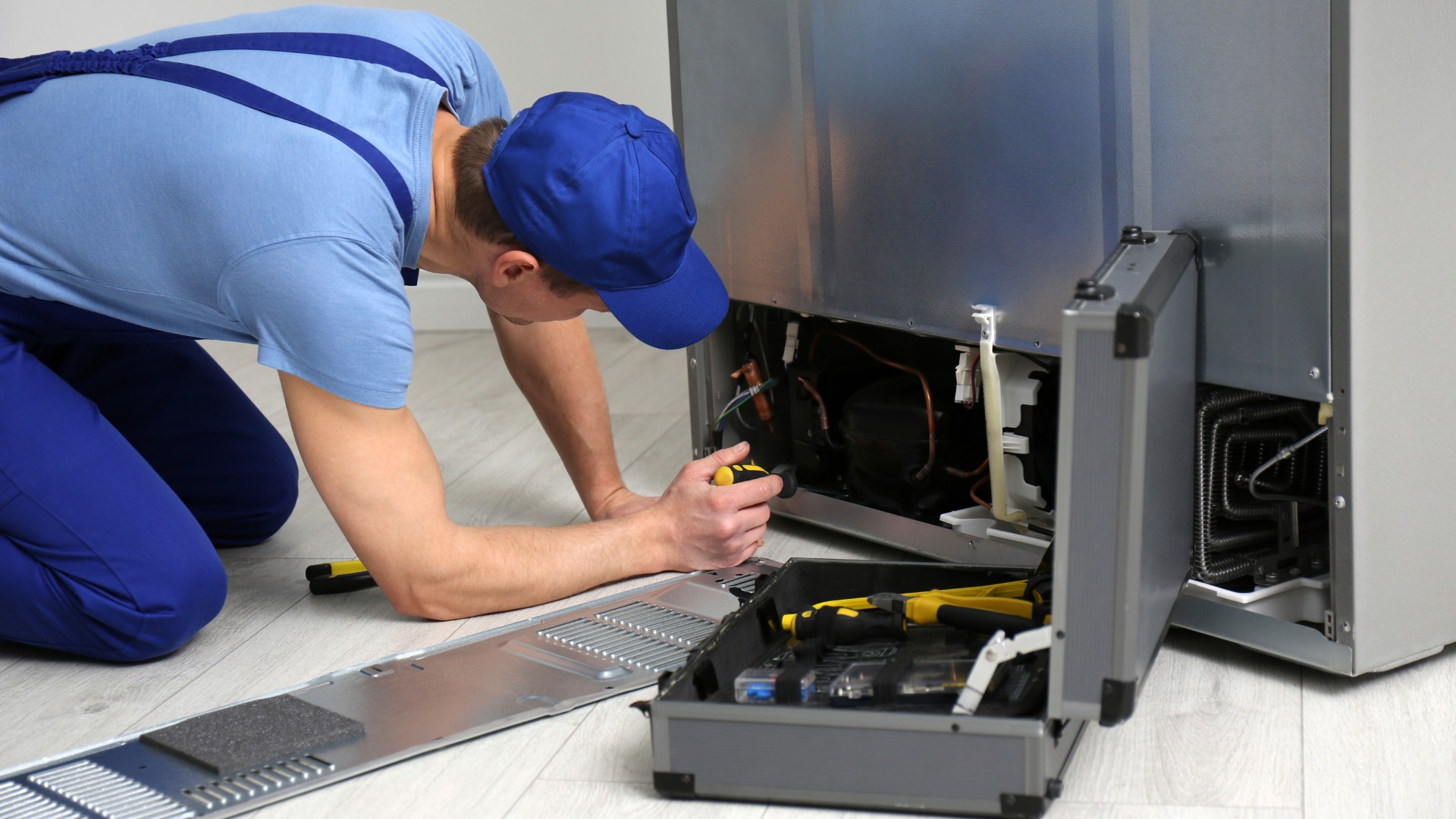
How To Fix Refrigerator Tripping Breaker
Modified: May 6, 2024
Written by: Benjamin Parker
Learn how to fix a refrigerator that keeps tripping the breaker with these helpful articles.
- Home Appliances
(Many of the links in this article redirect to a specific reviewed product. Your purchase of these products through affiliate links helps to generate commission for Storables.com, at no extra cost. Learn more )
- Introduction
A refrigerator is an essential appliance in any household, preserving our food and keeping it fresh. However, there may be instances when your refrigerator trips the breaker, causing inconvenience and potentially leading to spoiled groceries. Understanding the common causes of a refrigerator tripping the breaker can help you troubleshoot the issue and find a solution.
When a refrigerator trips the breaker, it means that the electrical circuit that powers the appliance has been overloaded or short-circuited. This can happen for various reasons, such as a faulty power cord, a problem with the outlet, or issues with the refrigerator’s components.
In this article, we will guide you through the steps to fix a refrigerator tripping the breaker. We will cover common causes, how to check the circuit breaker, inspect the power cord, examine the outlet, test the refrigerator’s components, clean the condenser coils, verify the door seal, and adjust the temperature settings. By following these steps, you can hopefully resolve the issue and get your refrigerator back up and running.
Before we dive into the troubleshooting steps, it’s important to note that electrical work can be dangerous, and if you are not comfortable working with electricity, it is best to seek the assistance of a professional electrician. Safety should always be a top priority when dealing with any electrical issue.
Now, let’s explore the common causes of a refrigerator tripping the breaker and how to address them.
Key Takeaways:
- Troubleshoot and resolve refrigerator breaker trips by checking the circuit breaker, inspecting the power cord, and testing components. Regular maintenance, such as cleaning condenser coils and verifying the door seal, can prevent future issues.
- Prioritize safety and seek professional assistance if uncomfortable with electrical work. Adjusting temperature settings and avoiding circuit overloading can help maintain a reliable and efficient refrigerator.
Read more : Why Breakers Trip
- Common Causes of a Refrigerator Tripping Breaker
When your refrigerator keeps tripping the breaker, it can be frustrating and inconvenient. Understanding the common causes behind this issue can help you identify and address the problem.
1. Overloaded Circuit: One of the main causes of a refrigerator tripping the breaker is an overloaded circuit. Refrigerators require a significant amount of power to run, especially when the compressor kicks in. If the circuit is already carrying too much load from other appliances, it can cause the breaker to trip. To resolve this issue, consider redistributing the electrical load by plugging the refrigerator into a different circuit.
2. Faulty Power Cord: A frayed or damaged power cord can cause a short circuit and result in the breaker tripping. Inspect the power cord for any visible signs of damage, such as cuts or exposed wires. If you notice any issues, it’s important to replace the power cord with a new one to ensure safe and uninterrupted operation of the refrigerator.
3. Outlet Problems: Sometimes, the problem lies with the outlet itself. Loose connections or faulty wiring can cause the breaker to trip. Check the outlet by plugging in another appliance and see if it trips the breaker as well. If it does, the issue is likely with the outlet, and you should contact a professional electrician to repair or replace it.
4. Defective Components: Faulty components within the refrigerator, such as the compressor or the motor, can also lead to the breaker tripping. In some cases, these components may draw excessive power or cause a short circuit, triggering the breaker. It is recommended to contact a professional appliance repair technician to diagnose and replace any defective components.
5. Refrigerator Overheating: Overheating is another common cause of a refrigerator tripping the breaker. When the condenser coils are clogged with dust and dirt, heat is not dissipated effectively, causing the compressor to work harder and overheat. This can lead to excessive power consumption and the breaker tripping. Regularly cleaning the condenser coils can help prevent overheating and ensure the efficient operation of the refrigerator.
By understanding these common causes of a refrigerator tripping the breaker, you can take the necessary steps to diagnose and resolve the issue. Next, we will guide you through the process of checking the circuit breaker to determine if that is the source of the problem.
- Checking the Circuit Breaker
When your refrigerator trips the breaker, the first step is to check the circuit breaker in your electrical panel. The circuit breaker is designed to protect the electrical circuit from overloading and short circuits. Here’s how to check if the circuit breaker is the culprit:
- Locate the Electrical Panel: Find the electrical panel in your home, commonly located in the basement, utility room, or garage. Open the panel door to reveal the circuit breakers.
- Identify the Refrigerator’s Circuit Breaker: Look for the circuit breaker that corresponds to your refrigerator. It is typically labeled with the designated area or appliance it serves. Check if the breaker is in the “tripped” position, meaning it is halfway between the “on” and “off” positions.
- Reset the Tripped Breaker: To reset a tripped breaker, firmly push it to the “off” position and then switch it back to the “on” position. You should hear a click indicating it has reset.
- Observe the Breaker: After resetting the breaker, observe if it holds or trips again. If it holds and the refrigerator starts working, the issue may have been a temporary power surge or overload. However, if the breaker trips again immediately or shortly after resetting, proceed to the next troubleshooting steps.
Note: If you are unsure which breaker corresponds to your refrigerator, you can try unplugging the refrigerator or turning it off temporarily. Then, observe which breaker shuts off or trips when you attempt to turn the refrigerator back on. This will help you identify the correct breaker to reset.
If the circuit breaker continues to trip after resetting, it is advisable to seek professional assistance from a licensed electrician. They will have the expertise and tools to diagnose the electrical issue and make any necessary repairs.
Next, we will discuss how to inspect the power cord for any potential problems that could be causing your refrigerator to trip the breaker.
- Inspecting the Power Cord
After checking the circuit breaker and ensuring it is not the cause of your refrigerator tripping, the next step is to inspect the power cord. A damaged or faulty power cord can result in a short circuit, leading to the breaker being tripped. Here’s how to inspect the power cord:
- Unplug the Refrigerator: Before inspecting the power cord, make sure to unplug the refrigerator from the electrical outlet. This is crucial for your safety during the inspection process.
- Examine the Power Cord: Carefully examine the entire length of the power cord, looking for any visible signs of damage, such as fraying, cuts, or exposed wires. Pay special attention to areas near the plug and where the cord enters the refrigerator.
- Check the Plug: Inspect the plug for any signs of damage or bent prongs. Ensure that it is not loose when plugged into the outlet.
- Plug into a Different Outlet: If you suspect that the current outlet may be faulty, try plugging the refrigerator into a different outlet in another room using a properly grounded extension cord. This will help determine if the issue lies with the outlet rather than the power cord.
If you notice any damage to the power cord, it is crucial to replace it with a new one as soon as possible. Using a damaged power cord can be hazardous and may result in further electrical problems or even a fire.
When replacing the power cord, ensure that you are using a cord that is compatible with the refrigerator model and meets safety standards. If you are unsure about how to replace the power cord, it is best to consult a professional appliance technician or an electrician to assist you.
If the power cord appears to be in good condition and properly plugged in, and the refrigerator still continues to trip the breaker, it’s time to move on to the next troubleshooting step – examining the outlet.
- Examining the Outlet
If your refrigerator continues to trip the breaker even after checking the circuit breaker and inspecting the power cord, it’s time to examine the outlet. A faulty or damaged outlet can cause electrical issues that lead to the breaker being tripped. Follow these steps to examine the outlet:
- Turn Off the Power: Before examining the outlet, ensure that you turn off the power to the circuit by switching off the corresponding breaker in the electrical panel.
- Remove the Cover Plate : Use a screwdriver to carefully remove the cover plate of the outlet. This will expose the wiring and connections.
- Inspect the Outlet and Wiring: Look for any visible signs of damage, such as loose wires, burnt marks, or discoloration. Check that the wires are securely connected and there are no loose terminals or exposed copper wire.
- Check for Grounding: A properly grounded outlet is essential for ensuring the safe operation of electrical appliances. Verify that the outlet has a grounding wire (usually green) attached to the grounding screw or a metal grounding box. If the outlet is not grounded, it may need to be replaced or upgraded by a qualified electrician.
- Test with a Multimeter: If you have access to a multimeter, you can test the outlet for proper voltage. Set the multimeter to the AC voltage setting and insert the red and black probes into the corresponding slots of the outlet. It should read the standard voltage (110-120 volts).
If you notice any obvious issues, such as loose wires or burnt marks, it is best to contact a licensed electrician to repair or replace the outlet. Electrical work can be dangerous, and it’s important to have a professional handle any repairs.
If the outlet appears to be in good condition and properly wired, and the refrigerator still trips the breaker, it’s time to move on to the next troubleshooting step – testing the refrigerator’s components.
Check for any frayed or damaged cords, and make sure the refrigerator is not plugged into a overloaded circuit. If the problem persists, consult a professional technician.
Read more : What Causes HVAC Breaker To Trip
- Testing the Refrigerator’s Components
If your refrigerator continues to trip the breaker even after checking the circuit breaker, inspecting the power cord, and examining the outlet, it’s important to test the refrigerator’s components. Faulty components within the refrigerator can cause electrical issues that lead to the breaker being tripped. Here’s how to test the components:
- Unplug the Refrigerator: Before testing the components, make sure to unplug the refrigerator from the electrical outlet. This is crucial for your safety during the testing process.
- Compressor and Motor: The compressor and motor are integral components of the refrigerator. A faulty compressor or motor can draw excessive power or cause a short circuit, resulting in the breaker tripping. Contact a professional appliance repair technician to inspect and test these components.
- Start Capacitor: The start capacitor helps the compressor start up. If it is defective, it can cause the compressor to draw excessive power and trip the breaker. A technician can test the start capacitor using specialized equipment and replace it if necessary.
- Defrost Heater: The defrost heater removes frost buildup from the evaporator coils. A malfunctioning defrost heater may cause the refrigerator to run longer than usual and potentially trip the breaker. A technician can test the continuity of the defrost heater to determine if it is working properly.
- Thermostat: The thermostat regulates the temperature inside the refrigerator. A faulty thermostat can cause the compressor to run continuously, leading to excessive power consumption and a potential breaker trip. A technician can test the thermostat for accuracy and replace it if needed.
- Other Components: There are various other components within the refrigerator that could contribute to the breaker tripping, such as the evaporator fan, condenser fan , and defrost timer. Only a professional appliance technician with the necessary equipment and expertise should diagnose and test these components.
Testing and repairing the internal components of a refrigerator can be complex and hazardous. It is recommended to contact a professional appliance repair technician who specializes in refrigerators. They have the knowledge and experience to accurately diagnose and repair any component issues, ensuring the safe and efficient operation of your refrigerator.
If all the components are functioning properly and the refrigerator still trips the breaker, it’s time to explore other potential troubleshooting steps, such as cleaning the condenser coils or verifying the door seal.
- Cleaning the Condenser Coils
If your refrigerator continues to trip the breaker despite checking the circuit breaker, the power cord, examining the outlet, and testing the refrigerator’s components, it’s important to consider the condition of the condenser coils. Dirty or clogged condenser coils can cause the refrigerator to overheat, leading to excessive power consumption and potentially tripping the breaker. Here’s how to clean the condenser coils:
- Locate the Condenser Coils: The condenser coils are typically located at the back of the refrigerator or underneath it, behind the kick plate. Consult your refrigerator’s manual to identify the exact location of the condenser coils.
- Unplug the Refrigerator: Before cleaning the condenser coils, ensure that you unplug the refrigerator from the electrical outlet. This is important for your safety during the cleaning process.
- Remove Dust and Debris: Use a brush or a vacuum cleaner with a crevice attachment to gently remove any accumulated dust, dirt, or debris from the condenser coils. Be careful not to bend or damage the delicate fins of the coils.
- Clean Finer Dust: If there is finer dust or residue sticking to the coils, you can use a coil cleaning brush or a soft cloth dampened with a mild detergent solution to wipe them down. Ensure that the coils are completely dry before plugging in the refrigerator.
- Check the Fan: While cleaning the condenser coils, it’s a good idea to inspect the fan located near the coils. Make sure the fan is clean and free from any obstructions that could hinder its airflow.
Regularly cleaning the condenser coils is essential for maintaining the efficiency and proper functioning of your refrigerator. By keeping the coils clean and free from debris, you can help prevent overheating, reduce power consumption, and decrease the likelihood of the breaker tripping.
If cleaning the condenser coils doesn’t resolve the issue and your refrigerator continues to trip the breaker, it’s time to move on to the next troubleshooting step – verifying the door seal.
- Verifying the Door Seal
A faulty or compromised door seal can cause air leakage inside the refrigerator, leading to excessive cooling and increased energy consumption. This strain on the refrigerator’s system can potentially trip the breaker. Verifying the door seal and ensuring it is in good condition is an important troubleshooting step. Here’s how to do it:
- Inspect the Door Seal: Take a close look at the door seal, also known as the gasket, for any signs of damage, such as cracks, tears, or wear. Check all sides of the seal, including the corners, for any gaps or irregularities.
- Close the Door and Check for Resistance: Close the refrigerator door and pay attention to the resistance you feel when pulling it open. A properly sealed door should provide some resistance, indicating that the seal is creating a tight closure. If the door feels loose or easily opens without resistance, it may indicate a problem with the door seal.
- Perform the Dollar Bill Test: To further test the effectiveness of the door seal, place a dollar bill between the door and the refrigerator frame. Close the door and try to pull out the dollar bill. If it slides out easily with little to no resistance, it suggests that the door seal is not sealing properly and may need to be replaced.
- Clean the Door Seal: Sometimes, a dirty door seal can prevent it from creating a proper seal. Use a mild detergent and warm water to clean the door seal, removing any debris or residue that may be interfering with its effectiveness. Ensure that the seal is completely dry before closing the door.
- Replace the Door Seal: If the door seal is damaged, worn, or not sealing properly, it’s crucial to replace it. Contact the refrigerator manufacturer or a professional appliance technician to obtain a suitable replacement seal and follow the manufacturer’s instructions for installation.
A properly functioning door seal is essential for maintaining the temperature and efficiency of your refrigerator. By ensuring a tight seal, you can reduce energy consumption and prevent the refrigerator from tripping the breaker due to excessive cooling. Regularly inspecting and maintaining the door seal will help keep your refrigerator running smoothly.
If verifying the door seal doesn’t resolve the issue and your refrigerator continues to trip the breaker, it’s recommended to consult a professional appliance repair technician for further assistance.
- Adjusting the Temperature Settings
Improper temperature settings in your refrigerator can cause it to work harder than necessary, leading to increased energy consumption and potentially tripping the breaker. Adjusting the temperature settings can help optimize the performance of your refrigerator and prevent such issues. Here’s how to do it:
- Refer to the Manufacturer’s Guidelines: Check the user manual or the manufacturer’s website for specific recommendations on the ideal temperature settings for your refrigerator. Different models may have different optimal temperature ranges.
- Cooling Section: Locate the temperature control dial or buttons in the cooling section of your refrigerator. Depending on the model, it may be located inside the fridge or on the control panel on the front of the appliance.
- Adjust the Refrigerator Temperature : The temperature control settings are usually labeled with numbers or indicators such as “warmer” and “cooler.” Gradually adjust the temperature to a slightly higher or lower setting, depending on your needs. Observe the refrigerator’s performance over the next few days to see if the adjustment resolves the issue of the breaker tripping.
- Adjust the Freezer Temperature: Similarly, locate the temperature control dial or buttons in the freezer section of your refrigerator. Adjust the freezer temperature according to the manufacturer’s guidelines or based on your preferences. Maintaining proper freezer temperature is important for efficient cooling and reducing strain on the refrigerator’s system.
- Monitor and Regularly Check the Temperatures: After making temperature adjustments, keep an eye on the refrigerator and freezer temperatures. Use a refrigerator thermometer to ensure that the temperatures are within the recommended ranges. This will help you determine if further adjustments are needed.
By properly adjusting the temperature settings, you can reduce the workload of your refrigerator and optimize its performance. This will not only help prevent the breaker from tripping but also contribute to energy efficiency and the longevity of the appliance.
If adjusting the temperature settings doesn’t solve the problem and your refrigerator continues to trip the breaker, it’s advisable to contact a professional appliance repair technician for a more in-depth assessment and potential repairs.
Read more : Why Do Arc Fault Breakers Trip
A refrigerator tripping the breaker can be a frustrating and inconvenient issue, but with proper troubleshooting and maintenance, it can be resolved. By following the steps outlined in this article, you can identify the common causes of a refrigerator tripping the breaker and take the necessary actions to fix the problem.
We started by checking the circuit breaker to ensure it is not the source of the issue. Then, we inspected the power cord for any damage and examined the outlet for any faulty wiring. If the problem persists, we moved on to testing the refrigerator’s components, such as the compressor, motor, and thermostat, to identify any potential issues that could be causing the breaker to trip.
If the components are functioning properly, we explored cleaning the condenser coils to prevent overheating and verifying the door seal to ensure proper insulation and temperature regulation. Lastly, we discussed the importance of adjusting the temperature settings to optimize the refrigerator’s performance and energy efficiency.
While these troubleshooting steps can help resolve common issues, it’s essential to prioritize safety and seek professional assistance if you are uncomfortable working with electricity or if the problem persists despite your efforts.
Maintaining your refrigerator through regular cleaning, inspection, and proper temperature settings is key to preventing breaker trips and ensuring the longevity of the appliance. Additionally, being mindful of overloading the circuit with other electrical devices can also help avoid future issues.
Remember, when it comes to electrical matters, safety is paramount. If you are uncertain or uncomfortable with any aspect of troubleshooting or repair, it is best to consult a licensed electrician or professional appliance repair technician who can provide expert guidance and assistance.
By diligently addressing the potential causes and taking appropriate action, you can resolve a refrigerator tripping the breaker and enjoy the convenience of a reliable and efficient appliance that keeps your food fresh and preserved.
Now that you've tackled fixing a refrigerator tripping breaker, why stop there? Your fridge could benefit from a bit more TLC. Dive deeper into maintaining your appliance with our detailed guide on refrigerator repair , where you'll find practical tips for keeping your fridge running smoothly. And don't forget about the ice maker! Regular cleaning is essential for optimal performance; learn how to easily clean your refrigerator's ice maker and ensure it's always in top condition. Keep your kitchen appliances at their best with these handy articles.
- Frequently Asked Questions about How To Fix Refrigerator Tripping Breaker
Was this page helpful?
At Storables.com , we guarantee accurate and reliable information. Our content, validated by Expert Board Contributors , is crafted following stringent Editorial Policies . We're committed to providing you with well-researched, expert-backed insights for all your informational needs.
0 thoughts on “ How To Fix Refrigerator Tripping Breaker ”
Leave a comment cancel reply.
Your email address will not be published. Required fields are marked *
Mastering the Negotiation Process: Tips for Maximizing Your Personal Injury Claim
Novilla bliss memory foam mattress: always providing the best sleep experience, role of pdf editors in converting messy papers into organized digital files, detailed guide on how to clean your air conditioner's filter, pet-friendly kitchen remodeling ideas, related post.
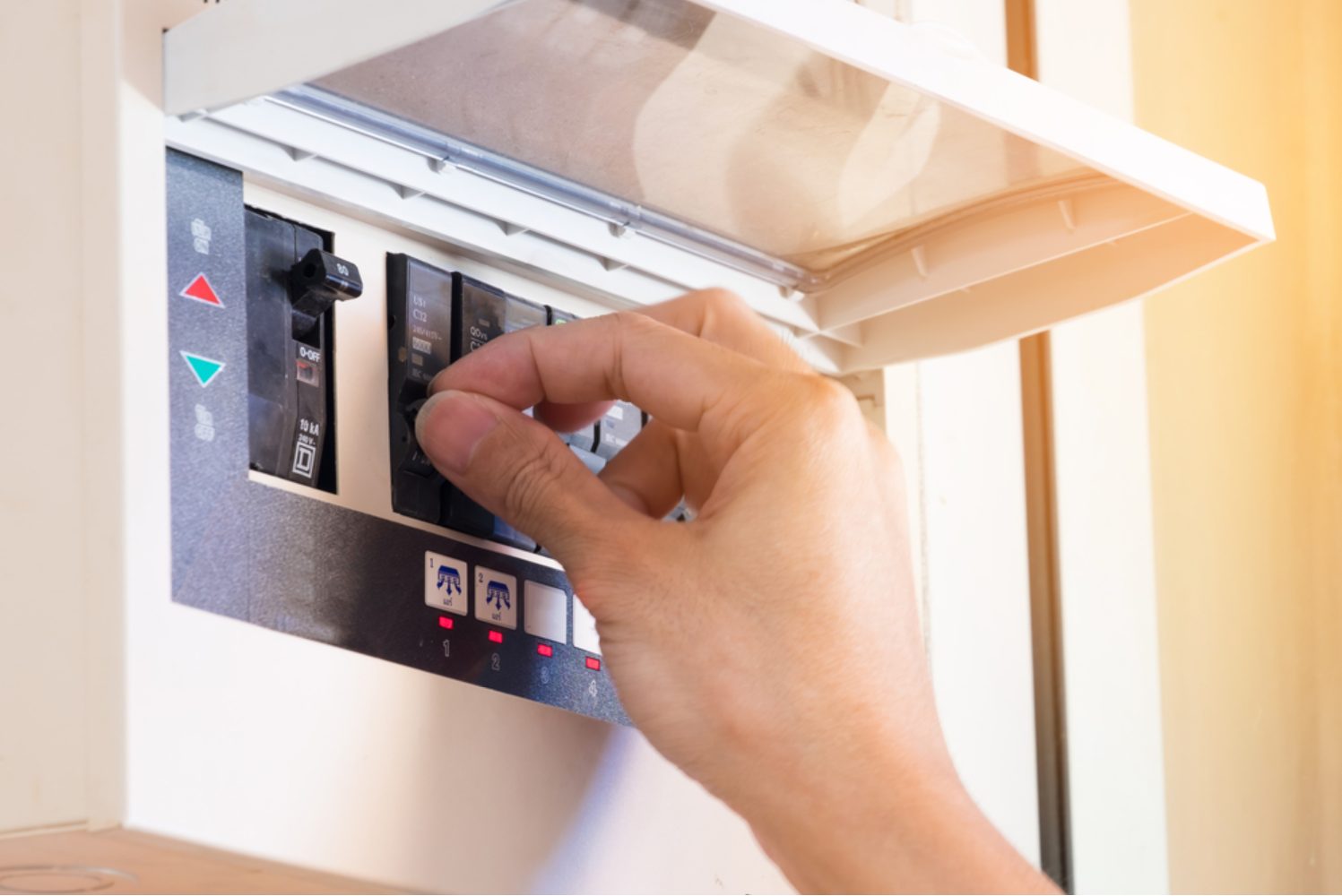
By: Oliver Mitchell • Articles
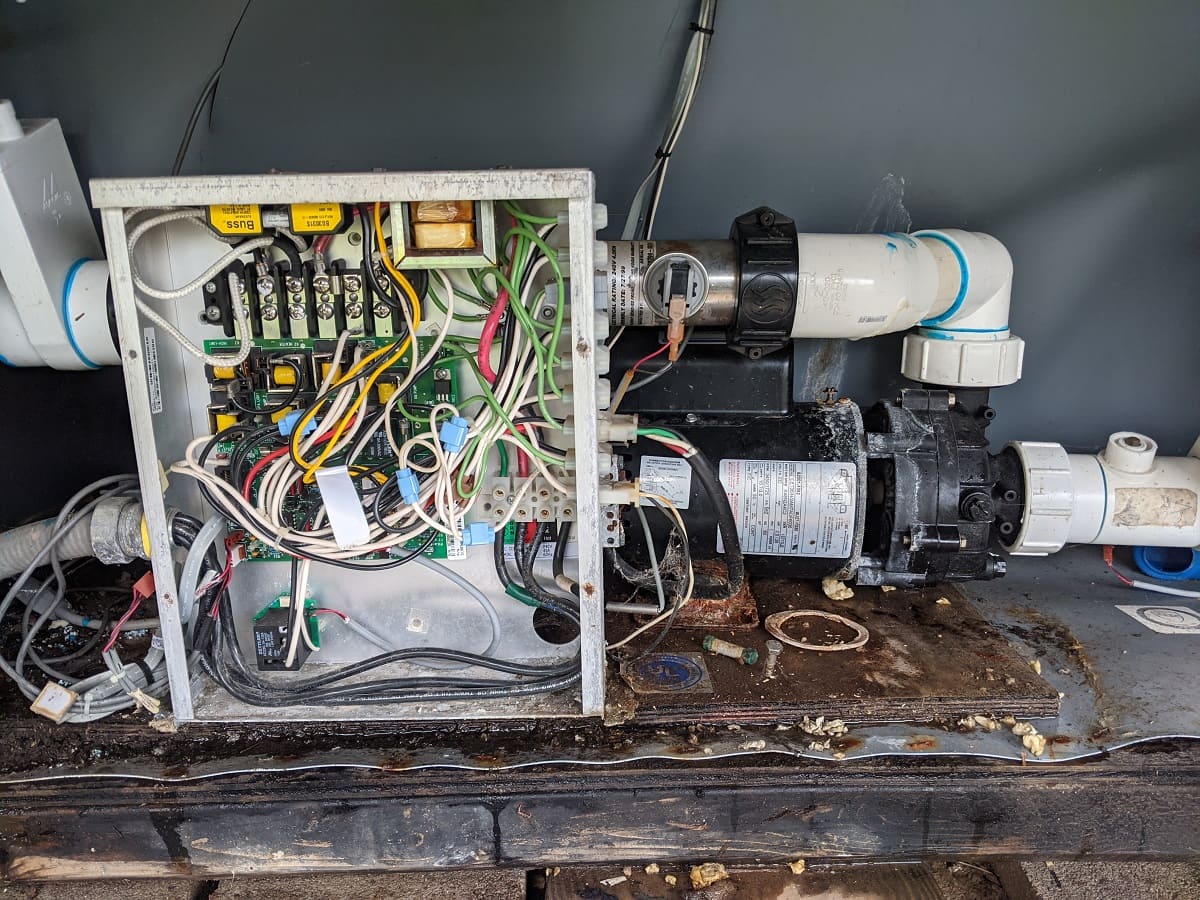
By: Daniel Carter • Articles
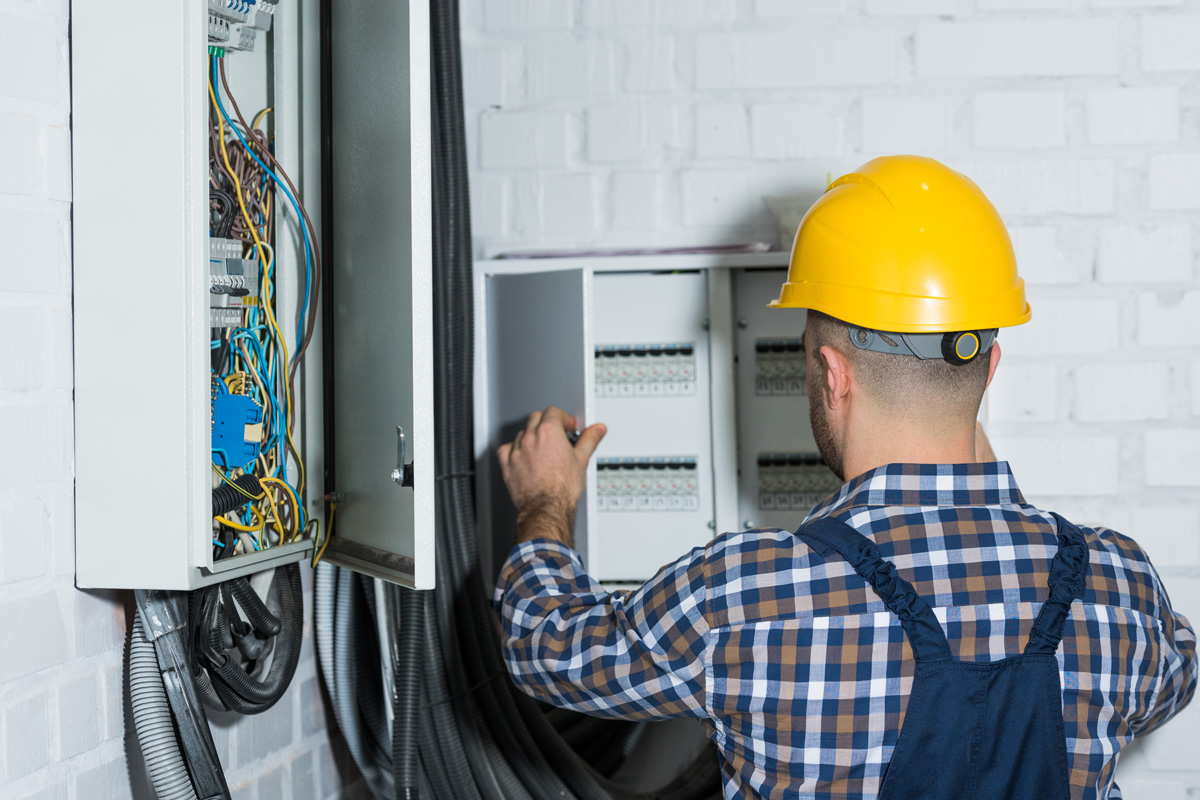
By: Grace Wilson • Articles
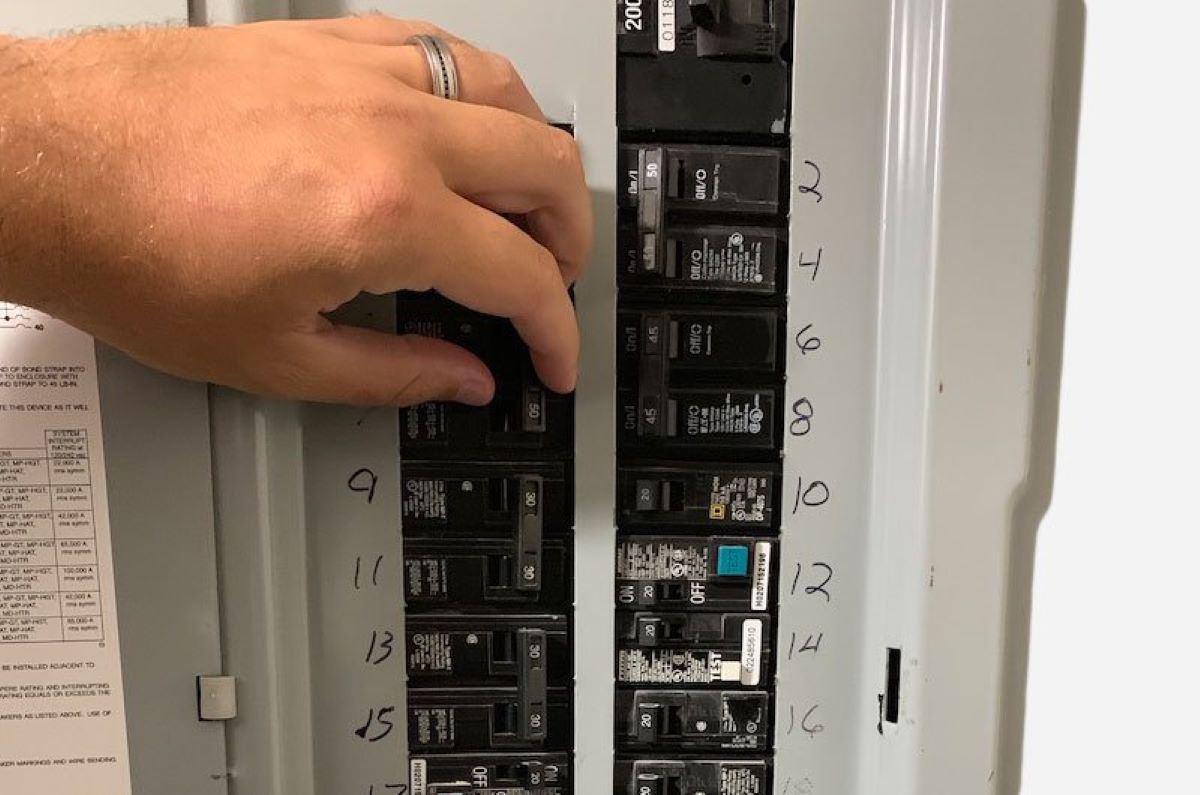
By: Ethan Hayes • Articles
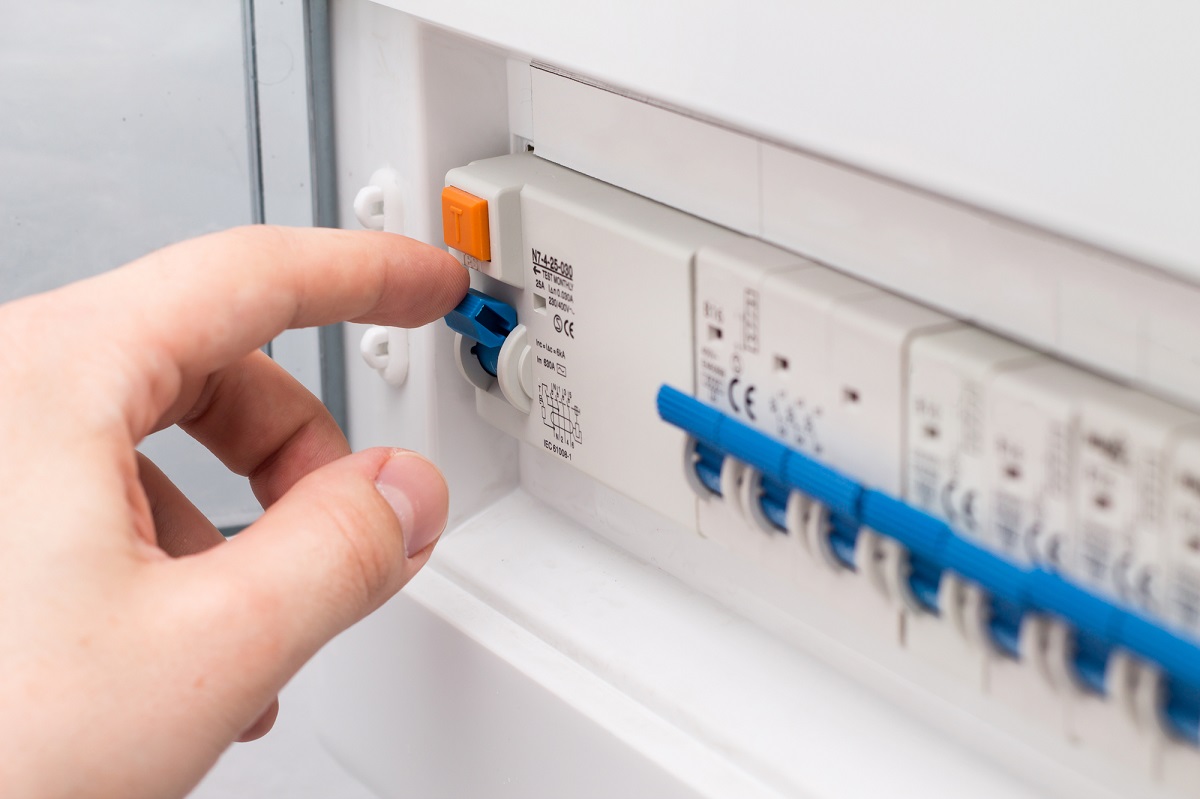
By: Alexander Johnson • Articles
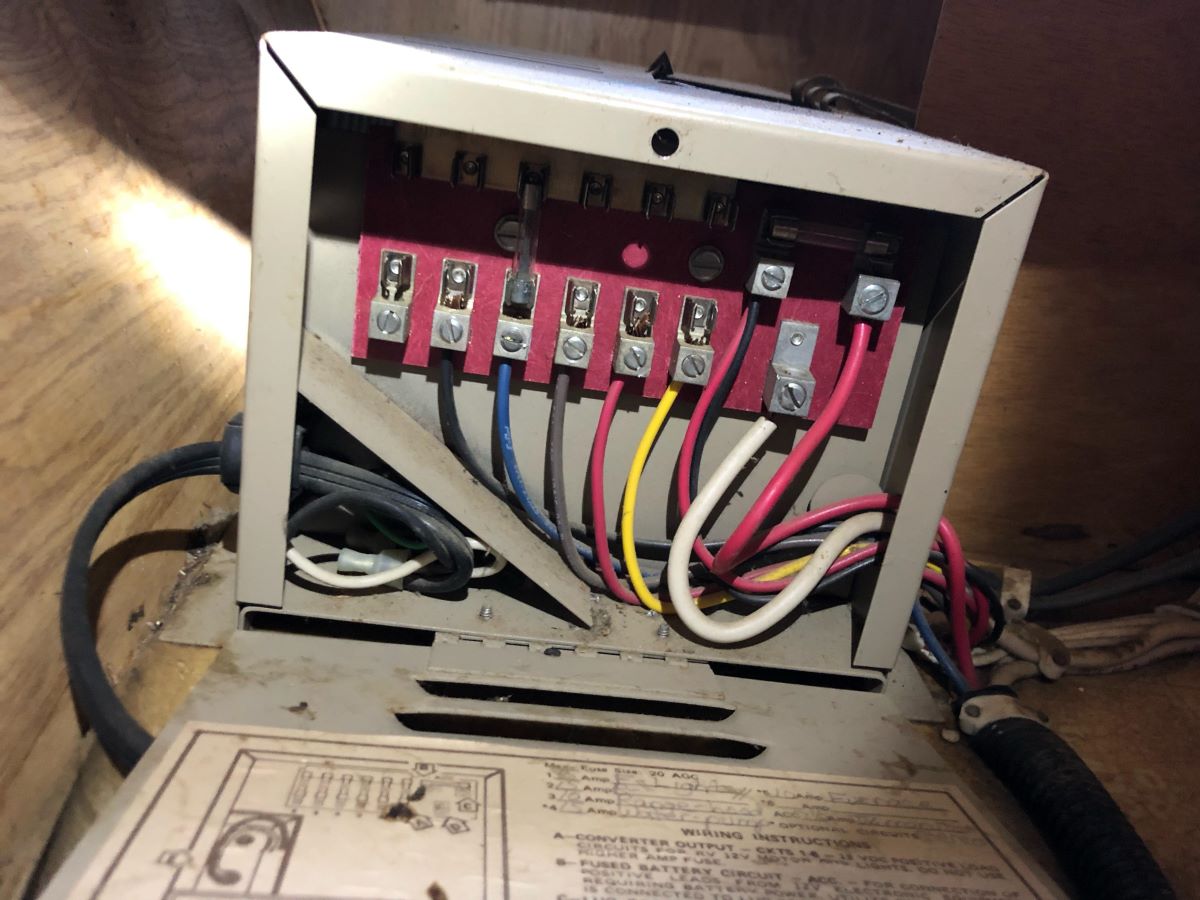
By: Samuel Turner • Articles
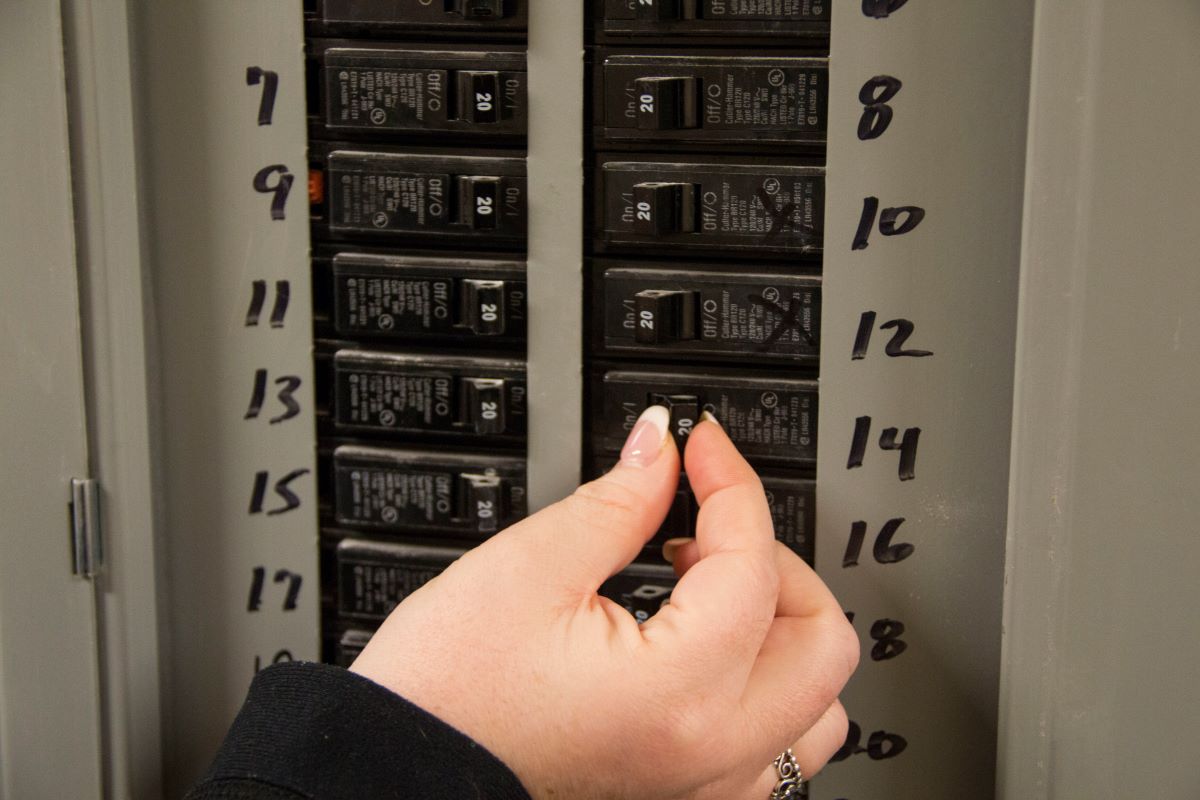
By: Chloe Davis • Articles
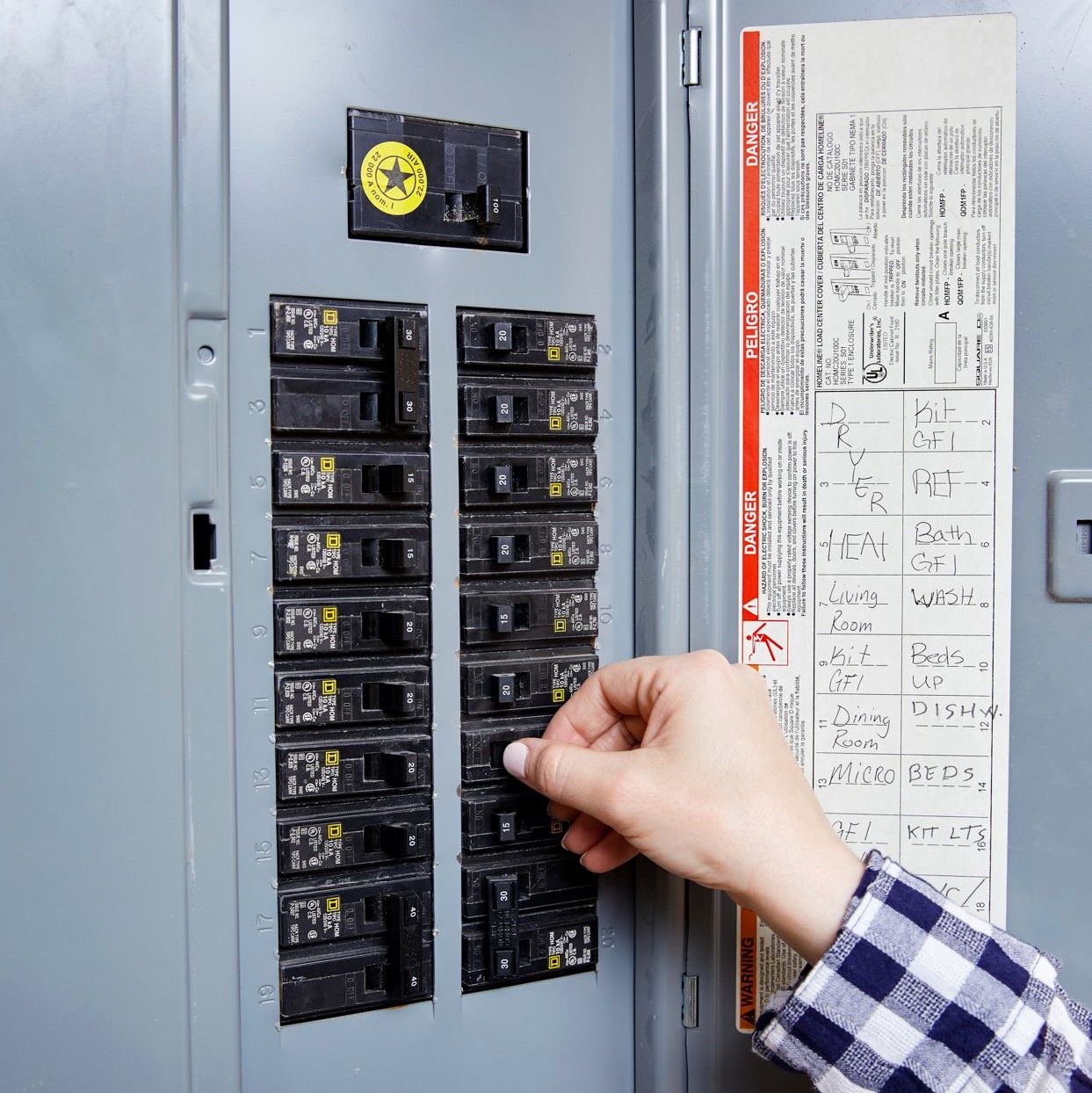
By: Lily Evans • Articles
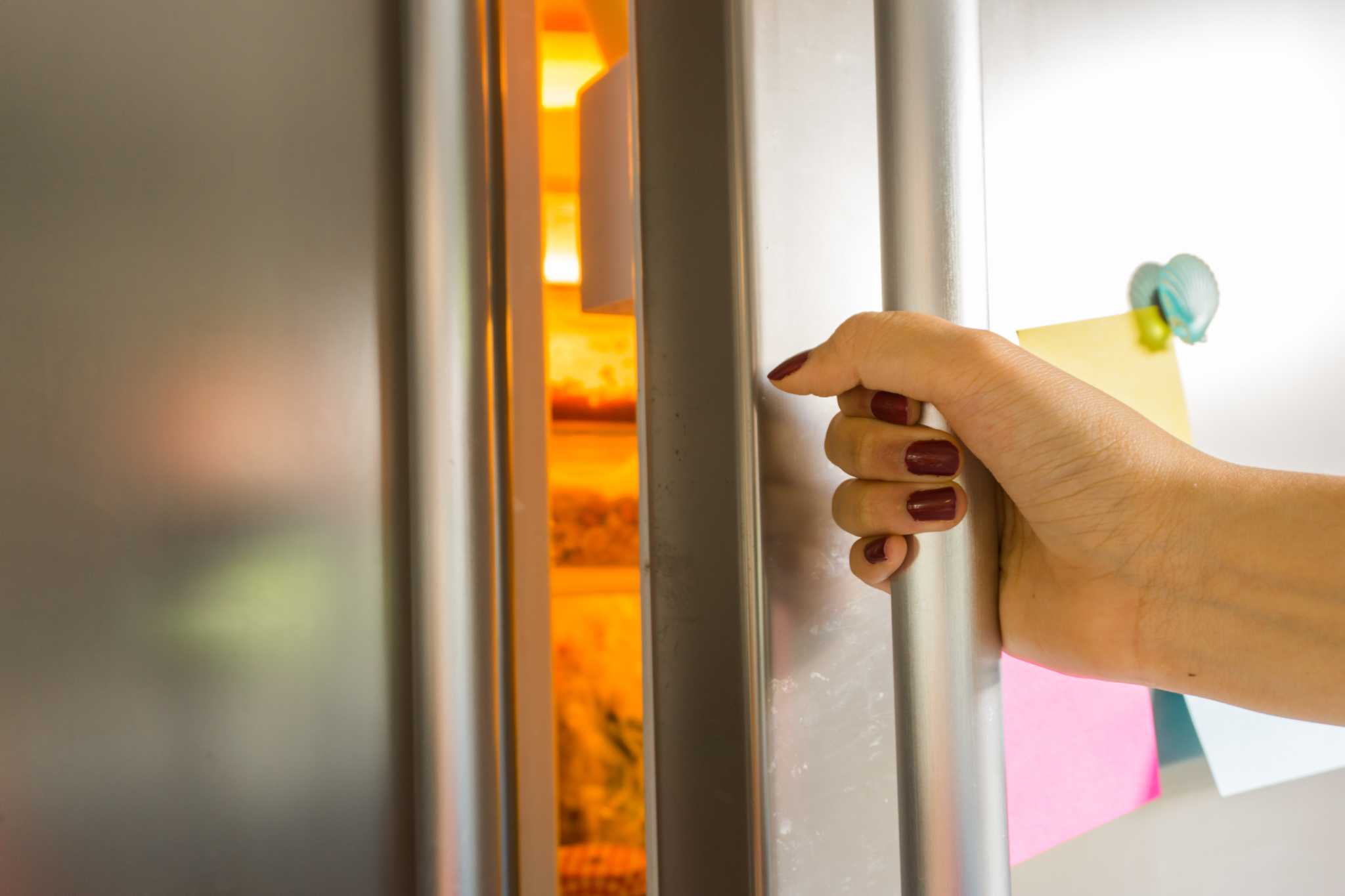
By: Sophie Thompson • Articles
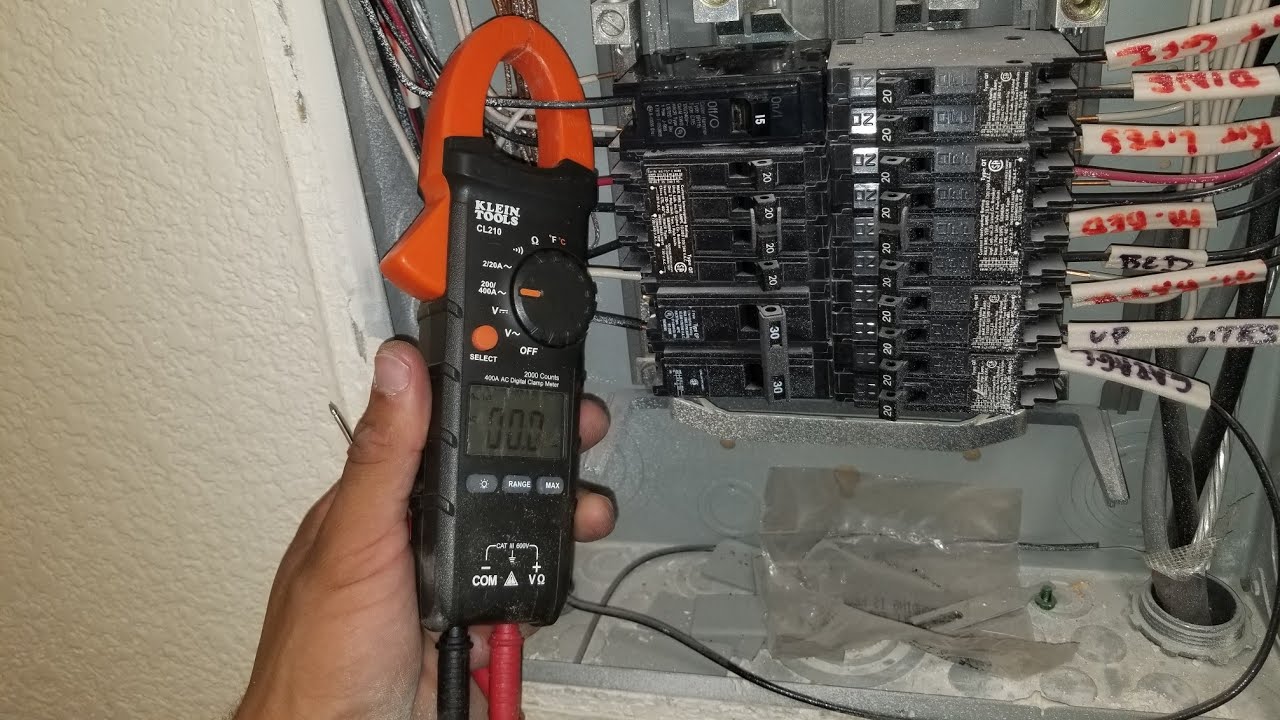
By: Noah Bennett • Articles
Please accept our Privacy Policy.
STORABLES.COM uses cookies to improve your experience and to show you personalized ads. Please review our privacy policy by clicking here .

- Privacy Overview
- Strictly Necessary Cookies
This website uses cookies so that we can provide you with the best user experience possible. Cookie information is stored in your browser and performs functions such as recognising you when you return to our website and helping our team to understand which sections of the website you find most interesting and useful.
Strictly Necessary Cookie should be enabled at all times so that we can save your preferences for cookie settings.
If you disable this cookie, we will not be able to save your preferences. This means that every time you visit this website you will need to enable or disable cookies again.
- https://storables.com/articles/how-to-fix-refrigerator-tripping-breaker/

Whirlpool Refrigerator Tripping GFCI .css-85r32f{transition-property:var(--chakra-transition-property-common);transition-duration:var(--chakra-transition-duration-fast);transition-timing-function:var(--chakra-transition-easing-ease-out);cursor:pointer;-webkit-text-decoration:none;text-decoration:none;outline:2px solid transparent;outline-offset:2px;color:inherit;display:-webkit-inline-box;display:-webkit-inline-flex;display:-ms-inline-flexbox;display:inline-flex;place-items:center start;padding-left:var(--chakra-space-2);min-width:var(--chakra-sizes-7);}.css-85r32f:hover,.css-85r32f[data-hover]{-webkit-text-decoration:underline;text-decoration:underline;}.css-85r32f:focus-visible,.css-85r32f[data-focus-visible]{box-shadow:var(--chakra-shadows-outline);} .css-oy56l9{display:-webkit-box;display:-webkit-flex;display:-ms-flexbox;display:flex;-webkit-align-items:center;-webkit-box-align:center;-ms-flex-align:center;align-items:center;height:55%;max-height:var(--chakra-sizes-4);color:var(--chakra-colors-gray-500);opacity:0;-webkit-transition:opacity 0.1s ease-in-out;transition:opacity 0.1s ease-in-out;}
Reset the GFCI. If the reset button doesn't click, it could be that the breaker tripped. GFCI devices are not intended to provide overcurrent protection; that's the circuit breaker's job. If the breaker isn't tripped, your GFCI unit could be defective.
- Unplug any other devices that might be sharing the circuit with your fridge.
- Watch to see if you can detect anything that you do that causes the GFCI to trip.
- If at all possible, try to have your fridge be the only device fed by that circuit. Best of all is a dedicated circuit with only the refrigerator Receptacle/outlet on it.
Unnecessary GFCI Outlet
If the outlet is located more than 6 feet from the edge of the top rim of a sink, it may not need to be a GFCI outlet if it isn't intended to serve countertop appliances (Fridge outlet qualifies), but...
- 2017 National Electrical Code Art. 210.8(A)(6) indicates that the outlets not intended to serve countertop areas don't need GFCI protection.
- So, if your fridge outlet is within that distance from a sink edge, by the strictest interpretation, it needs to be protected.
- If not, you can omit that protection. So even under-cabinet receptacles need this. It may be worth moving a receptacle (aka outlet), even one that is behind a refrigerator, to omit protection.
- 2017 National Electrical Code Art. 210.8(A)(2) requires GFCI protection for ALL garage outlets, so the second (old) fridge will have to deal with GFCI protection in garage outlets in newer homes.
To sum up, the NEC believes that newer appliance manufacturing standards allow lower leakage currents, so nuisance tripping is likely not to be a problem. So we see this protection more and more. You may be in a hard place with an older appliance in a newer home.
Let's keep looking and see what we can check or change.
Faulty GFCI Outlet

They fail, so a relatively cheap fix may be replacing the GFCI unit. While this is "throwing parts at the problem," the difficulty of testing, the relatively low cost, and the fairly low effort make this a worthwhile approach, especially with older GFCI outlets (7+ years).
Leaky Loads
Make sure that the refrigerator outlet or receptacle isn't sharing the circuit with another item, like an extension cord or decorative outdoor lights. The cord may be damaged, and the lights can have enough leakage current to trip the GFCI.
This is why having a dedicated refrigerator circuit can be a benefit. The inaccessible location means that it will rarely, if ever, be used for another load. But a circuit with more receptacles can be.
Make sure your fridge isn't using a power strip; there are lots of possible leakage paths in one.

Overloaded Outlet
It may not be the appliance alone but a combination of loads drawing too much current that is causing the trip. The GFCI is not tripping ; as mentioned, it doesn't provide overcurrent protection.

GFCI Breaker
The tripped device will be the circuit breaker at the panel. You MAY have GFCI breakers like the one shown here, (they usually have a little TEST button on them along with the operating handle), but what is described isn't a GFCI-based trip; it's an overload trip.
An electric heater sharing a circuit with a fridge can easily cause this. The heater isn't usually running when the fridge is, but once in a while, it is, and when the fridge starts, it trips the circuit. Even powering up a large computer power supply can cause this when the refrigerator is already running.
Appliance Leakage Current
Faulty power cord.
The power cord can become damaged, especially the insulation, and can cause issues with leakage. Unplug the refrigerator. Check for breaks or cracks in the insulation. Animals may gnaw cords, too, so inspect the whole length. Especially frustrating is an internal connection between the neutral and ground.
Since the Neutral and ground are ultimately tied to each other back at the service panel, the ground wire functions as an alternate path for the return current to take. Only a little bit less current in the neutral is needed to trip the GFCI.
- You can substitute another device, like a lamp, to see if the problem is the GFCI. If the lamp causes a problem, the GFCI is likely the culprit.
- Use a multimeter to test the neutral and ground prongs of the cord for any kind of connection to each other. Anything other than an open circuit means a problem, either with the appliance or the cord.

Red-Line, Yellow-Neutral, Green-Ground
- If there are no issues with the cord, go to the next item
Leakage Currents in the Appliance
You can also have ground faults in other components, such as compressors, icemaker mold heaters, or defrost heaters which will still work but will trip the GFCI. That's what it is supposed to do, This will most likely be the compressor, but it may be the defrost heater or any other component. Check components for continuity to ground. You don't want any!
Ice makers are a common source of this problem; here is a link to Whirlpool Refrigerator Ice Makers .
Moisture or dust in connectors and on circuit boards provides a leakage path that may be hard to trace with a meter. Look for dirt or moisture on the control board or other boards or components that will have line voltage present when operating, like power supplies. Clean them well (you may want to use high percentage Isopropyl Alcohol, over 90%) and make sure they are dry.
Damaged Appliance Wiring
Damaged wires on appliances, especially at door hinges on refrigerators, can cause an inadvertent ground. You may note a connection between moving a part and the GFCI tripping.
Improperly Connected Appliance Wiring
Sometimes, connectors inside the appliance can be exposed to moisture, and if they aren't water resistant, they can cause a ground fault (and may corrode). You can make sure your connectors are all dry, and any crimp-type connectors should have silicone grease applied to the open end. While silicone sealant (RTV) might seem a better choice for water resistance, silicone, when curing, often releases vapors that can be corrosive to the connection. It can also shrink over time. The grease protects everything.

Find compatible replacement parts for your Whirlpool Refrigerator. All parts and fix kits are backed by the iFixit Quality Guarantee.
Problem Appliance and GFCI Combo
You may be at the point where you need to either dispose of the appliance or remove GFCI protection for the outlet. You should consult an electrician to see if there are solutions that allow you to keep your appliance without disabling the GFCI protection that is mandated.
Here is a video that demonstrates how to remove GFCI protection from an outlet downstream of a GFCI outlet.
Additional Resources
Testing Fridge Compressor Relays
Testing Appliance Capacitors
Related Problems

Whirlpool Refrigerator

38 common problems
View statistics:
Past 24 Hours:
Past 7 Days:
Past 30 Days:
LG Refrigerator Tripping Breaker [How To Fix]
Is your LG refrigerator tripping breaker? It is very important to find a solution if your refrigerator creates this problem.
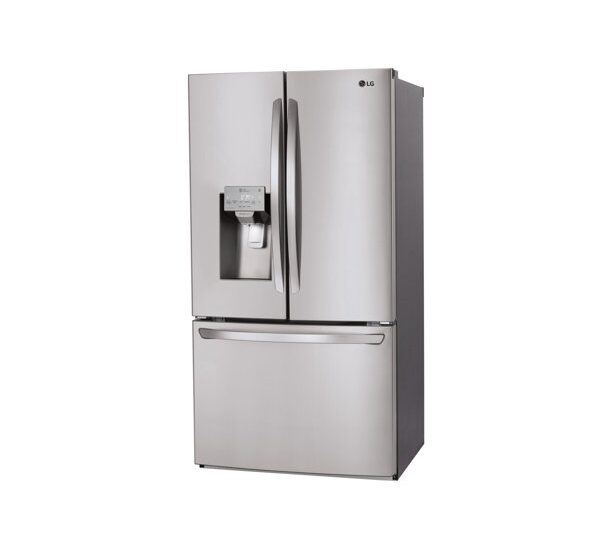
Table of Contents
LG Refrigerator Tripping Breaker
The LG refrigerator is faulty and that is why it overloads the breaker. This problem could lead to a fire outbreak in your home or wherever the refrigerator is in use. Hence, the reason your refrigerator keeps cutting off power.
Possible causes are:
1. A Faulty Thermostat
A faulty thermostat is the least notable and rarest of all the possible causes of the incessant tripping of a breaker. This is because the thermostat does not need lots of power to function.
Therefore, if the thermostat happens to be the cause of the power cuts, it is best to replace it.
2. A Faulty Compressor Relay
The compressor uses quite an amount of power to carry out the cooling cycle of your refrigerator. If your refrigerator’s compressor keeps tripping off the circuit breaker in an attempt to do the cycle, it suggests that it has a grounding problem that triggers the relay to be overloaded with power.
Use a multimeter to test the relay of the compressor for continuity. If you find none, it’s best to replace it.
3. A Faulty Defrost Heater
A defrost heater is usually installed in a refrigerator unit that comes with a freezer. This device ensures that there is no frost buildup in your freezer as it comes on every 20 to 45 minutes to melt the ice.
And when it is damaged and attempts to come on, it could cause the refrigerator to trip off the circuit breaker because it is overloaded with power.
Because the heater, just like the compressor, functions intermittently, it is usually difficult to immediately decipher which could primarily cause the circuit breaker to trip off. It will be helpful to note that the compressor doesn’t come on as often as the defrost heater. It does so every 30 or 60 minutes.
To verify if the defrost heater is the reason the circuit breaker trips often, you may have to leave the freezer door open and dry while testing the defrost heater connections. Because of the similarity in the way it functions like the compressor, you may have to wait for about 30 to 60 minutes for the compressor to come on.
The compressor usually comes on with a humming sound. And when it is the faulty part, it will trip off the breaker every time it comes on. You may also verify the exact cause of the trip-offs by disconnecting either the heater or compressor from the board before testing the refrigerator.
4. A Faulty or Dirty Fan
The fan which functions simultaneously with the compressor could primarily make the circuit breaker go off when it’s dirty or faulty. It is important not to mistake a fan issue for that of a compressor.
The overloading of a fan is usually not electrical but dirt. A dirty fan consumes more electricity while functioning and subsequently overloads itself. This is usually decipherable by the attendant noise from the fan section.
In fact, it is advisable to first ensure the cleanliness of a faulty fan before proceeding to electrical solutions. And if the fan has an electric fault, you will have to replace the faulty part of the fan.
5. Weakened Electric Wires
This is usually the case in old houses where the wires have worn out with time and the wire plastic coverings start falling off. This exposes the wires and when two incompatible wires make contact, they overload the appliances in the house including the refrigerator. This could lead to circuit breaker tripping. This also puts the building at a high risk of fire outbreaks.
Important Note
Ensure that the refrigerator is disconnected from power before carrying out any electrical maintenance. Make sure you replace every faulty part of the refrigerator with a replacement part from LG.
If you are not comfortable carrying out these repairs yourself, contact LG Support for assistance or get a licensed technician.
Check out these other articles…
Kenmore Refrigerator Is Beeping [How to Fix] Kenmore Refrigerator Blinking Light [Issues & Solutions] Kenmore Refrigerator Handle [Issues & Solutions] Kenmore Refrigerator Making Ice [Problems & Solutions] Kenmore Refrigerator Is Not Working [How to Fix] Kenmore Refrigerator Light [Issues & Solutions] LG Fridge Handle Broken [Quick Fix]
Get Instant Help — Ask An Experienced Verified Appliance Technician
Need expert help? Click here to use the chat box on this page to speak with a verified appliance technician right away . No need for expensive in-home service calls. No appointments. No waiting.

San Francisco
Contra costa.

- GE Fridge Repair
- Sub-Zero Fridge Repair
- Miele Fridge Repair
- Dishwasher Repair
- Washer Repair
- Dryer Repair
- Oven Repair
- Stove Repair
- Furnace Repair
- Furnace Check Up and Maintenace
- Furnace Installation
- Air Conditioner Repair
- Air Conditioner Installation
- Air Conditioner Check Up
- Ventilation Repair
- Ventilation Replacement and Installation
- Duct Cleaning
- Water Heater Repair
- Water Heater Installation
- Water Heater Check Up
- Service Areas
- Coupons & Discounts

Resource Centre
Why does your fridge keep tripping the circuit breaker.
Once you buy a new fridge, the expectation is usually that it will last for a very long time without having any problems. In fact, this is why most people buy new fridges to replace old ones. However, there are a few instances where you will still have problems with the new fridge once you install it.
One of the commonest problems you can encounter is finding that the fridge causes the circuitry in the house to trip. This usually manifests as having all the appliances in the home going off after the fridge has been running for some time. Usually, the best way to find the cause of the circuit breaker tripping is by plugging in all the devices one by one, and then finding out which causes the problem to happen again. In such cases, plugging in the refrigerator would result in the same problem.
The problem with this setup
Of course, having your circuit breaker keep tripping is a very annoying issue. Not only does it mean that you can’t get to use the fridge properly, but it could also compromise the practicality of having the other appliances in the home. In the end, you would need to switch off the fridge completely in order to use any of the other appliances in the home.
Some of the causes of this problem
If a new fridge is causing the circuit breaker to trip often, there are several things that could be wrong. First, it could be a problem with the circuitry within the fridge. The freezer circuits are a particularly common cause of such problems especially in types of fridges that are not very well made. In addition to that, a short circuit could also be responsible for the same.
Normally, the only way to figure out the cause of the problem is to take the fridge apart and then assess each and every circuit in it. If it turns out that the fridge is okay, you would need to address other issues such as the quality of the circuit breaker in the home.
Is this a problem you can diagnose on your own?
Most people often want to diagnose and fix this problem on their own, since doing it this way is associated with lower cost. However, this is usually not a good idea. Normally when your fridge does not work properly due to an electrical problem, the only thing that you can try to fix in this capacity is changing the fuses in the sockets. However, if the fuse is the problem, the fridge is unlikely to develop a pattern of problems as described above.
In order to diagnose this problem, you will need to open up the fridge and then go through each and every circuit in detail. This usually requires the use of specialized equipment as well as the expertise and experience to know what to expect at each and every step. Of course, you could take it upon yourself to try to learn how to do this and to buy the equipment needed, but this will take a lot of time and you may end up spending more than you would if you had hired a contractor. In the end, the purpose of doing a DIY project (which is usually to save money) will have been defeated.
Skip the Line – Let Us Call You Back
We’ll call you back to confirm within a few minutes. Estimated response time: 5 minutes.
Popular Seaches
Gas Grill Repair Baker’s Pride Oven Repair Electrolux Repair Fridge Keeps Tripping Circuit Breaker Burning Smell In Clothes Dryer Jenn-Air Appliance Repair Kenmore Appliance Repair Kenmore Washer Repair LG Fridge Repair Samsung Appliance Repair Viking Appliance Repair Viking Oven Repair Dishwasher Repair
Dryer Repair Fridge Repair Oven Repair Washer Repair Stove Repair Bosch Dishwasher Repair Commercial Appliance Repair GE Refrigerator Repair Furnace Repair LG Washer Repair Miele Dishwasher Repair Whirlpool Washer Repair
Things to Do in Monino, Russia - Monino Attractions
Things to do in monino.
- 5.0 of 5 bubbles
- Good for Kids
- Budget-friendly
- Hidden Gems
- Good for Big Groups
- Adventurous
- Good for a Rainy Day
- Good for Couples
- Honeymoon spot
- Good for Adrenaline Seekers
- Things to do ranked using Tripadvisor data including reviews, ratings, photos, and popularity.

1. The Central Air Force Museum
2. Church of St. George
Park Hotel Bogorodsk

View prices for your travel dates
Finding an ideal hotel in Elektrostal does not have to be difficult. Welcome to Park Hotel Bogorodsk, a nice option for travellers like you.
Rooms at Park Hotel Bogorodsk provide a kitchenette, a refrigerator, and a seating area.
In addition, while staying at Park Hotel Bogorodsk guests have access to a concierge and room service. You can also enjoy a lounge.
Close to Statue of Lenin (2.5 km), a popular Elektrostal landmark, Park Hotel Bogorodsk is a great destination for tourists.
Travellers looking for pubs can head to Beer Club Tolsty Medved or 400 Krolikov.
There is no shortage of things to do in the area: explore popular parks such as Park of Culture and Leisure.
Park Hotel Bogorodsk puts the best of Elektrostal at your fingertips, making your stay both relaxing and enjoyable.
- Excellent 0
- Very Good 0
- English ( 0 )
Own or manage this property? Claim your listing for free to respond to reviews, update your profile and much more.
Park Hotel Bogorodsk - Reviews & Photos
- Center of World Population
- Closest Large Cities
- Farthest Cities
- Longest Flights
- Most Isolated Cities
- Extreme Elevations
Country: Russia
Continent: Europe
Population: 11,514,300
Country Capital: Yes
For all cities with a population greater than five hundred thousand, Moscow is closest to Tula and farthest from Auckland . The closest foreign city is Gomel and the farthest domestic city is Vladivostok . See below for the top 5 closest and farthest cities (domestically, internationally and by continent) and to see which cities, if any, Moscow is the closest and farthest to. Filter to include all cities over 100k, 500k or 1 million in population.
Cities in Africa
Cities in asia, cities in australia and oceania, cities in europe, cities in north america, cities in south america.
- Yekaterinburg
- Novosibirsk
- Vladivostok

- Tours to Russia
- Practicalities
- Russia in Lists
Rusmania • Deep into Russia
Out of the Centre
Savvino-storozhevsky monastery and museum.

Zvenigorod's most famous sight is the Savvino-Storozhevsky Monastery, which was founded in 1398 by the monk Savva from the Troitse-Sergieva Lavra, at the invitation and with the support of Prince Yury Dmitrievich of Zvenigorod. Savva was later canonised as St Sabbas (Savva) of Storozhev. The monastery late flourished under the reign of Tsar Alexis, who chose the monastery as his family church and often went on pilgrimage there and made lots of donations to it. Most of the monastery’s buildings date from this time. The monastery is heavily fortified with thick walls and six towers, the most impressive of which is the Krasny Tower which also serves as the eastern entrance. The monastery was closed in 1918 and only reopened in 1995. In 1998 Patriarch Alexius II took part in a service to return the relics of St Sabbas to the monastery. Today the monastery has the status of a stauropegic monastery, which is second in status to a lavra. In addition to being a working monastery, it also holds the Zvenigorod Historical, Architectural and Art Museum.
Belfry and Neighbouring Churches

Located near the main entrance is the monastery's belfry which is perhaps the calling card of the monastery due to its uniqueness. It was built in the 1650s and the St Sergius of Radonezh’s Church was opened on the middle tier in the mid-17th century, although it was originally dedicated to the Trinity. The belfry's 35-tonne Great Bladgovestny Bell fell in 1941 and was only restored and returned in 2003. Attached to the belfry is a large refectory and the Transfiguration Church, both of which were built on the orders of Tsar Alexis in the 1650s.

To the left of the belfry is another, smaller, refectory which is attached to the Trinity Gate-Church, which was also constructed in the 1650s on the orders of Tsar Alexis who made it his own family church. The church is elaborately decorated with colourful trims and underneath the archway is a beautiful 19th century fresco.
Nativity of Virgin Mary Cathedral

The Nativity of Virgin Mary Cathedral is the oldest building in the monastery and among the oldest buildings in the Moscow Region. It was built between 1404 and 1405 during the lifetime of St Sabbas and using the funds of Prince Yury of Zvenigorod. The white-stone cathedral is a standard four-pillar design with a single golden dome. After the death of St Sabbas he was interred in the cathedral and a new altar dedicated to him was added.

Under the reign of Tsar Alexis the cathedral was decorated with frescoes by Stepan Ryazanets, some of which remain today. Tsar Alexis also presented the cathedral with a five-tier iconostasis, the top row of icons have been preserved.
Tsaritsa's Chambers

The Nativity of Virgin Mary Cathedral is located between the Tsaritsa's Chambers of the left and the Palace of Tsar Alexis on the right. The Tsaritsa's Chambers were built in the mid-17th century for the wife of Tsar Alexey - Tsaritsa Maria Ilinichna Miloskavskaya. The design of the building is influenced by the ancient Russian architectural style. Is prettier than the Tsar's chambers opposite, being red in colour with elaborately decorated window frames and entrance.

At present the Tsaritsa's Chambers houses the Zvenigorod Historical, Architectural and Art Museum. Among its displays is an accurate recreation of the interior of a noble lady's chambers including furniture, decorations and a decorated tiled oven, and an exhibition on the history of Zvenigorod and the monastery.
Palace of Tsar Alexis

The Palace of Tsar Alexis was built in the 1650s and is now one of the best surviving examples of non-religious architecture of that era. It was built especially for Tsar Alexis who often visited the monastery on religious pilgrimages. Its most striking feature is its pretty row of nine chimney spouts which resemble towers.

Plan your next trip to Russia
Ready-to-book tours.
Your holiday in Russia starts here. Choose and book your tour to Russia.
REQUEST A CUSTOMISED TRIP
Looking for something unique? Create the trip of your dreams with the help of our experts.

IMAGES
VIDEO
COMMENTS
If so, then the problem isn't in the freezer at all. A fridge can often pull upwards of 10+amps momentarily when starting the compressor. If it is plugged into a 15 amp breaker with other loads plugged in, it doesn't take much to trip the circuit. Therefore, it's recommended to put your freezer on its own circuit moving forward.
1. Overloading the Circuit: One of the primary reasons your refrigerator might be tripping the circuit breaker is overloading. Refrigerators require a dedicated circuit to ensure they have a stable power supply. If your fridge shares a circuit with other high-wattage appliances or devices, it may exceed the circuit's capacity, leading to ...
Unplug your fridge. Turn off the water supply to the fridge. Remove the rear access panel. You may need to detach the water supply line in order to do this. Unscrew the power cord retaining bracket from the base of the fridge. Unscrew the grounding wire from the fridge. Unplug the power cable from the cable harness.
Join us on 'Electricity Frenzy' as we uncover the mystery behind refrigerators that keep tripping circuit breakers. In this electrifying video, we explore th...
Overload. Short Circuit. Why Refrigerator Trips GFCI on Generator. Ground Fault. Faulty Generator. Electrical Leak. Bond or Ground Jumper Issue. A GFCI, or ground-fault circuit interrupter, outlet is used in areas of the home that are subjected to water. For example, you'll commonly find them in bathrooms, kitchens, and garages.
Switch the Refrigerator Outlet. Use an Extension Cord. When your refrigerator is repeatedly tripping the breaker, it could be a problem with the outlet and its wiring, an issue with the circuit, or a problem with a faulty defrost timer/control board or compressor's capacitor. We'll explain what could be going on within your refrigerator or the ...
If the breaker trips shortly after the cycle begins, then the defrost heater is either water-damaged (a common problem), causing a ground fault, or short-circuiting from insulation damage. Replace the defrost heater, a reasonably simple DIY project. If the defrost heater seems to be functioning properly, move to step 9.
3. Ground Fault Surge. To address a ground fault surge that is responsible for causing the fridge to trip the breaker, you can follow the steps outlined below: Inspect electric switches and outlets for signs of burnt or damaged wiring: Look at the electrical switches and outlets connected to the fridge's circuit.
The tripped device will be the circuit breaker at the panel. You MAY have GFCI breakers like the one shown here, (they usually have a little TEST button on them along with the operating handle), but what is described isn't a GFCI-based trip; it's an overload trip. An electric heater sharing a circuit with a fridge can easily cause this.
Discover how to tackle the perplexing issue of your fridge tripping the circuit breaker in this informative article. Unravel troubleshooting steps and gain prevention tips to avoid future disruptions. Learn about maintaining the door seal, ensuring adequate ventilation, setting appropriate temperature levels, and more. Optimize your fridge's performance with expert advice and eliminate the ...
The fan in your refrigerator is used to circulate the cold air produced in your freezer down into the fresh food section. Like the other issues, if the fan is overloading, it can cause the circuit breaker to trip. Furthermore, because it often runs with the compressor, it can be easily confused with compressor issues as well.
Troubleshooting this sort of problem is relatively simple. If the breaker tripped immediately after plugging in the fridge, then you should consider unplugging it, resetting the breaker, and plugging in a second appliance. If the second appliance works, the short circuit is inside the refrigerator. If the second appliance doesn't work, you ...
Table of Contents. Primary Causes Why a Refrigerator Keeps Tripping Circuit Breaker (Circuit-Related) 1. Overloaded Circuit. 2. Short Circuit. 3. Ground Fault Surging. Common Refrigerator Problems that Cause a Breaker to Trip.
If you suspect a short circuit as the cause of your refrigerator tripping the breaker, it's essential to take immediate action. Start by unplugging the fridge and examining the power cord for any visible signs of damage or frayed wires. Carefully inspect the outlet as well to ensure it is not damaged or worn.
With current code garages are required to have all 120v receptacles GFCI protected. This has been code for a few cycles. I have seen several things in fridges and freezers cause gfci's to trip from fan motors to crankcase heaters and the motor winding insulation being etched from acidic refrigerant in the system ( moisture causes the oil to become acidic this eats the varnish off the motor ...
Common Causes of a Refrigerator Tripping Breaker. When your refrigerator keeps tripping the breaker, it can be frustrating and inconvenient. Understanding the common causes behind this issue can help you identify and address the problem. 1. Overloaded Circuit: One of the main causes of a refrigerator tripping the breaker is an overloaded circuit.
The tripped device will be the circuit breaker at the panel. You MAY have GFCI breakers like the one shown here, (they usually have a little TEST button on them along with the operating handle), but what is described isn't a GFCI-based trip; it's an overload trip. An electric heater sharing a circuit with a fridge can easily cause this.
If your refrigerator's compressor keeps tripping off the circuit breaker in an attempt to do the cycle, it suggests that it has a grounding problem that triggers the relay to be overloaded with power. Use a multimeter to test the relay of the compressor for continuity. If you find none, it's best to replace it. 3. A Faulty Defrost Heater.
Some of the causes of this problem. If a new fridge is causing the circuit breaker to trip often, there are several things that could be wrong. First, it could be a problem with the circuitry within the fridge. The freezer circuits are a particularly common cause of such problems especially in types of fridges that are not very well made.
Things to Do in Monino, Russia: See Tripadvisor's 294 traveler reviews and photos of Monino tourist attractions. Find what to do today, this weekend, or in September. We have reviews of the best places to see in Monino. Visit top-rated & must-see attractions.
Rooms at Park Hotel Bogorodsk provide a kitchenette, a refrigerator, and a seating area. In addition, while staying at Park Hotel Bogorodsk guests have access to a concierge and room service. You can also enjoy a lounge. Close to Statue of Lenin (2.5 km), a popular Elektrostal landmark, Park Hotel Bogorodsk is a great destination for tourists.
For all cities with a population greater than five hundred thousand, Moscow is closest to Tula and farthest from Auckland.The closest foreign city is Gomel and the farthest domestic city is Vladivostok.See below for the top 5 closest and farthest cities (domestically, internationally and by continent) and to see which cities, if any, Moscow is the closest and farthest to.
Zvenigorod's most famous sight is the Savvino-Storozhevsky Monastery, which was founded in 1398 by the monk Savva from the Troitse-Sergieva Lavra, at the invitation and with the support of Prince Yury Dmitrievich of Zvenigorod. Savva was later canonised as St Sabbas (Savva) of Storozhev. The monastery late flourished under the reign of Tsar ...